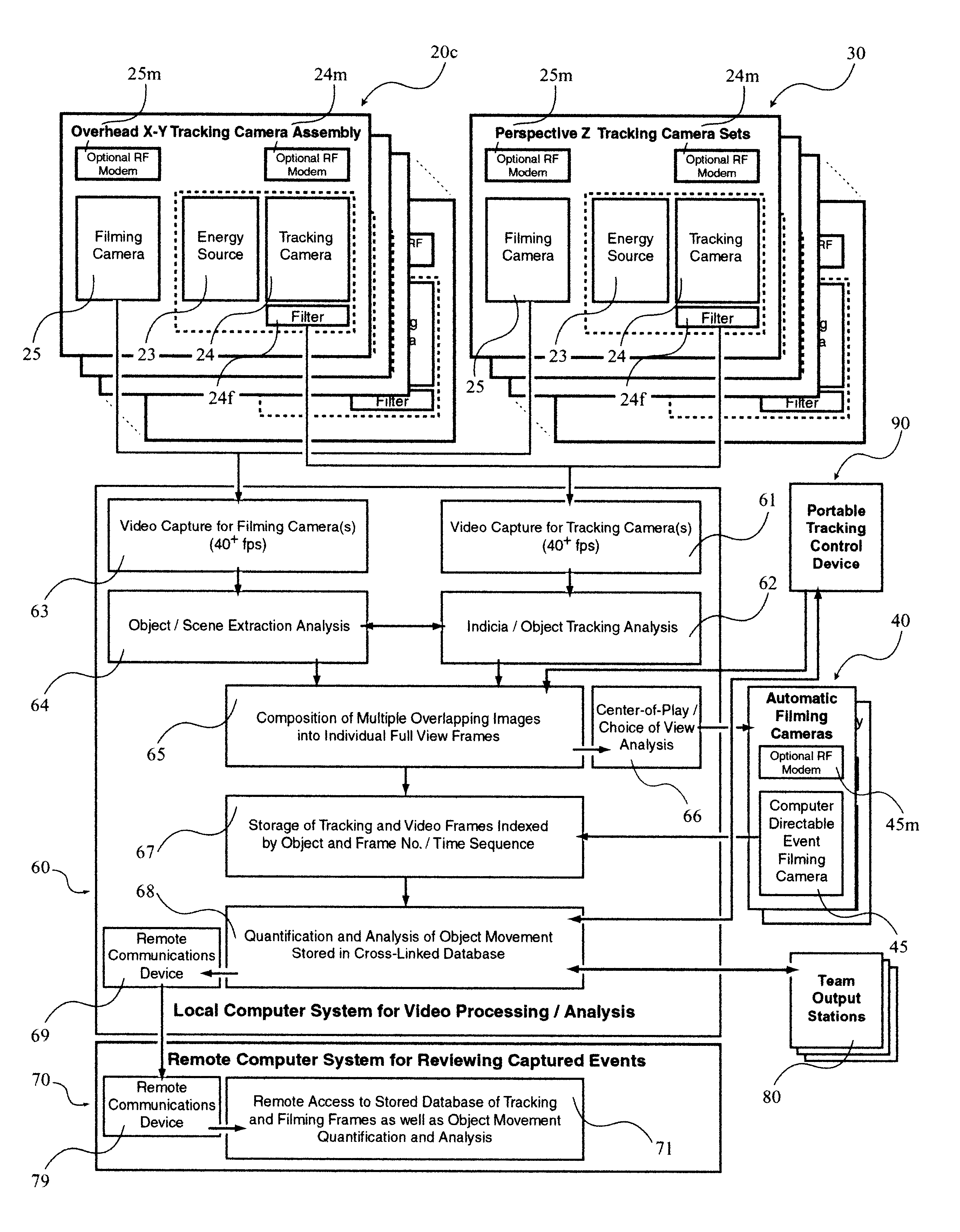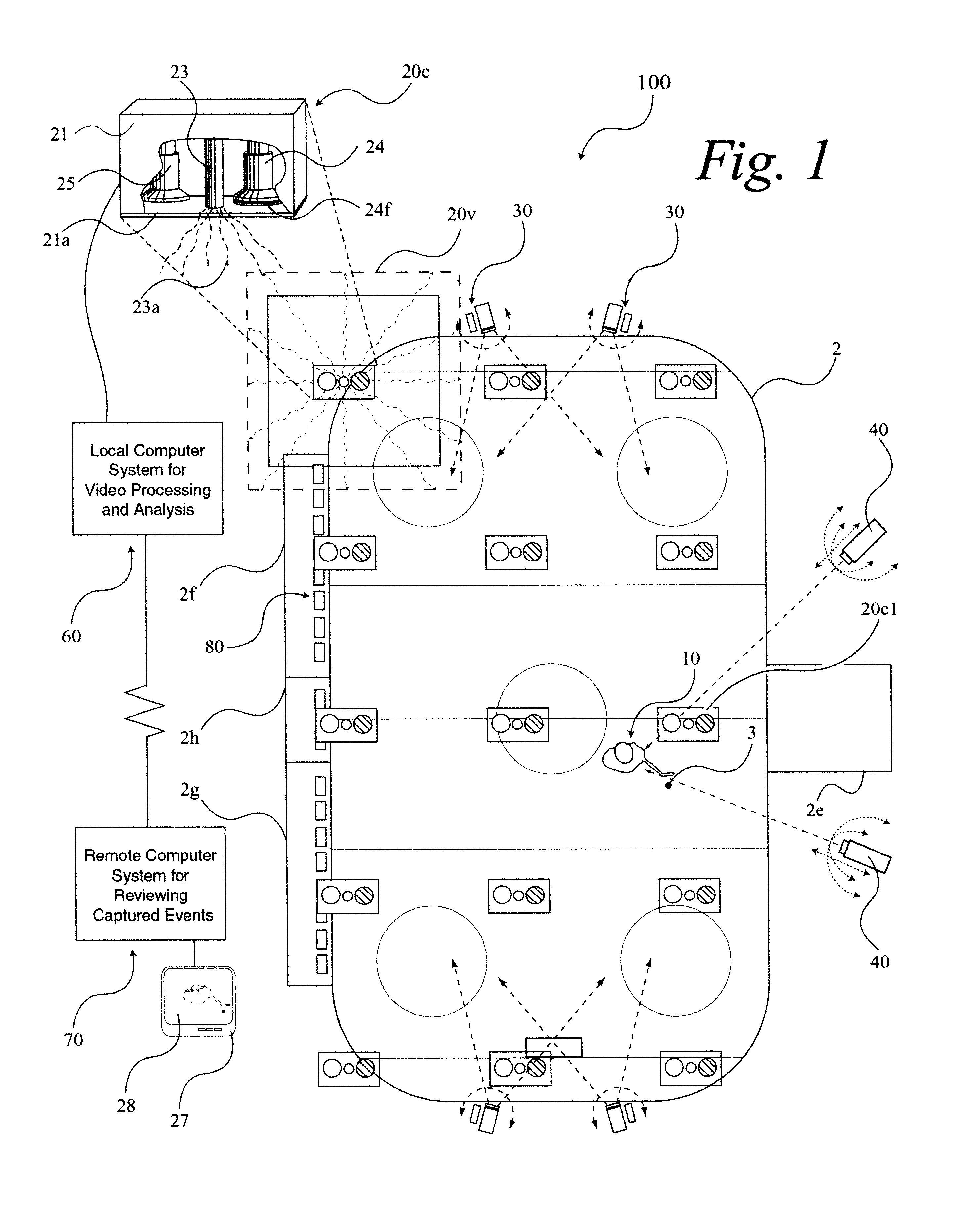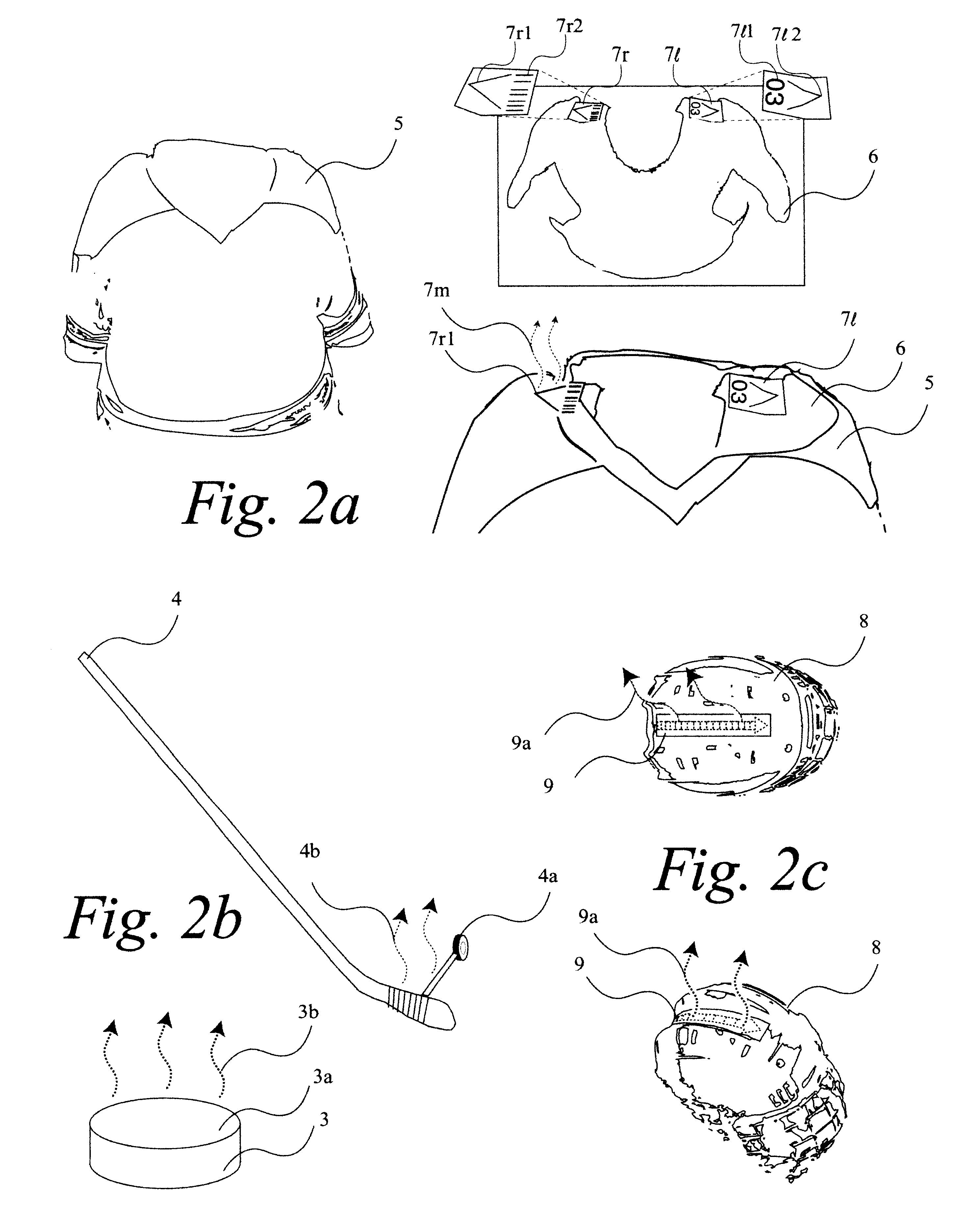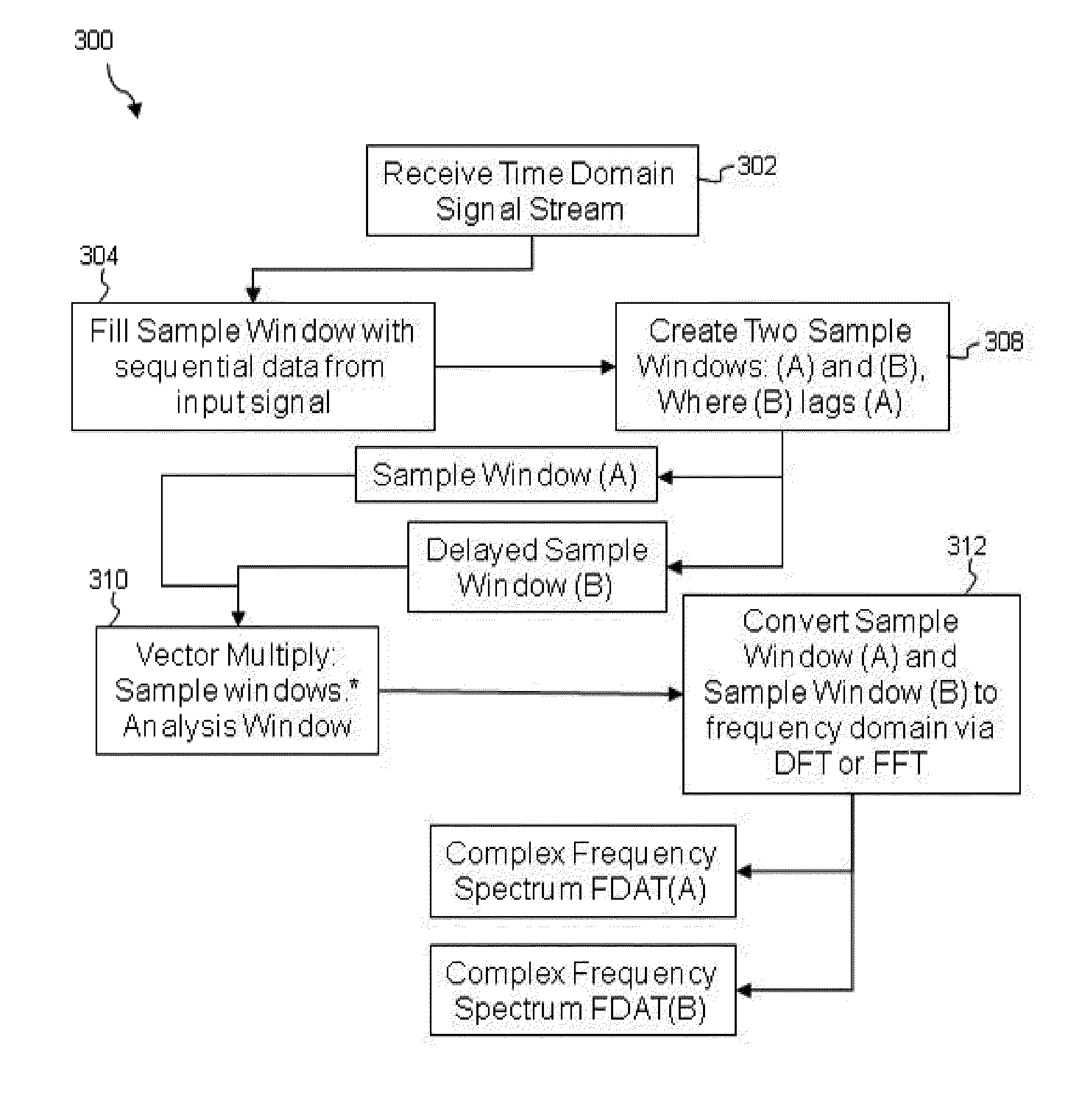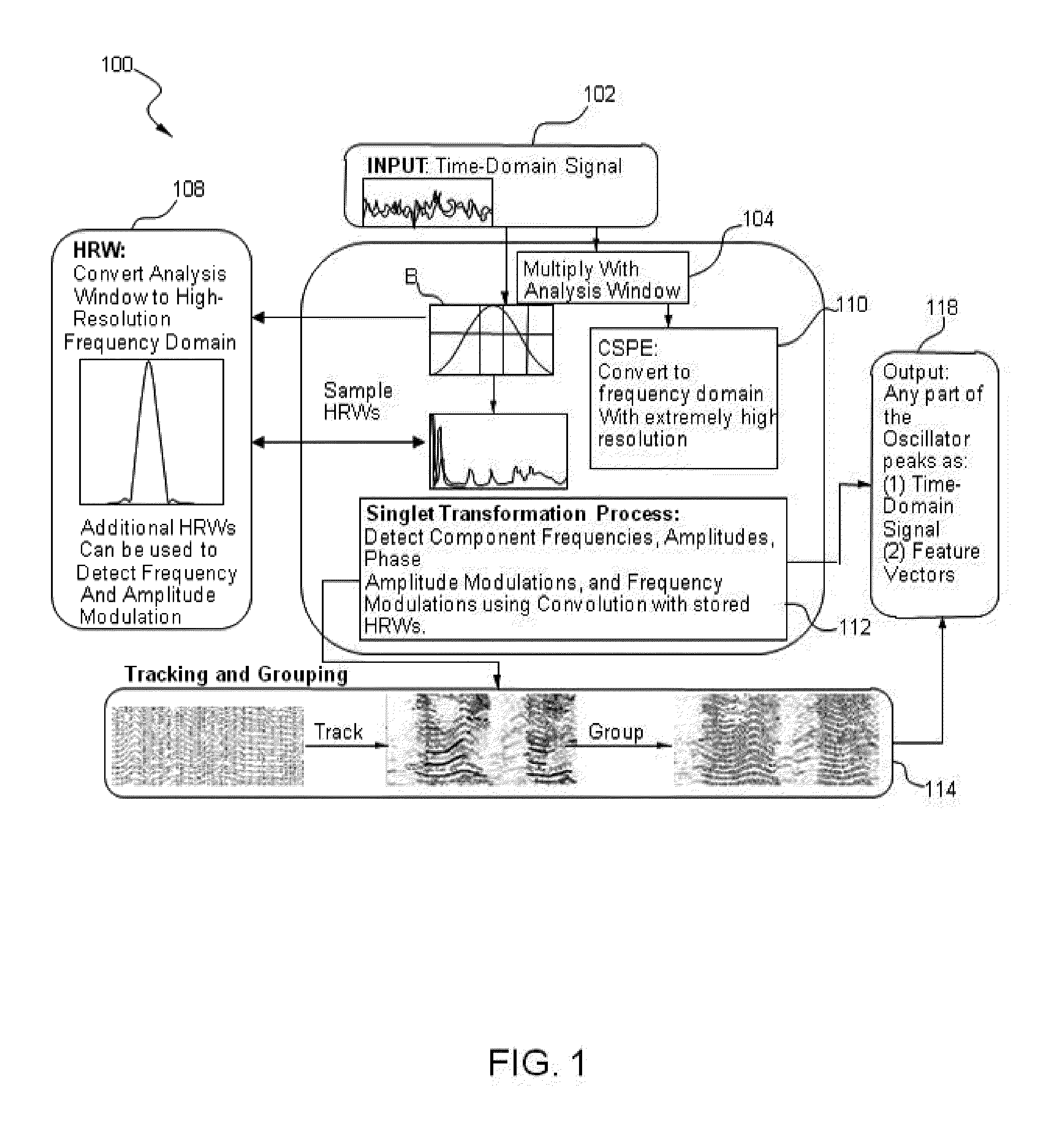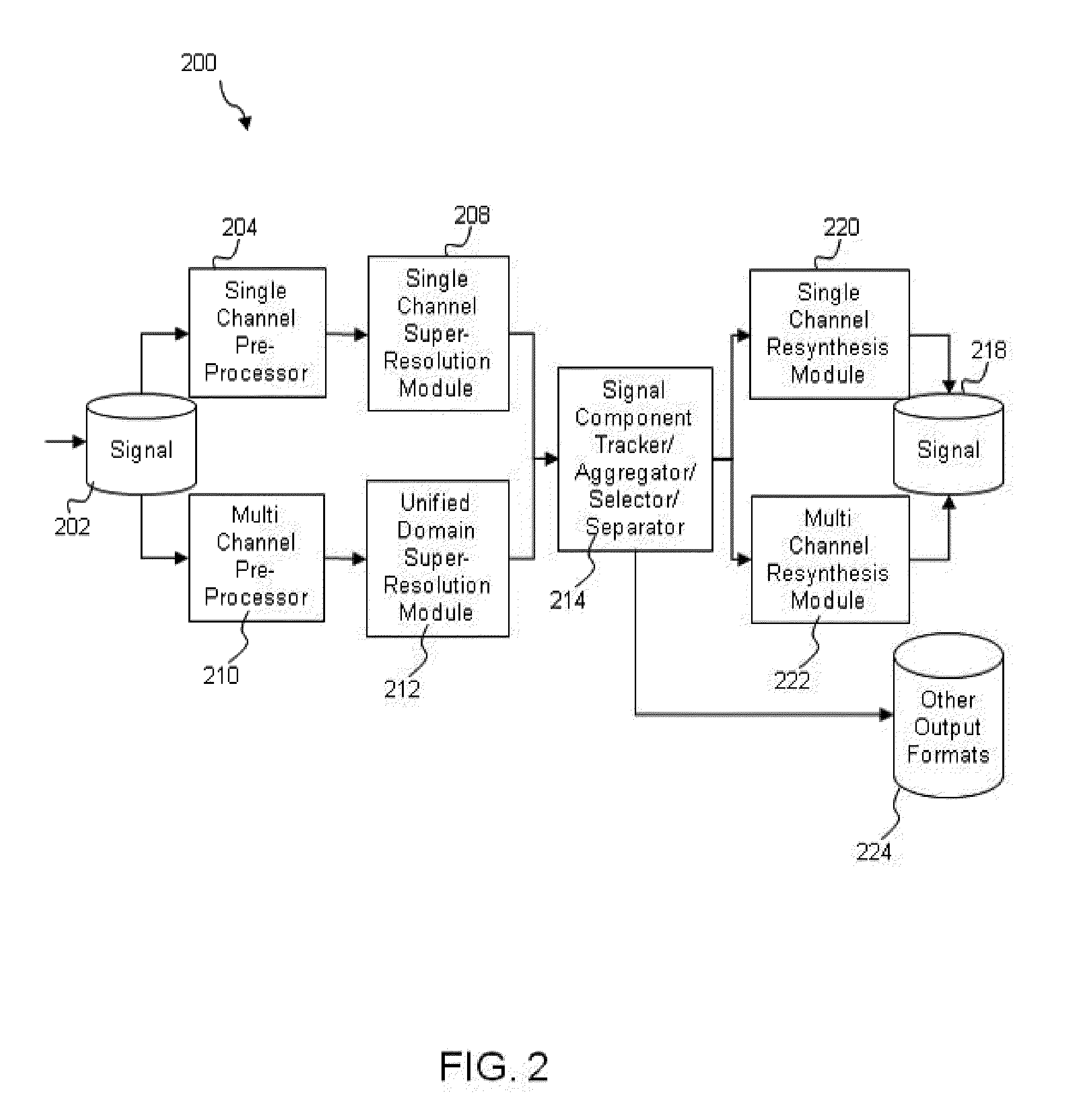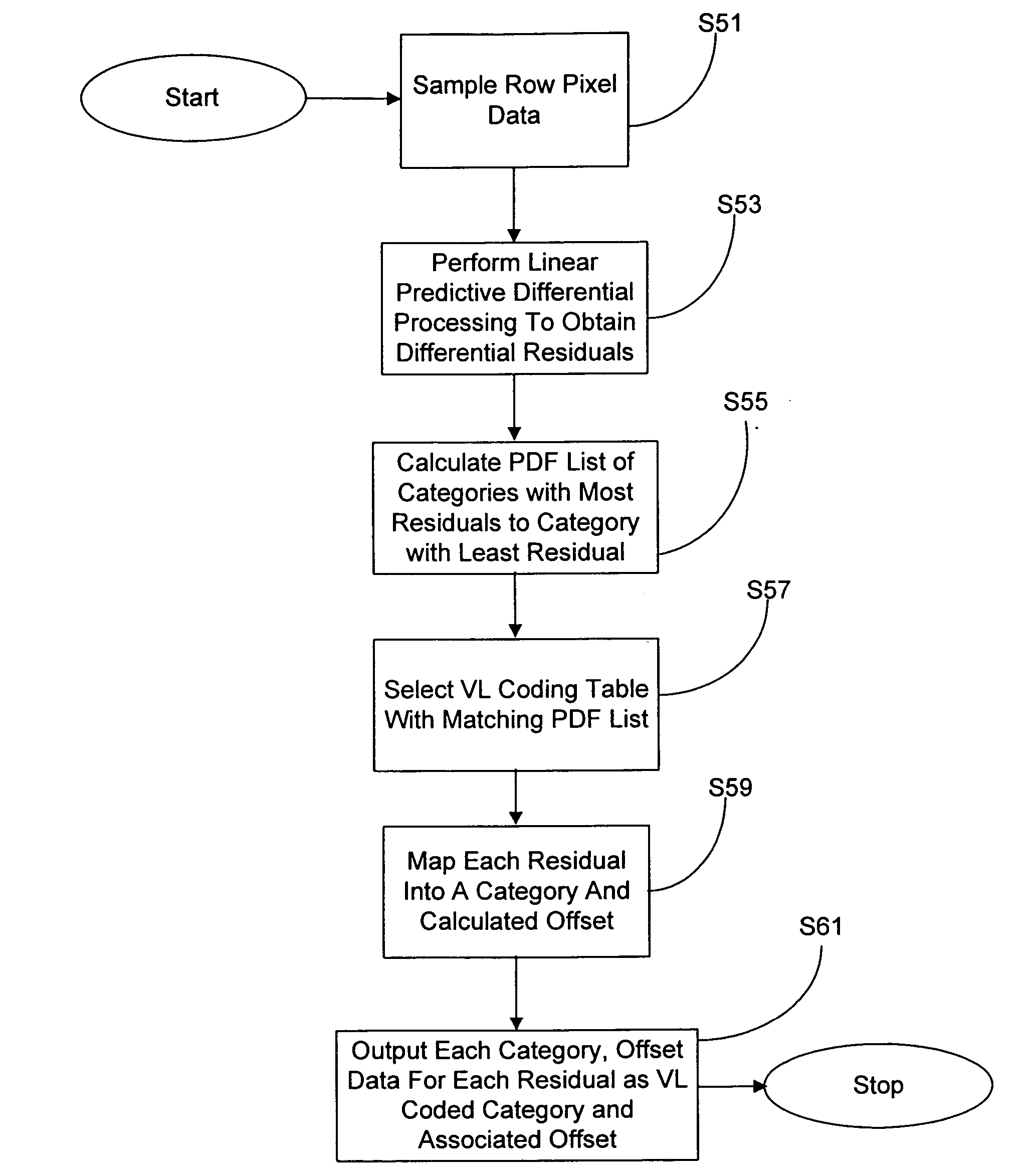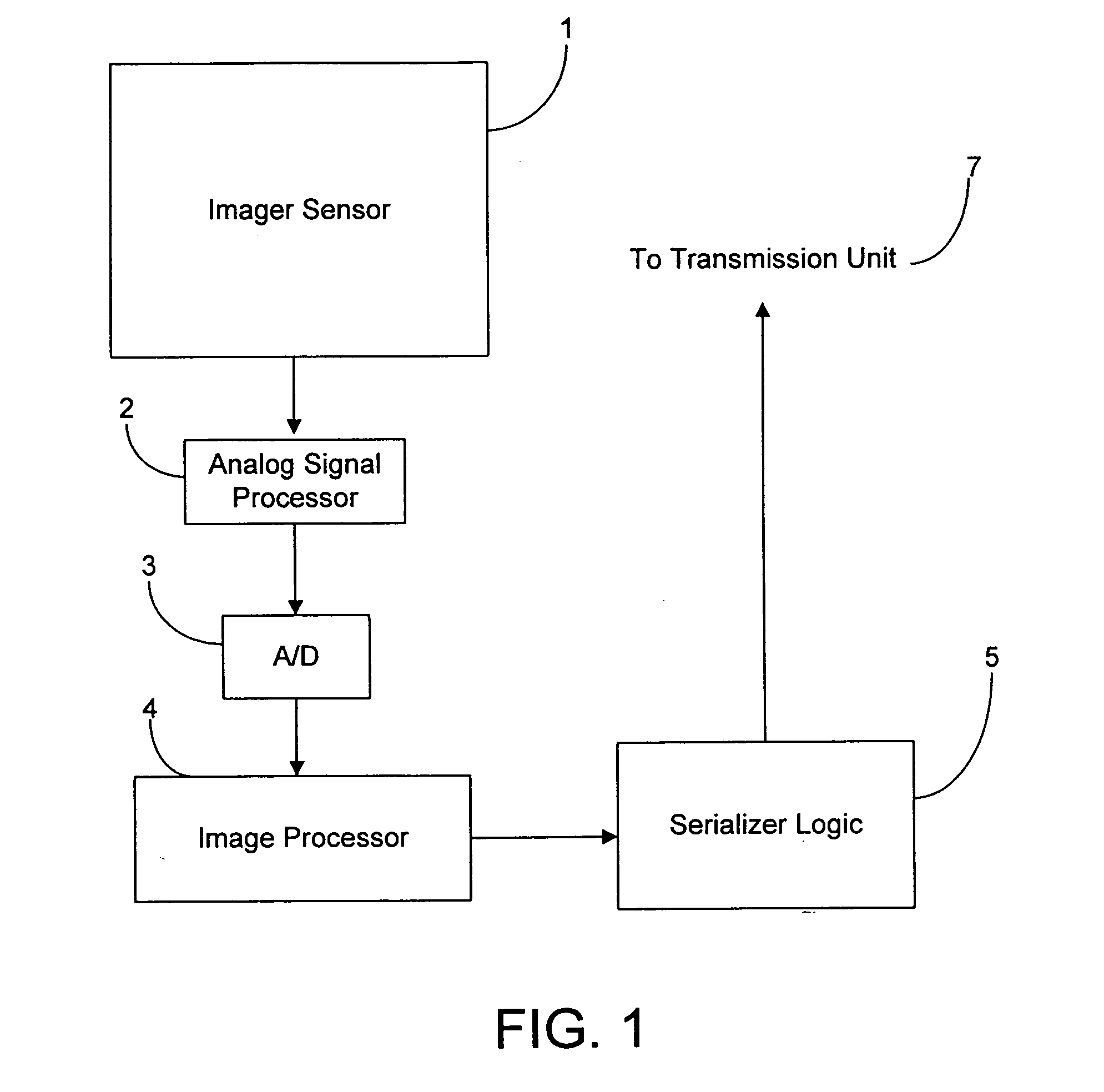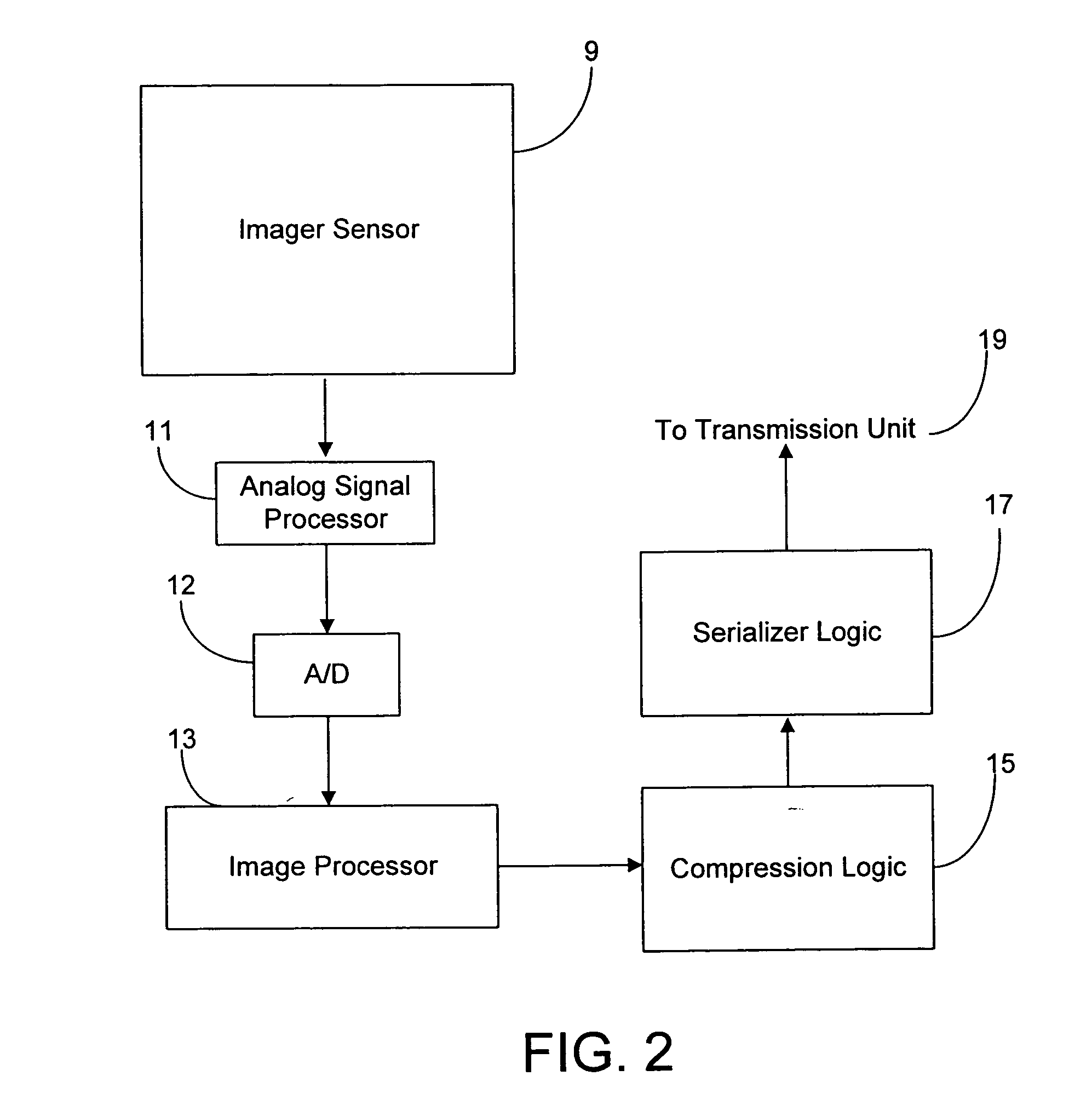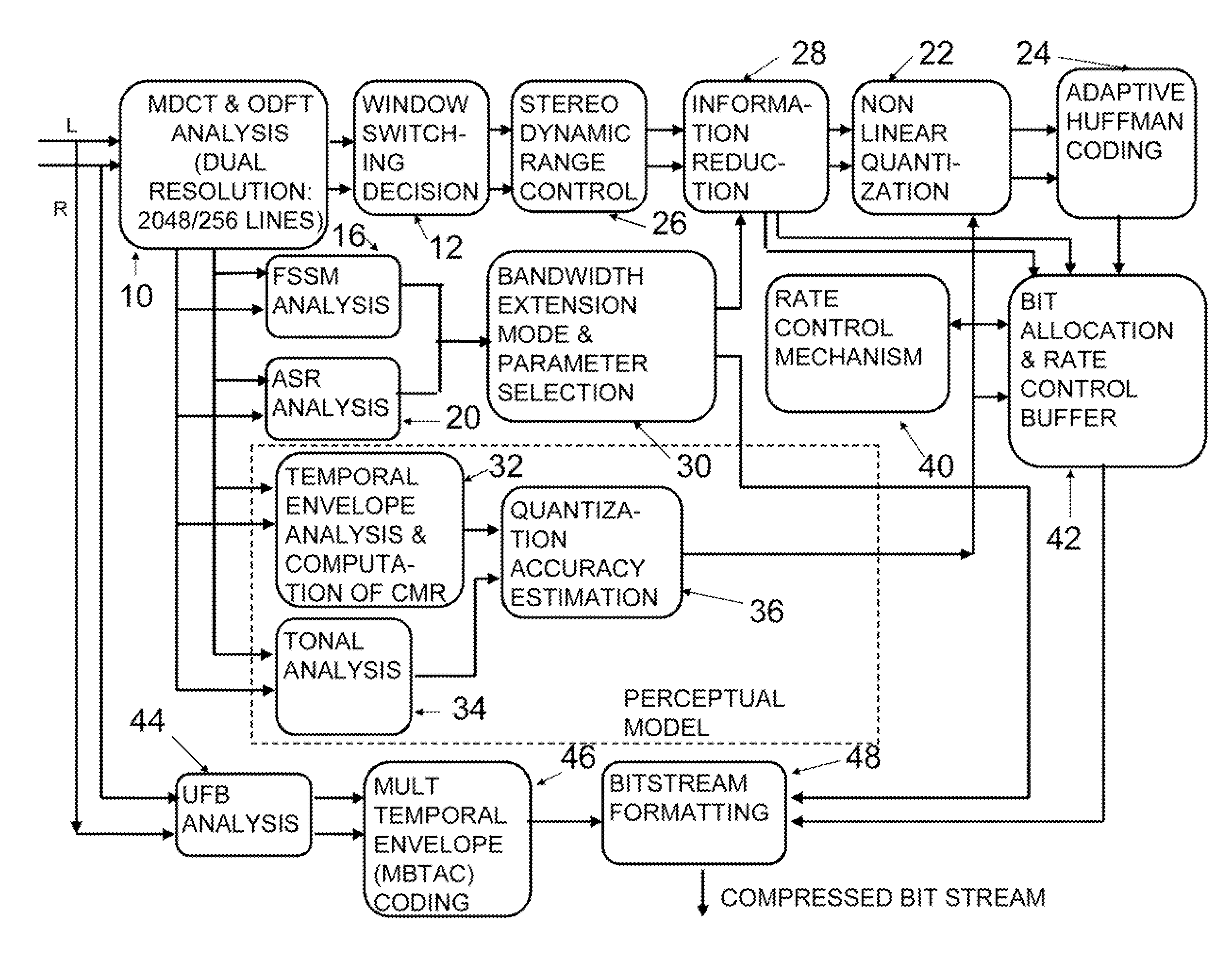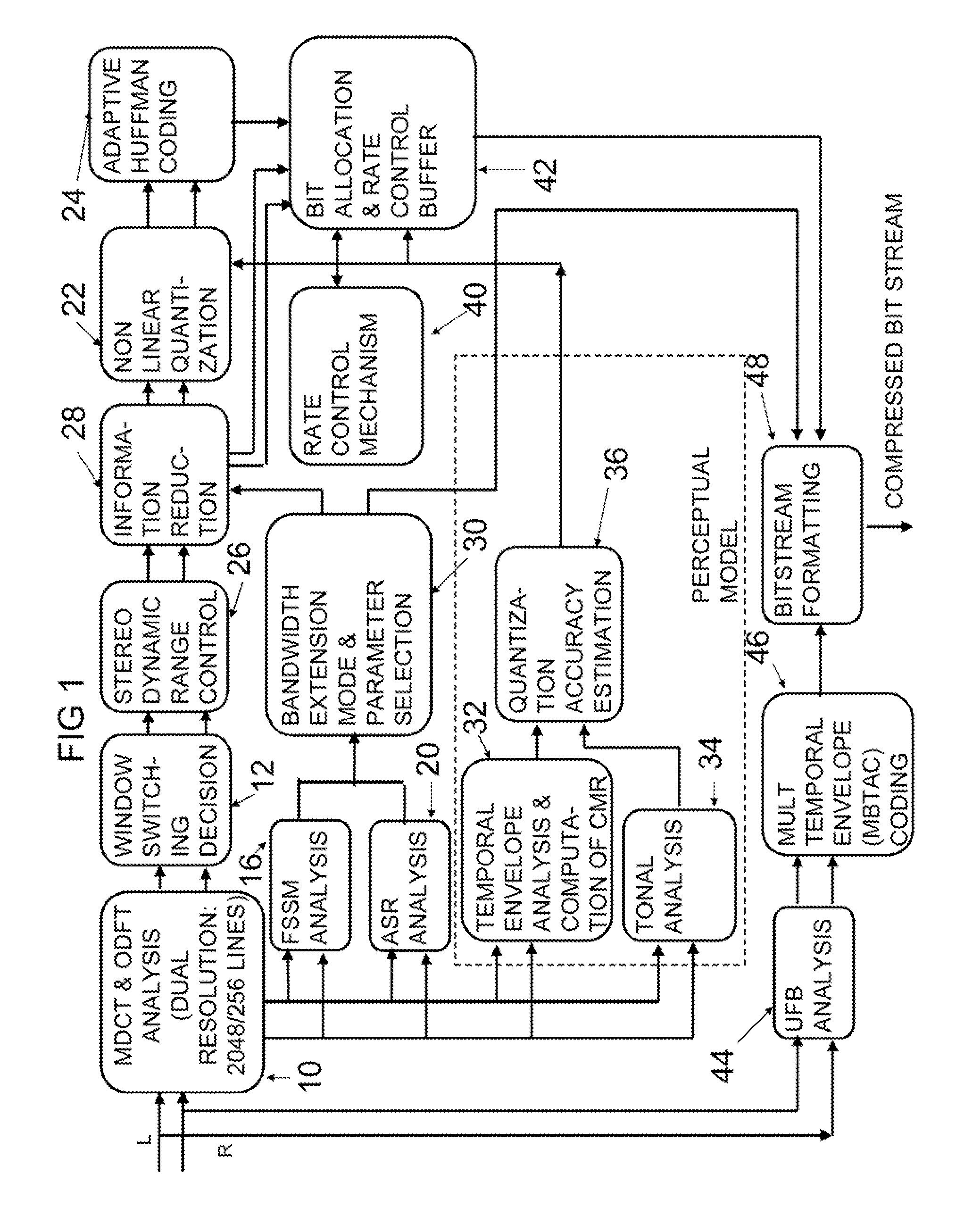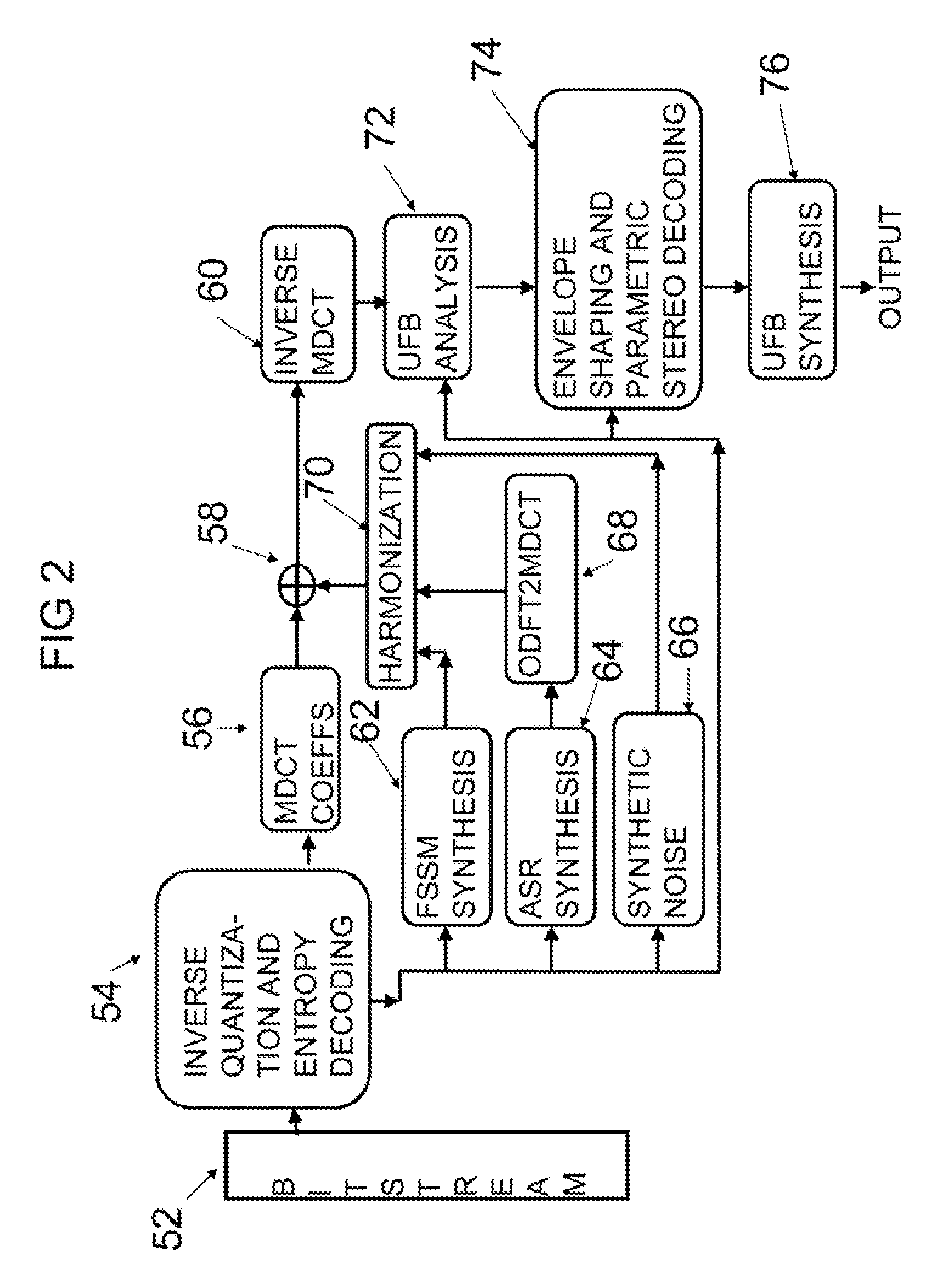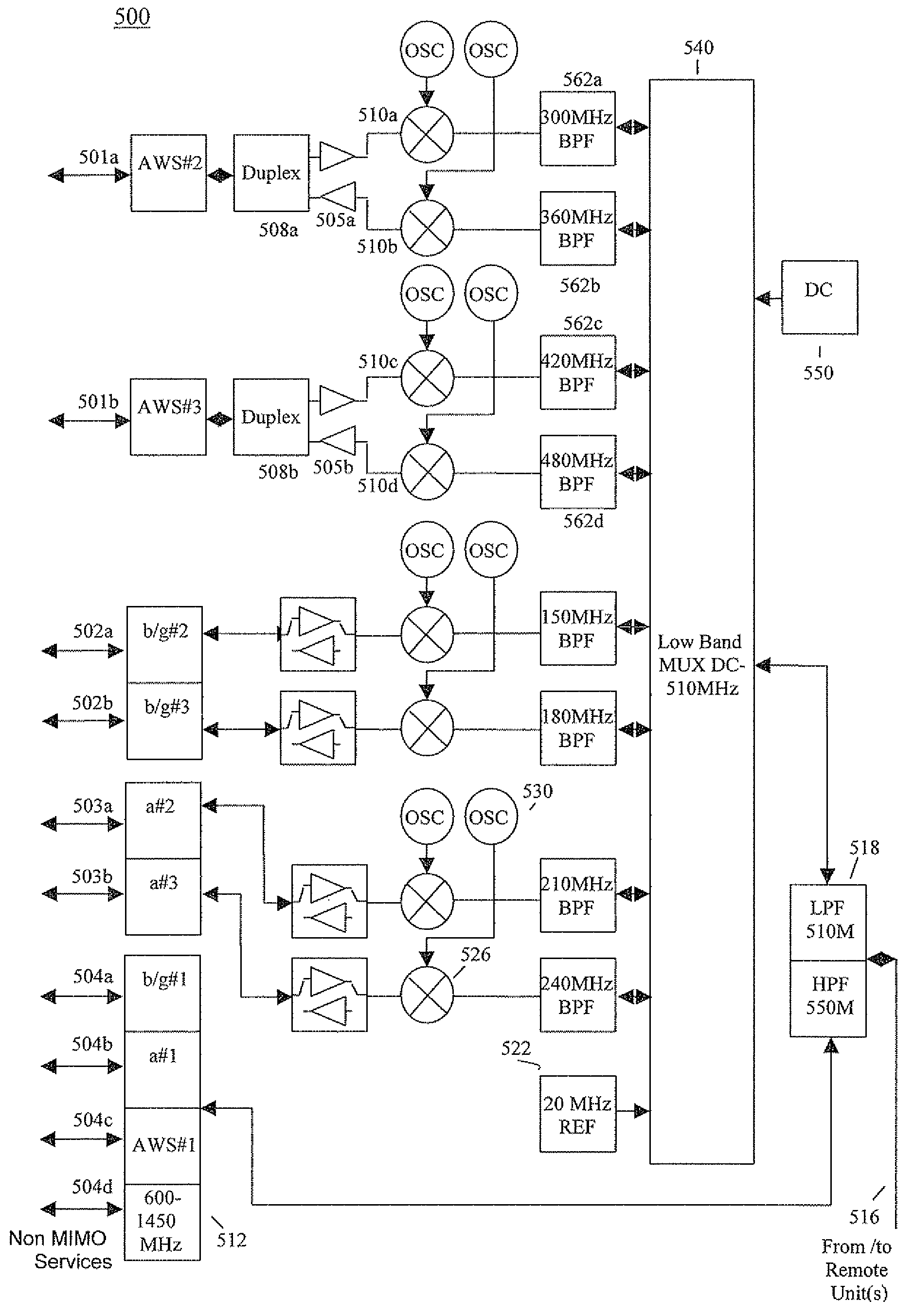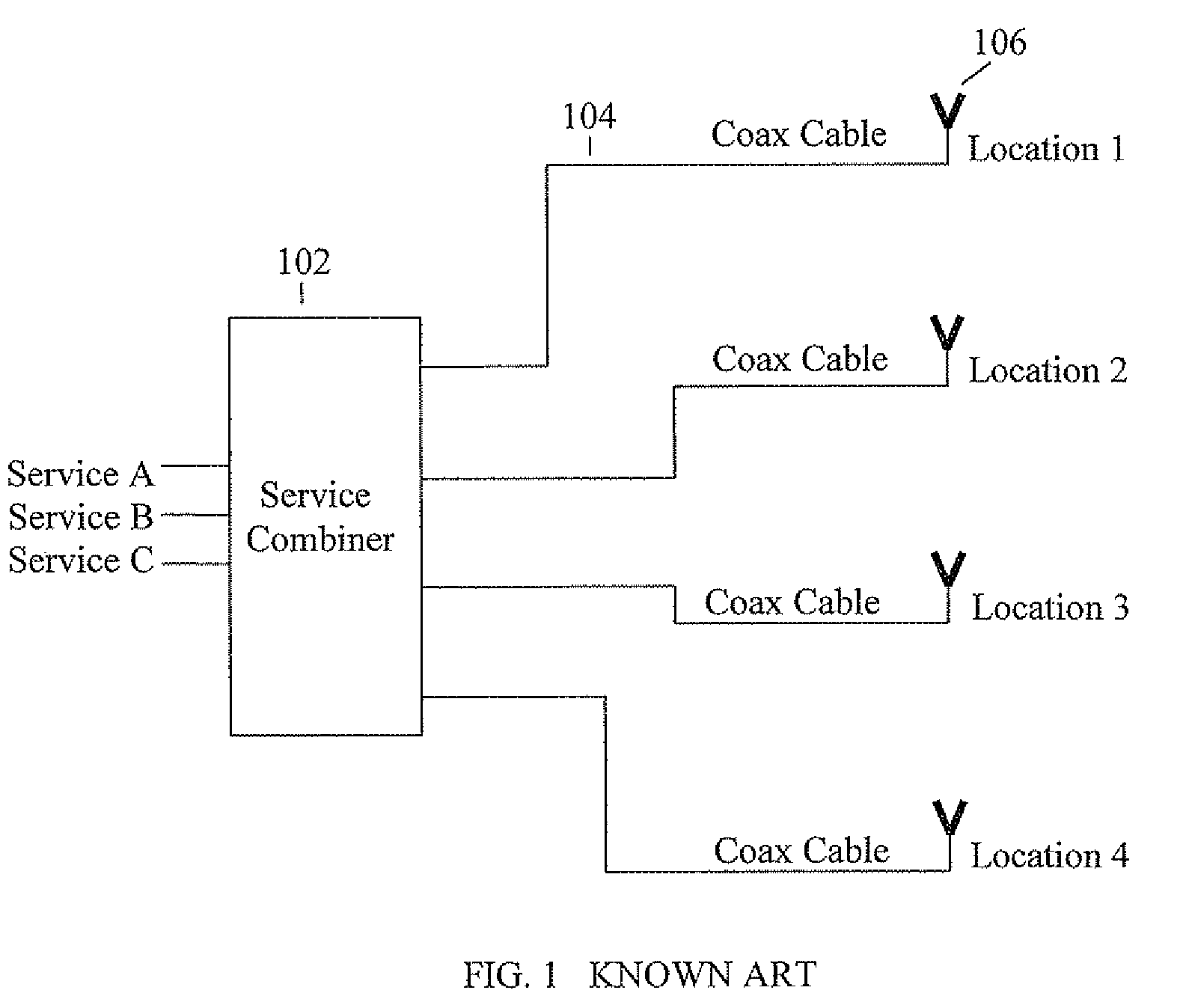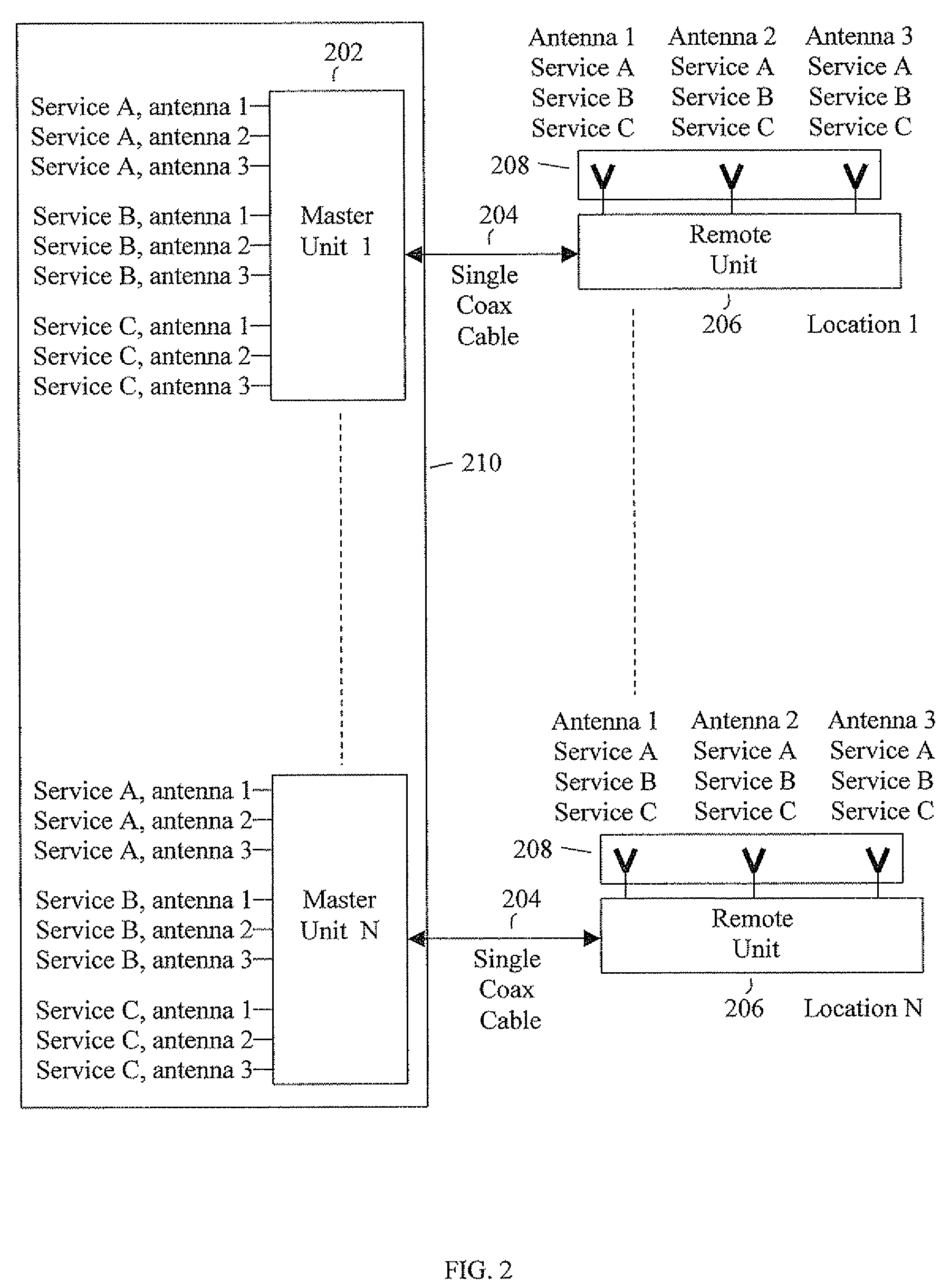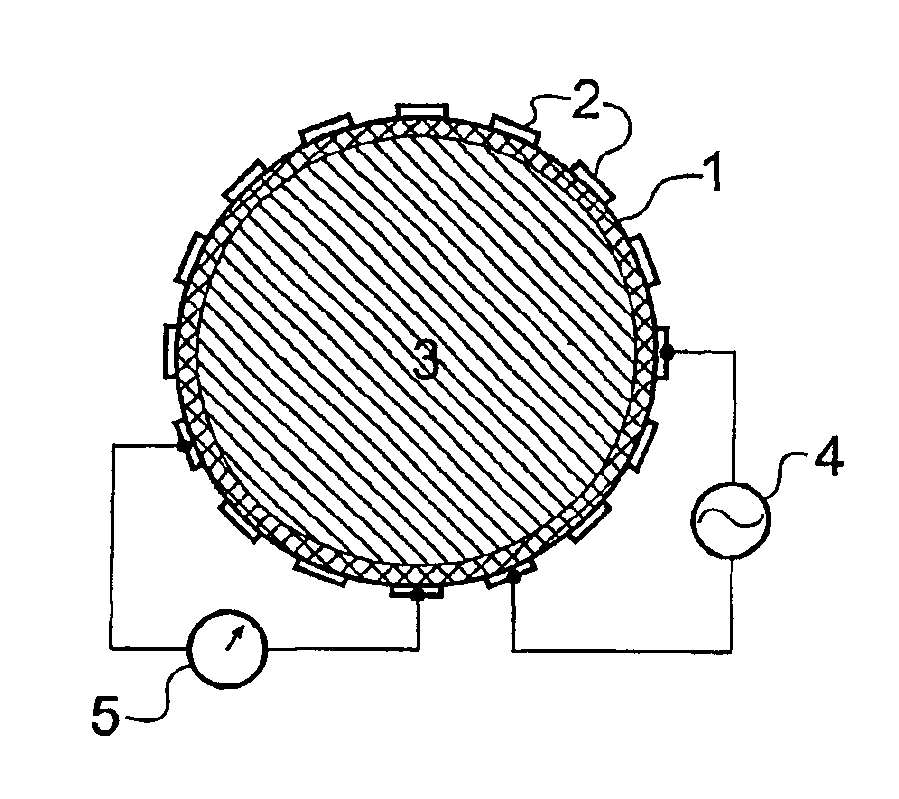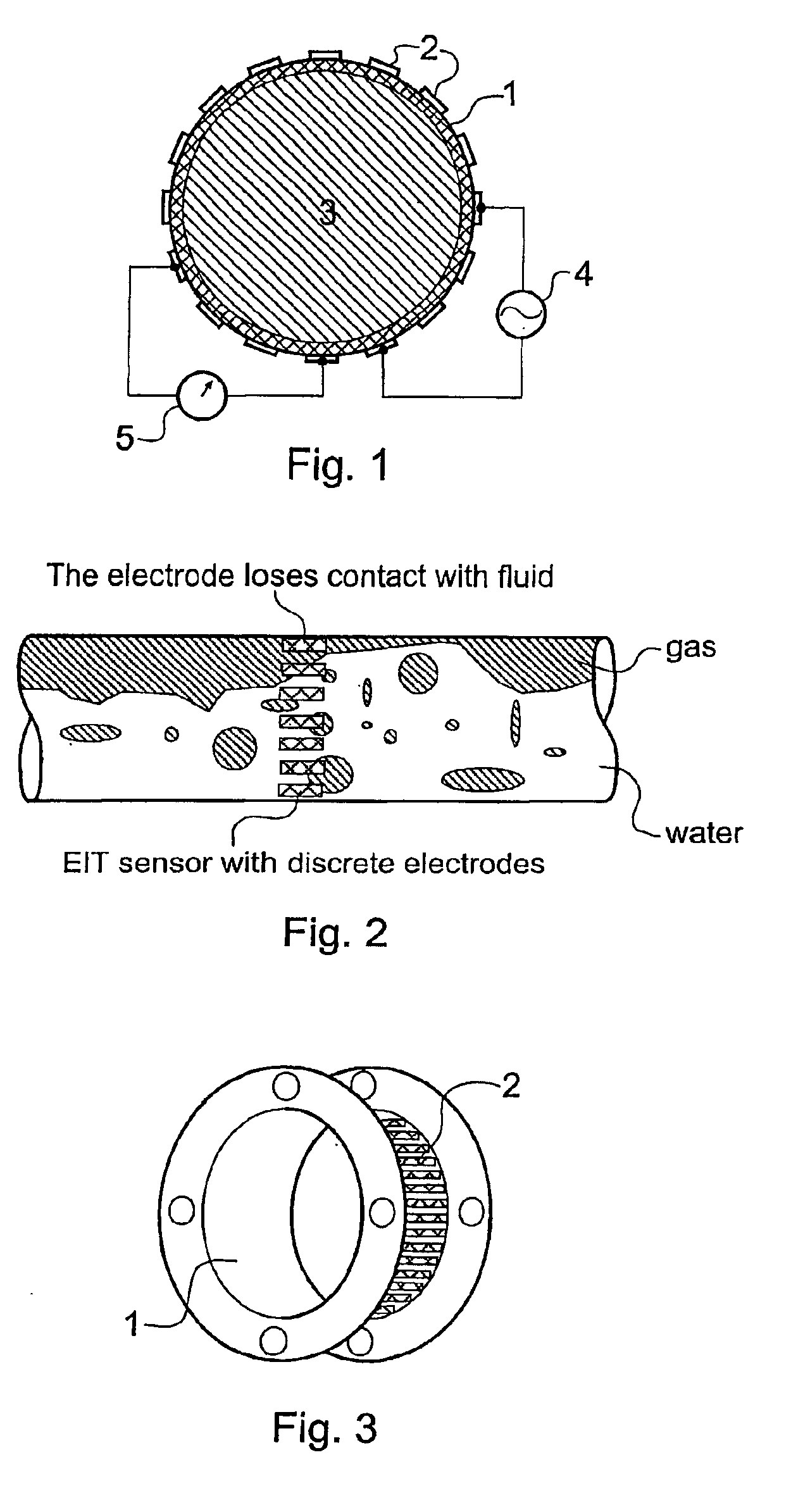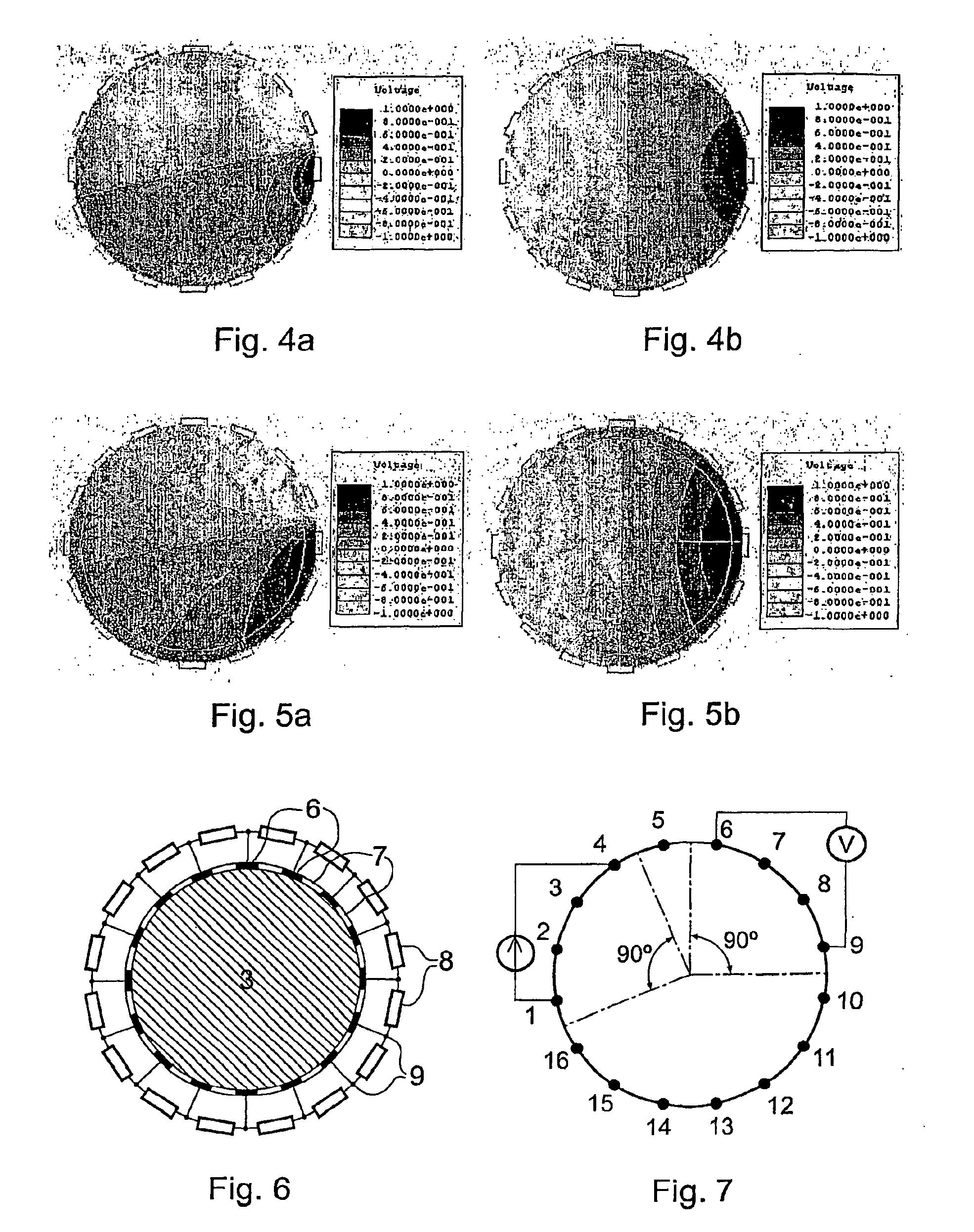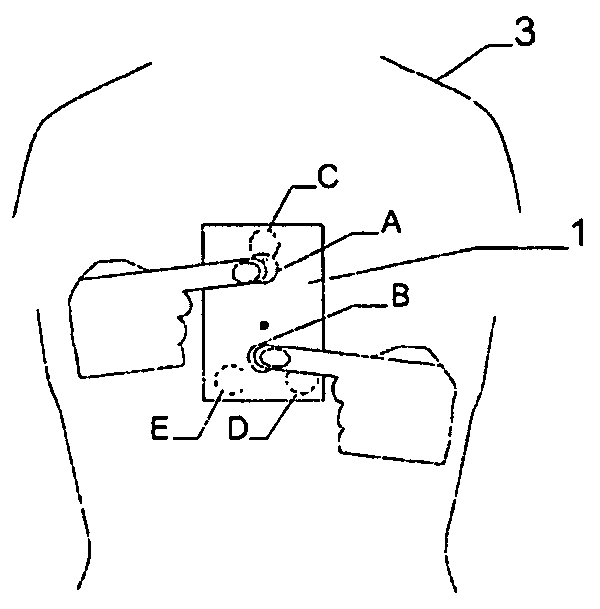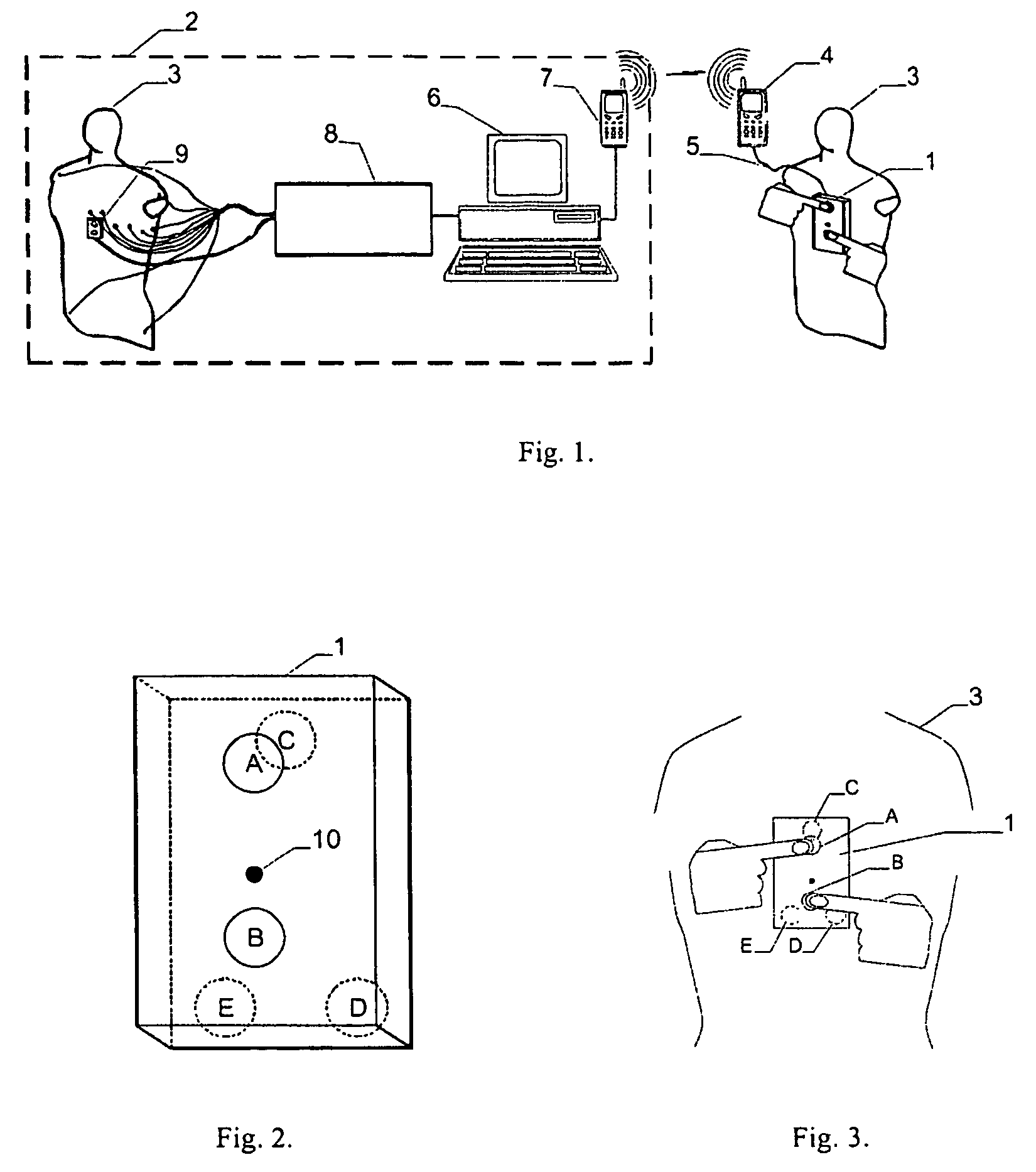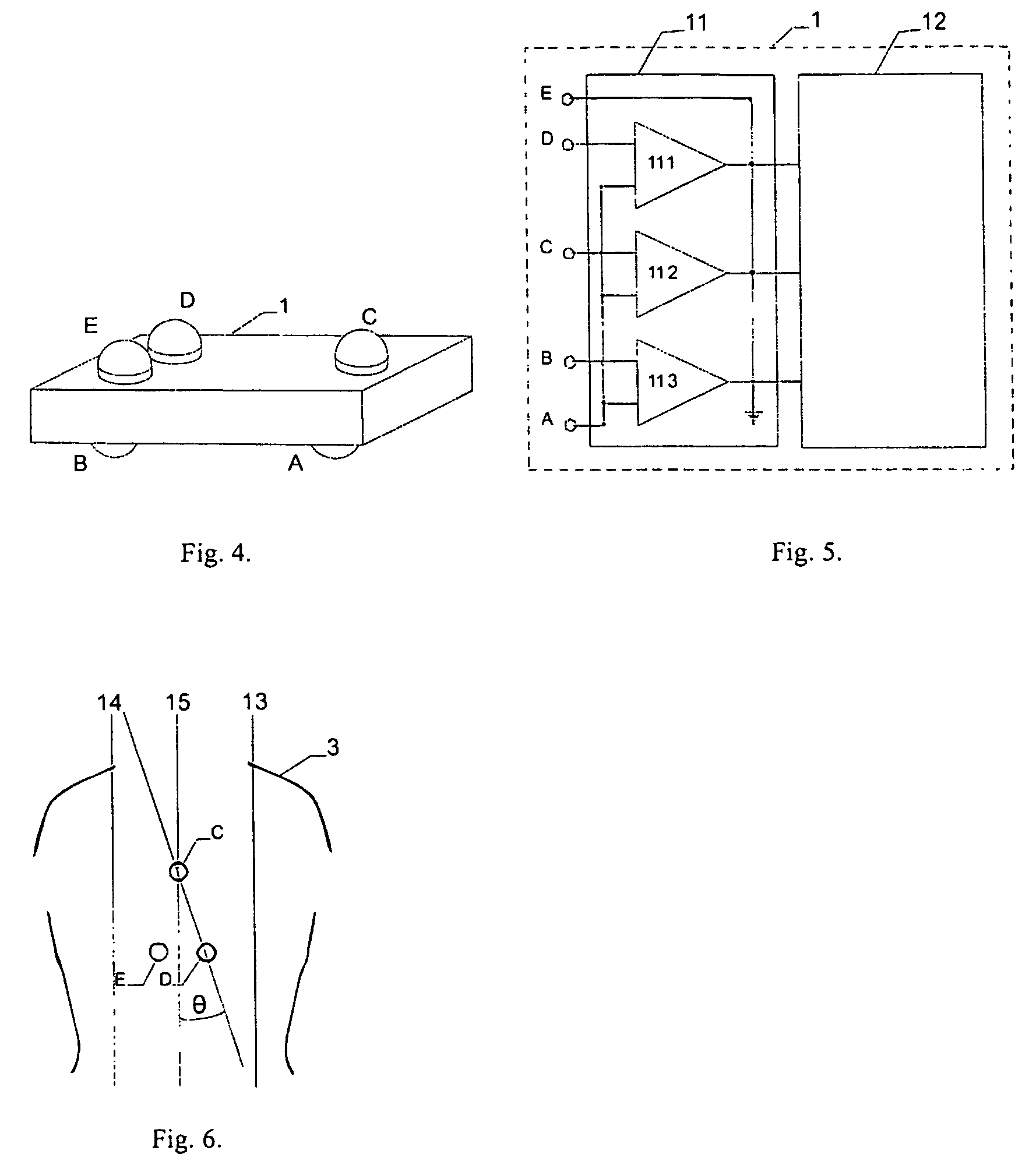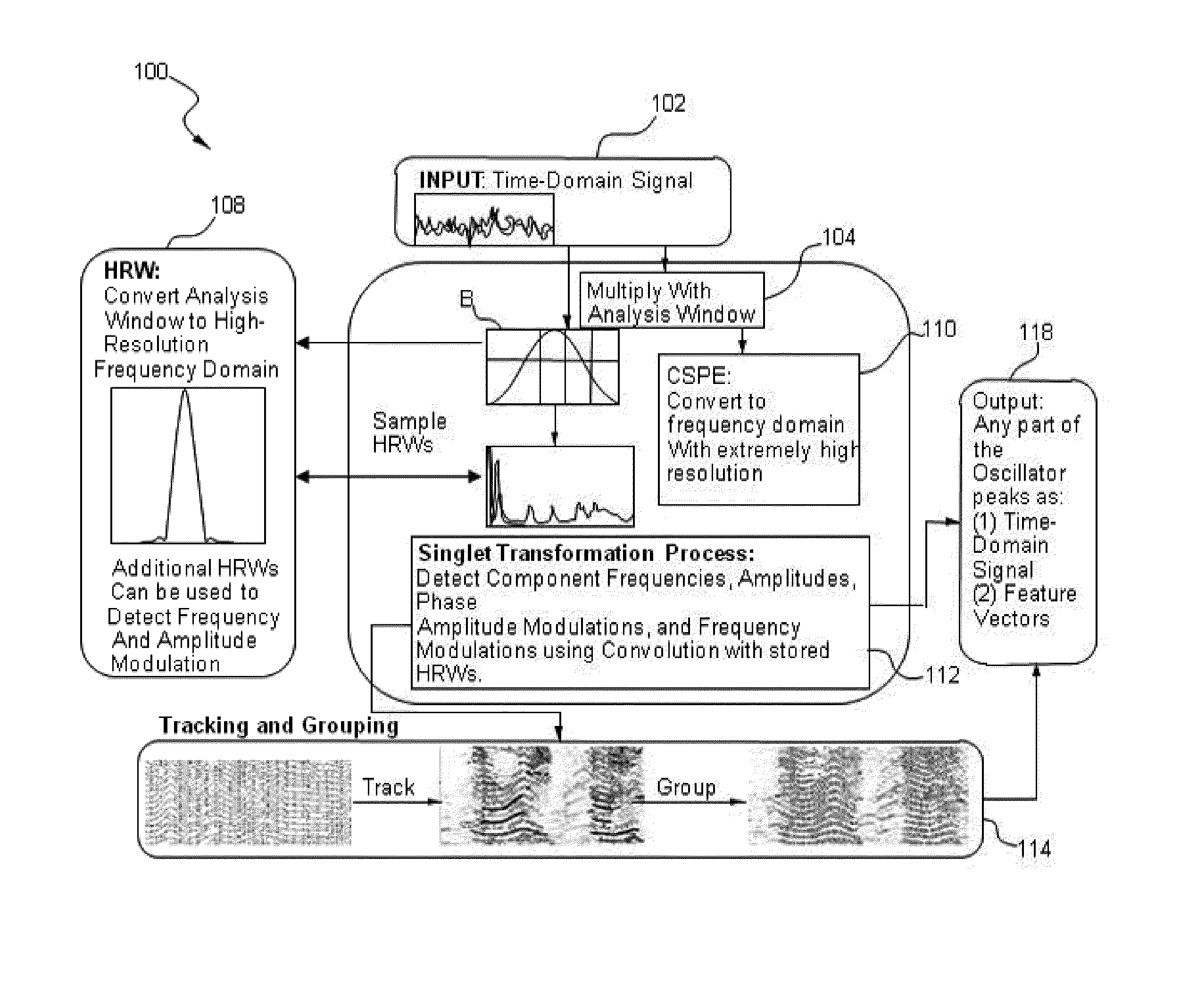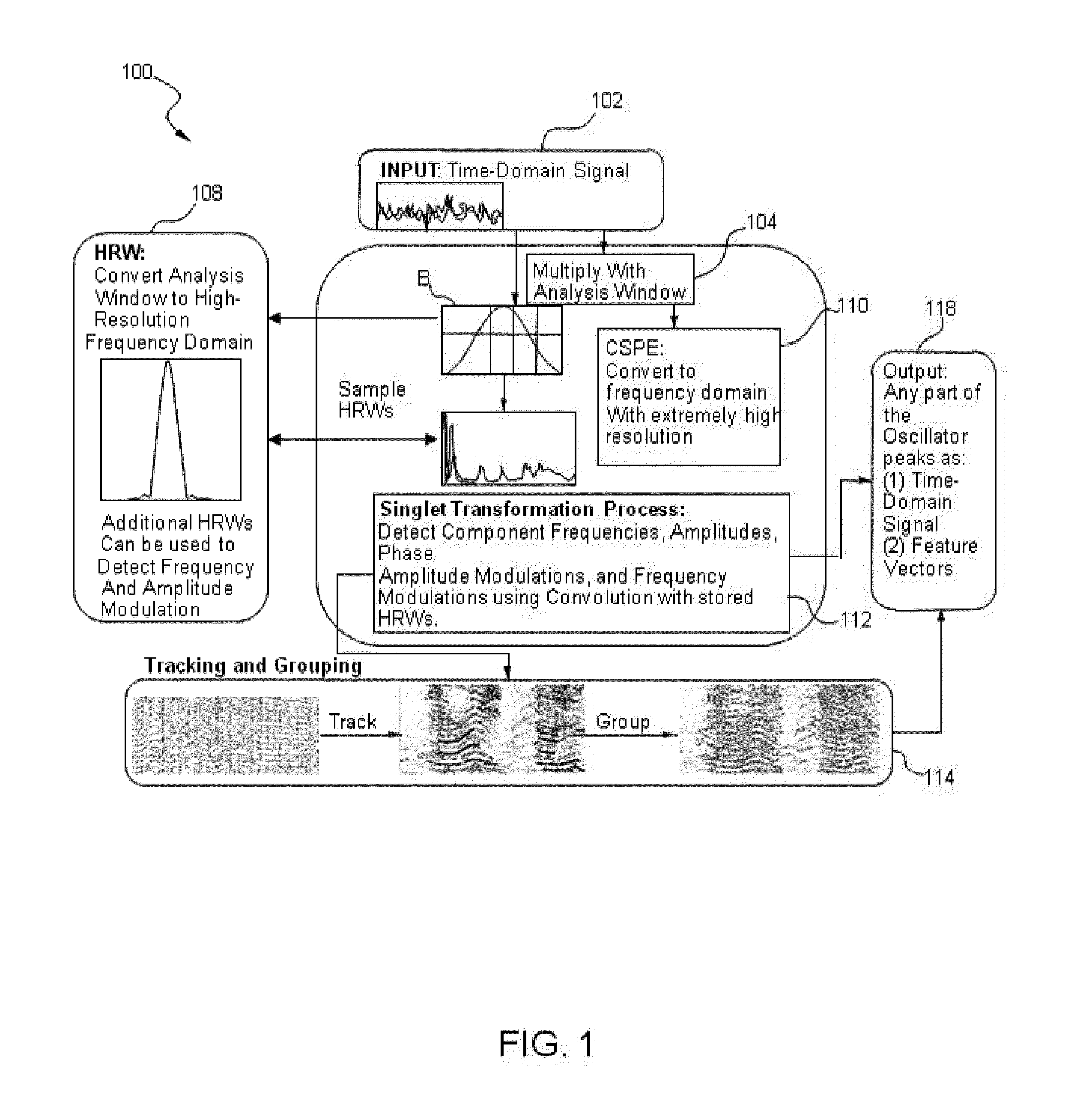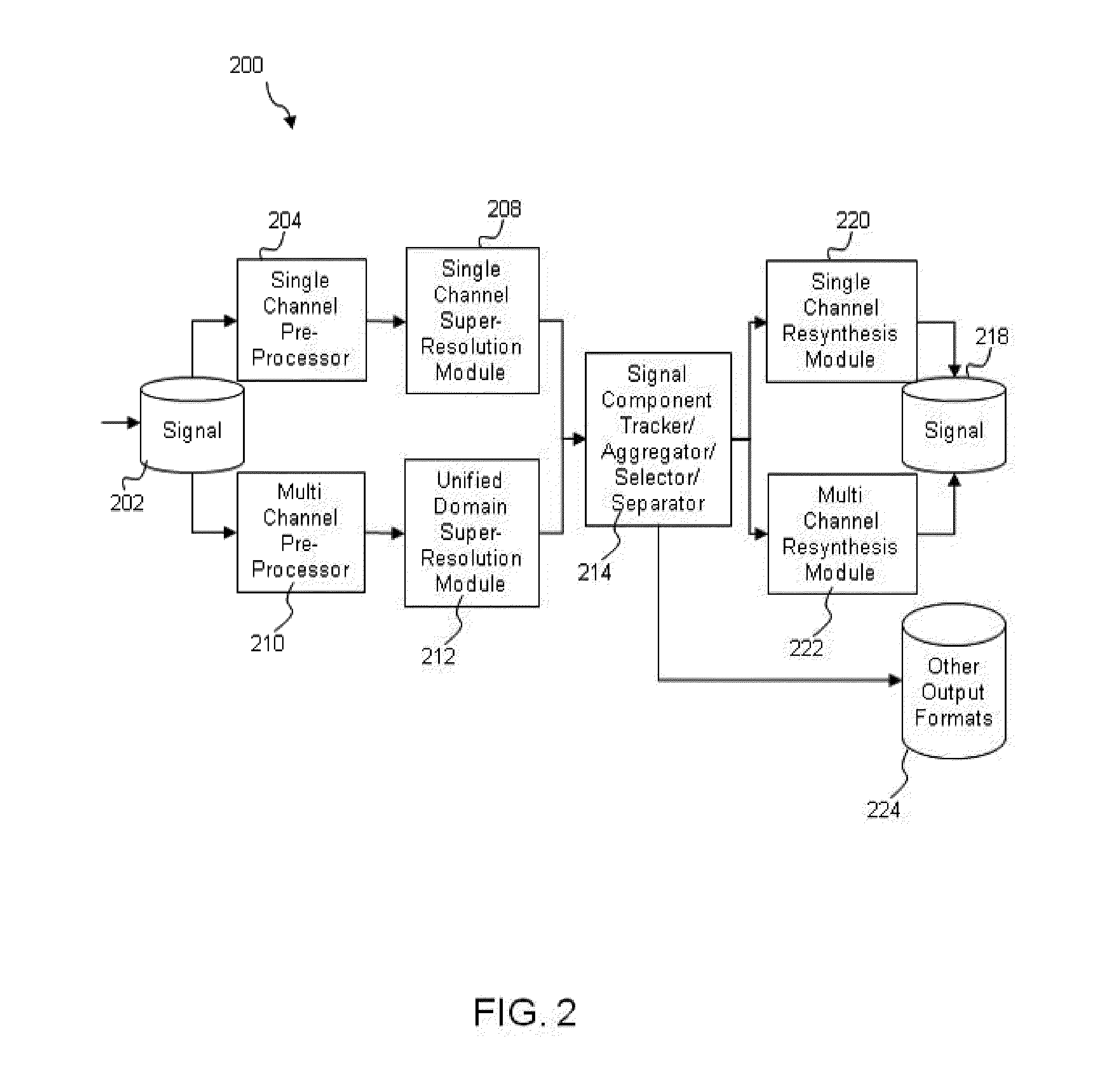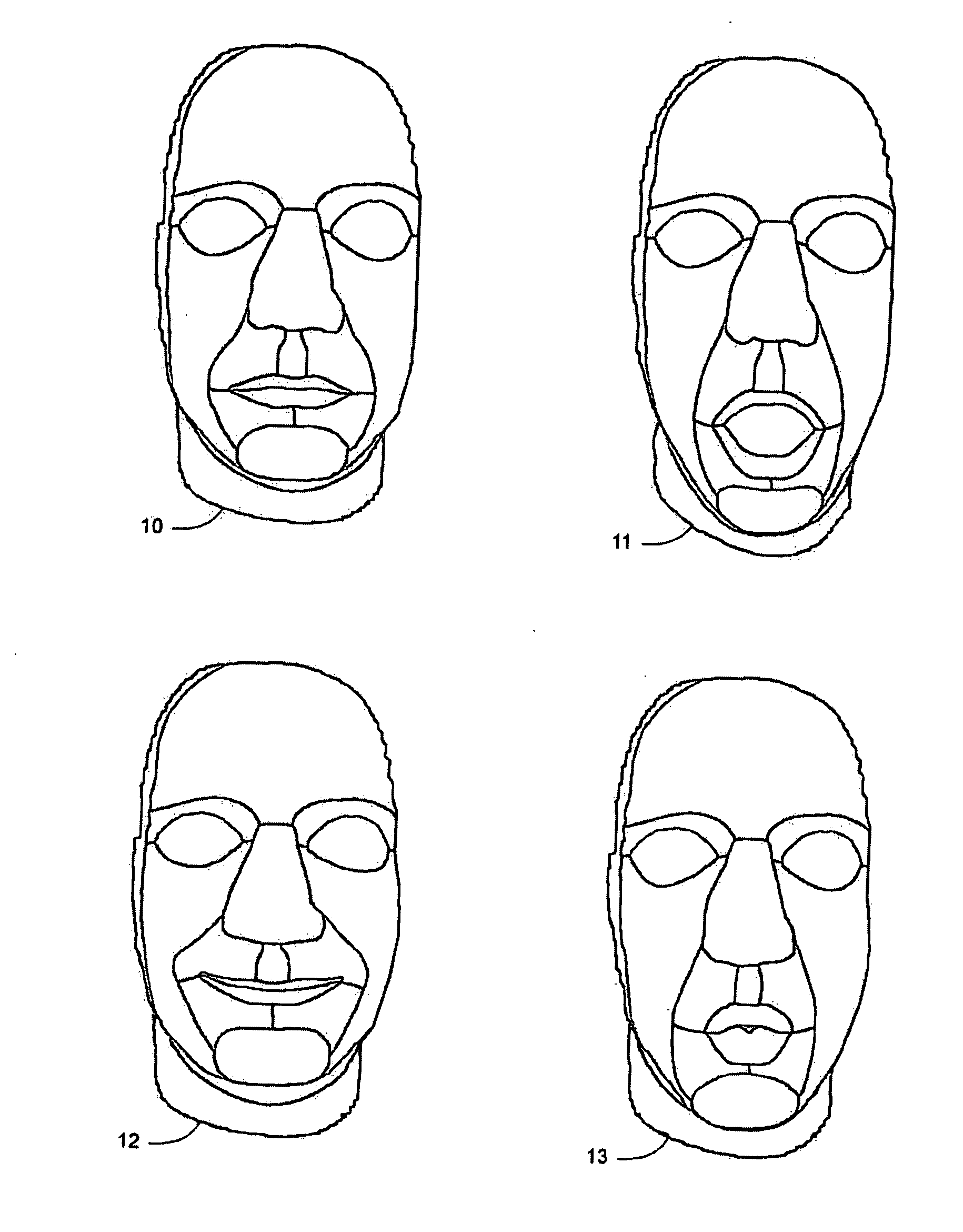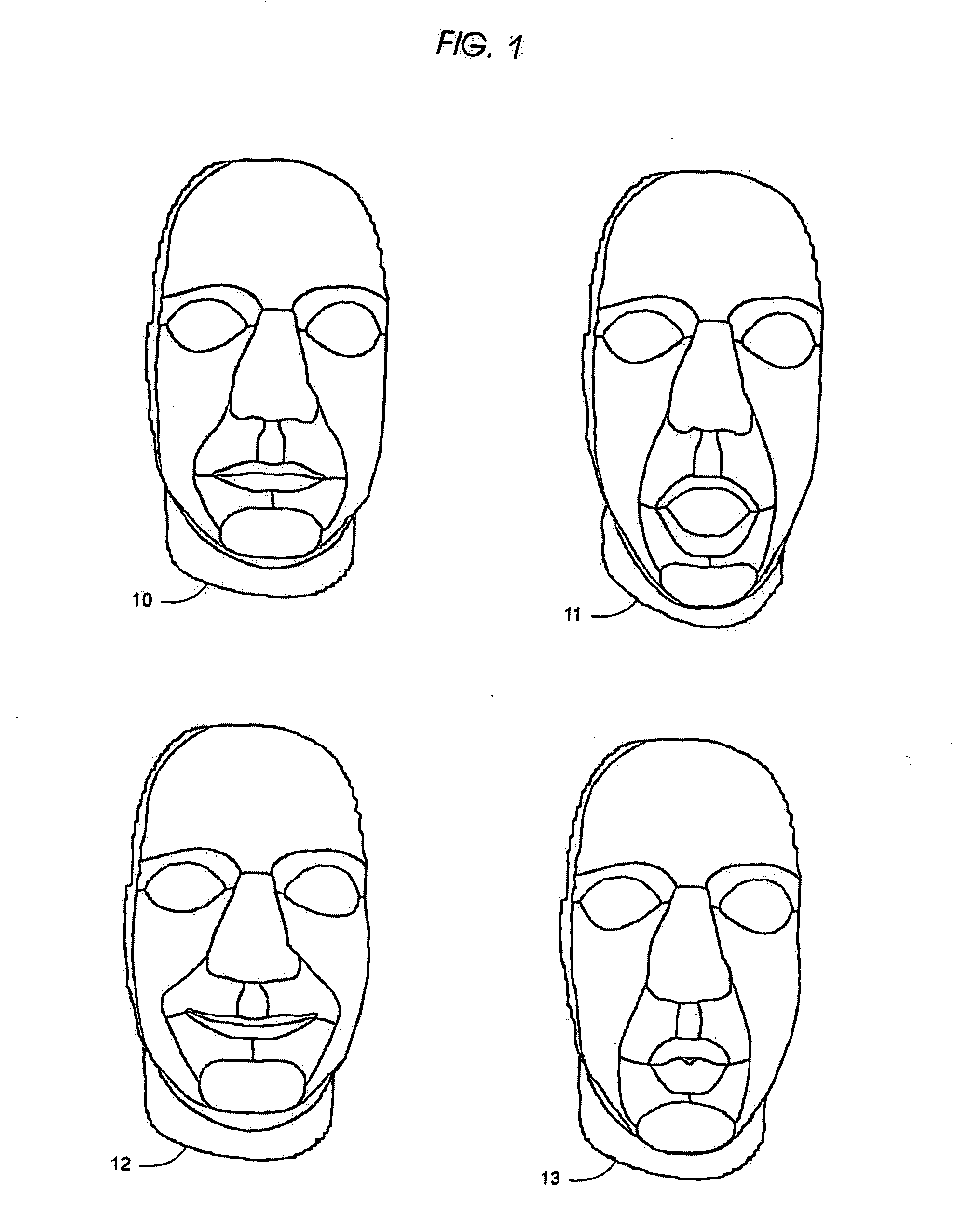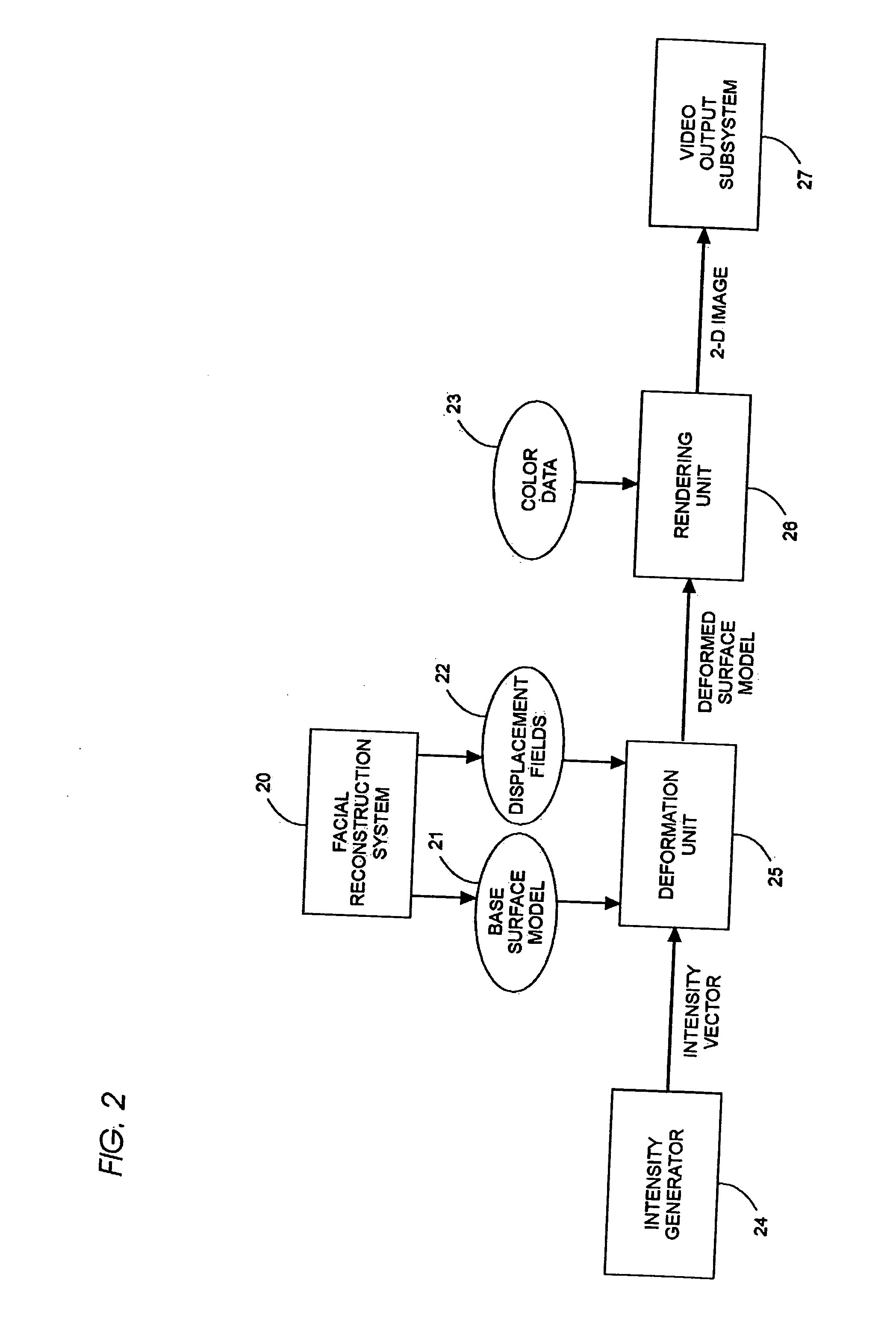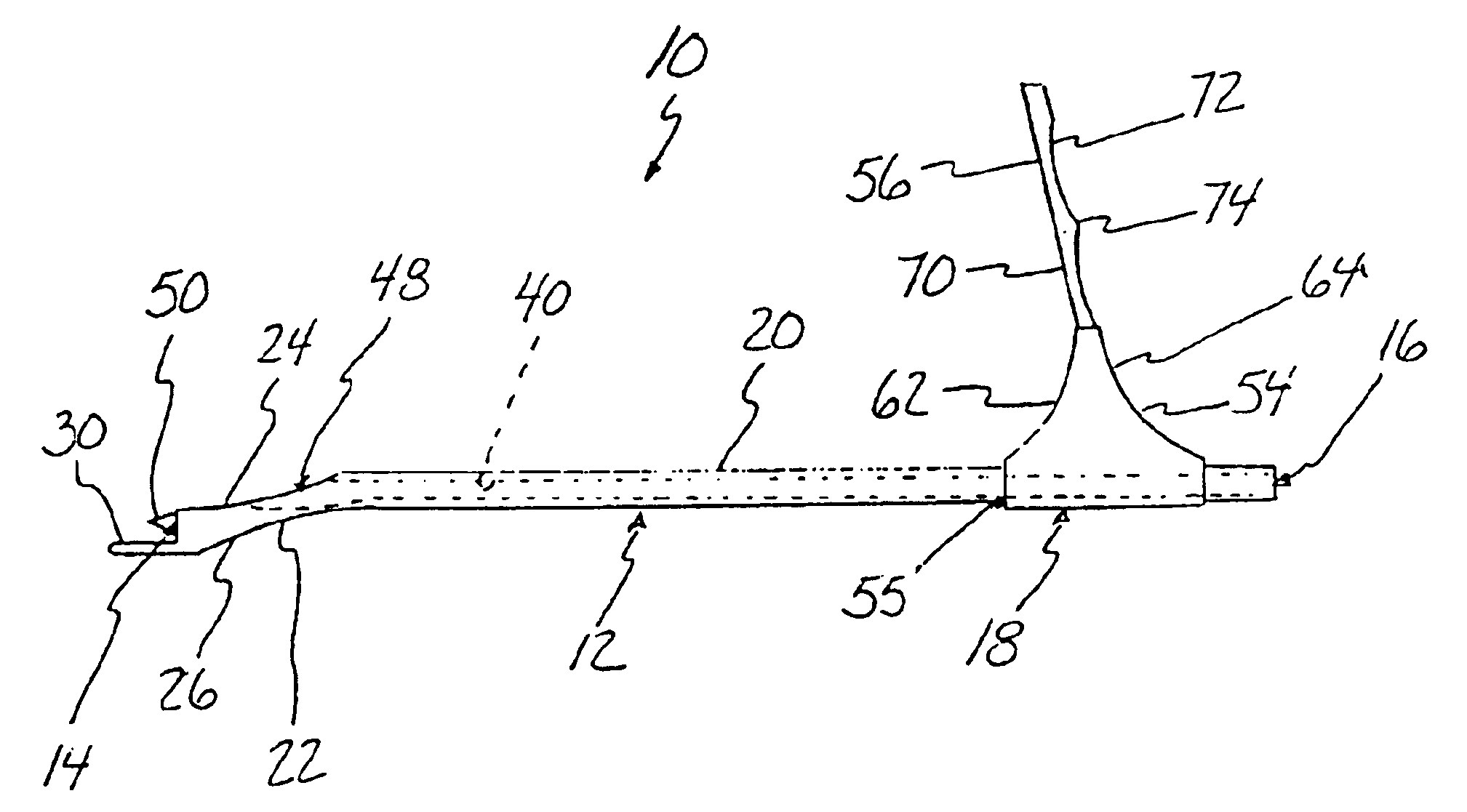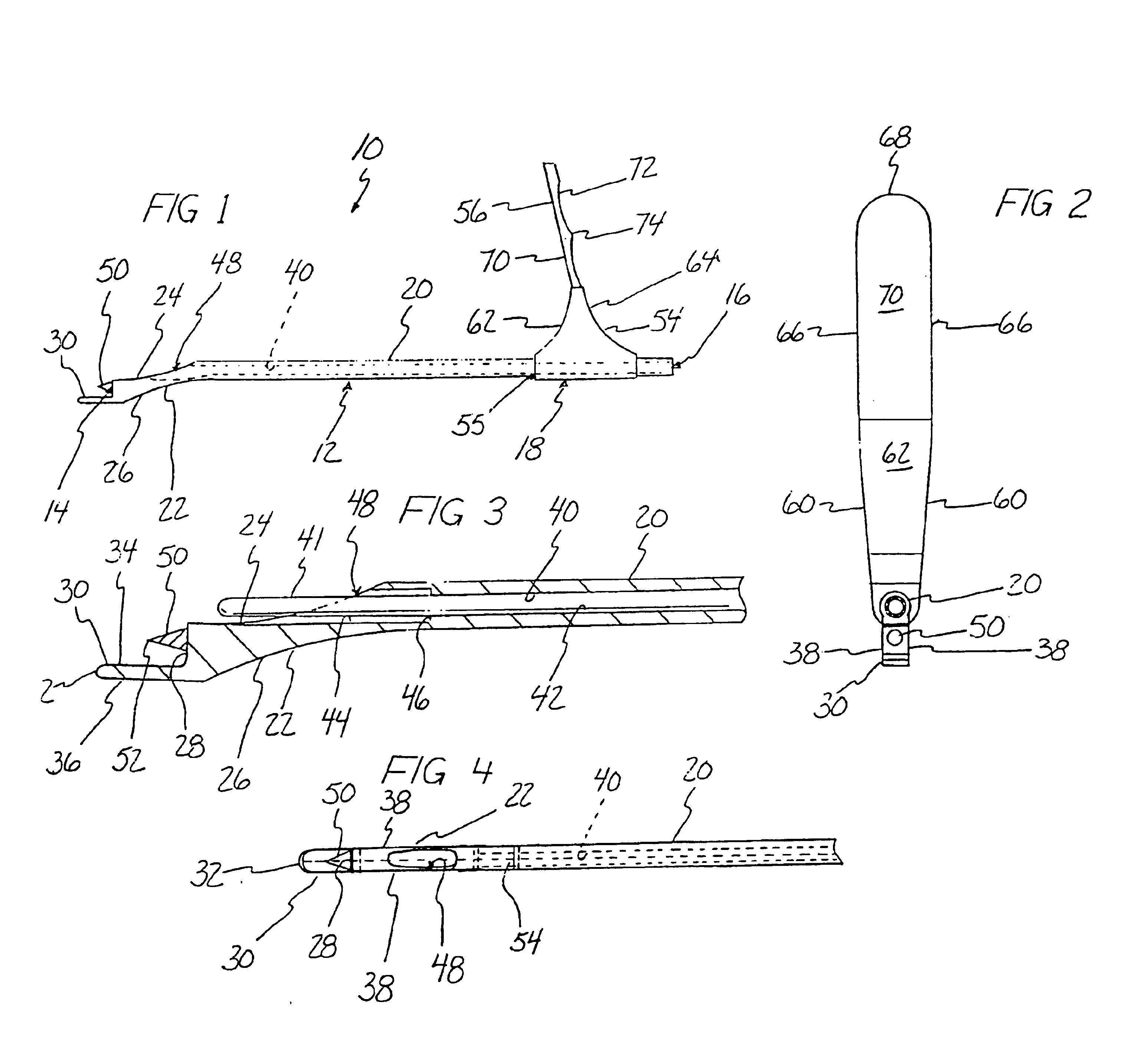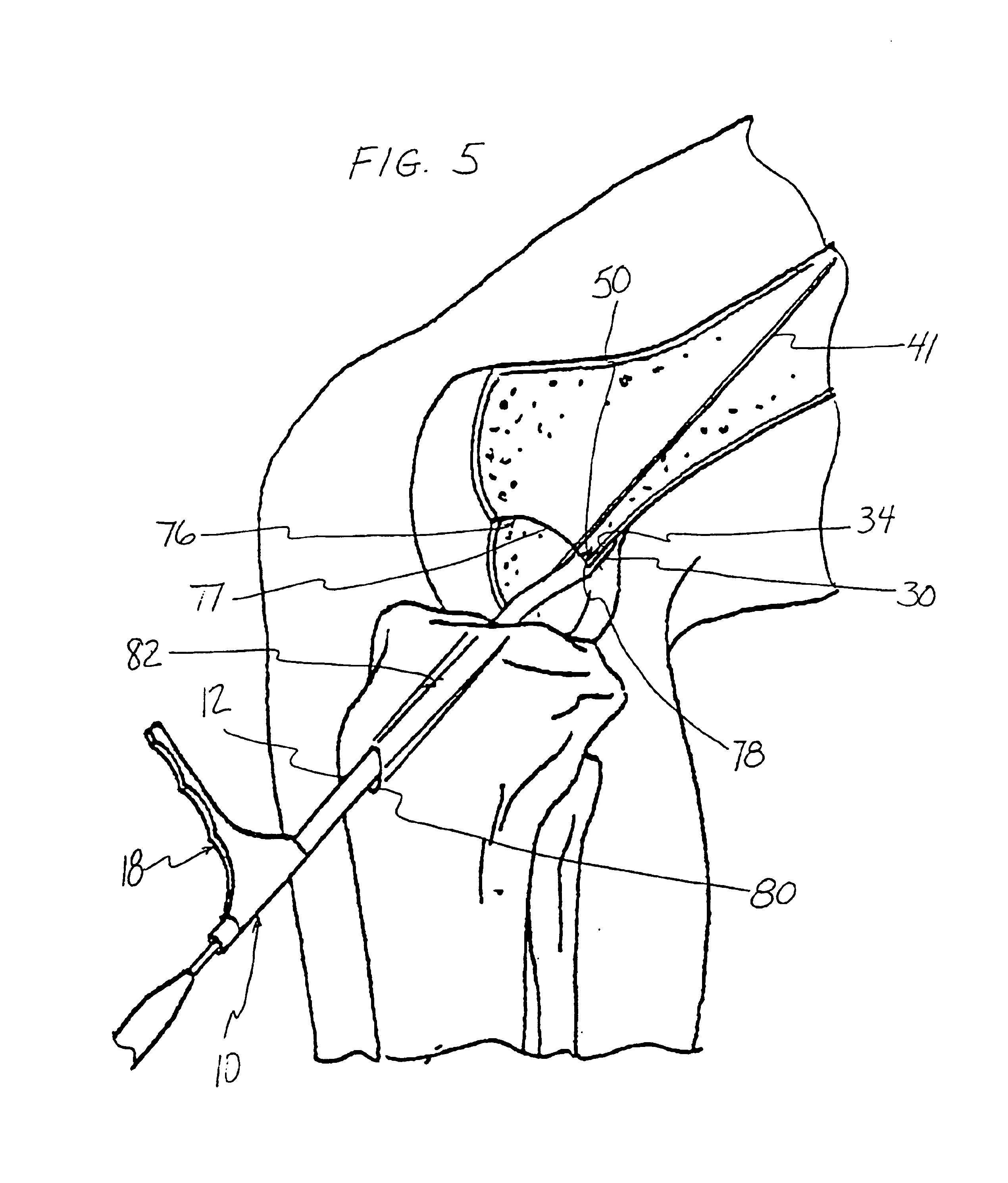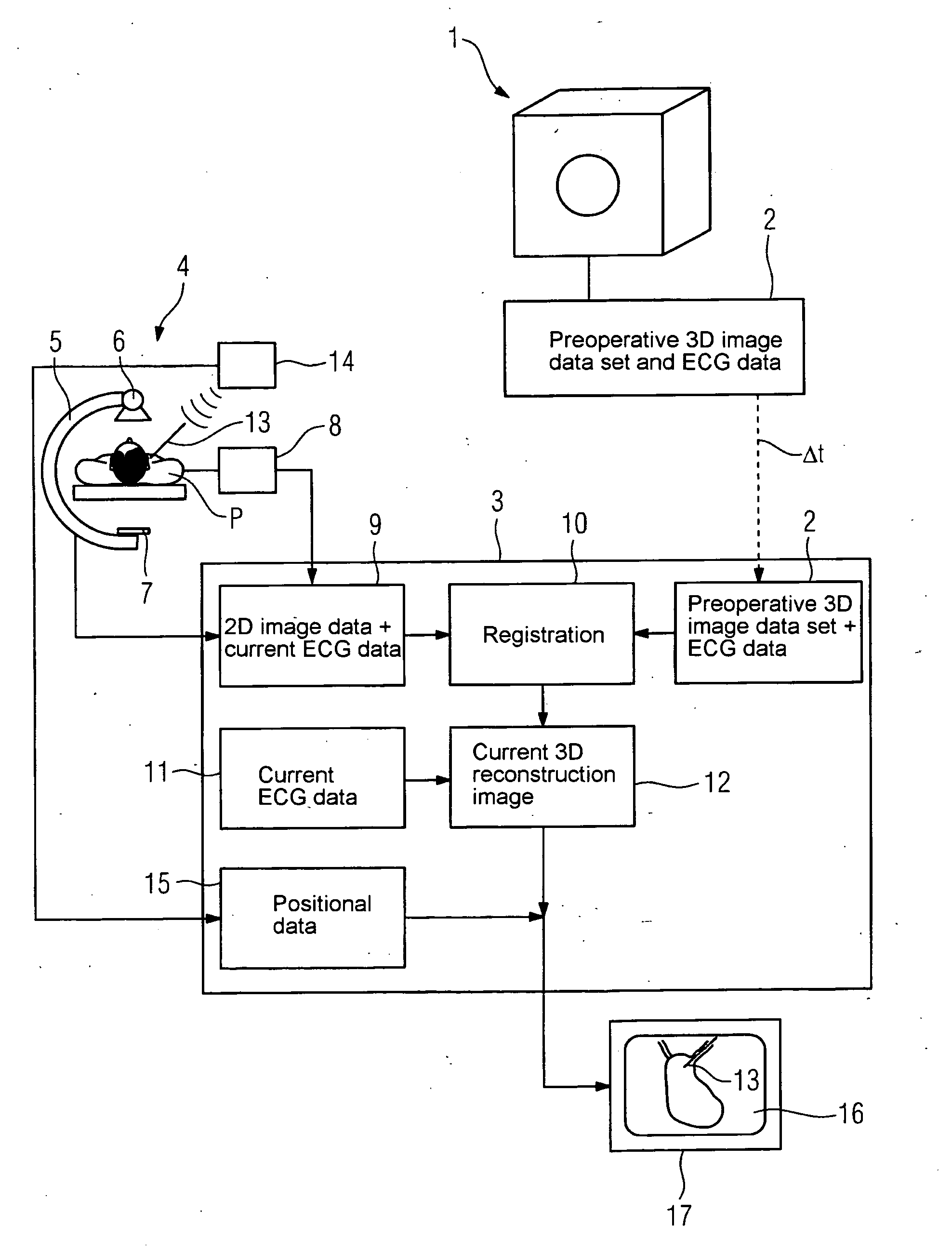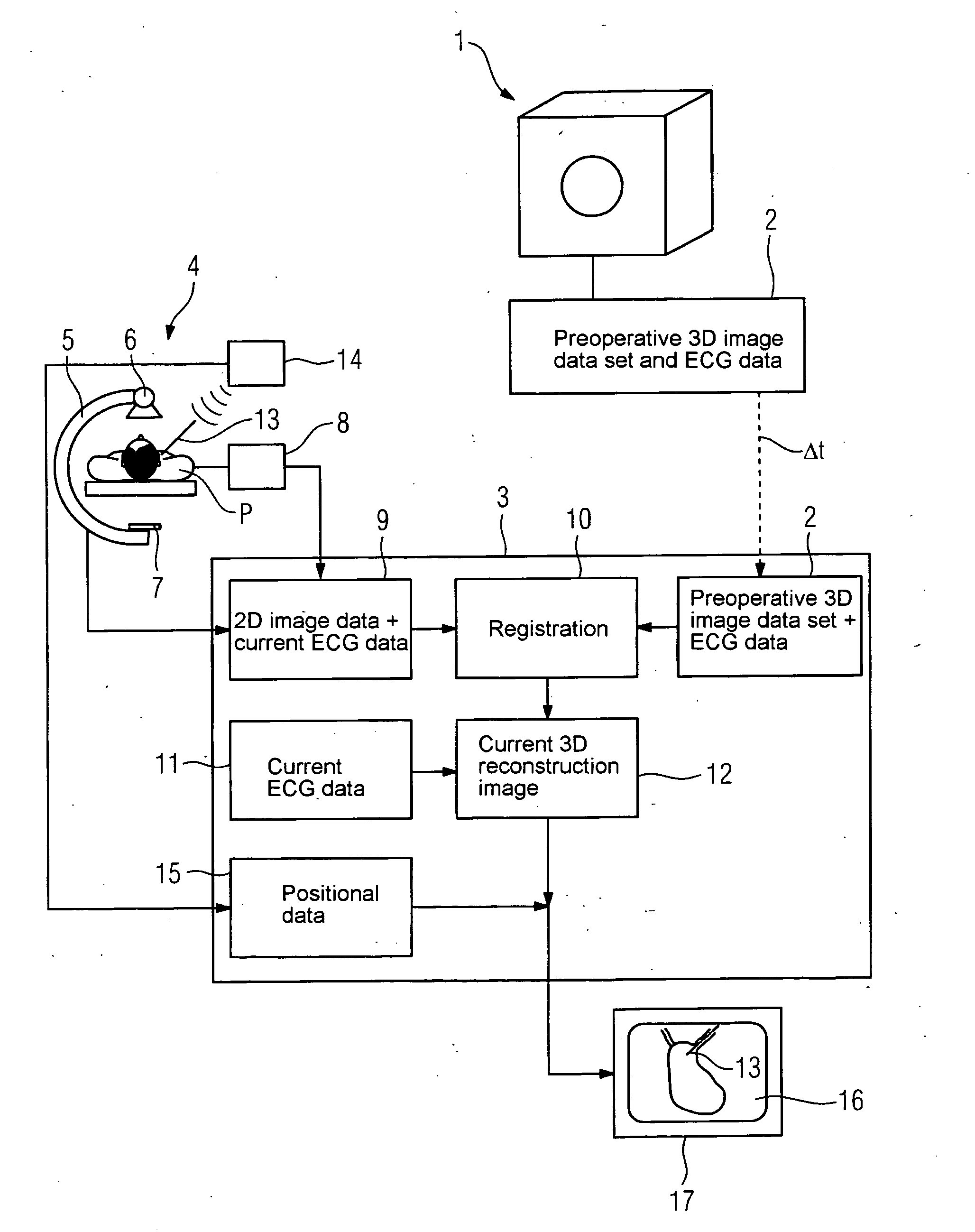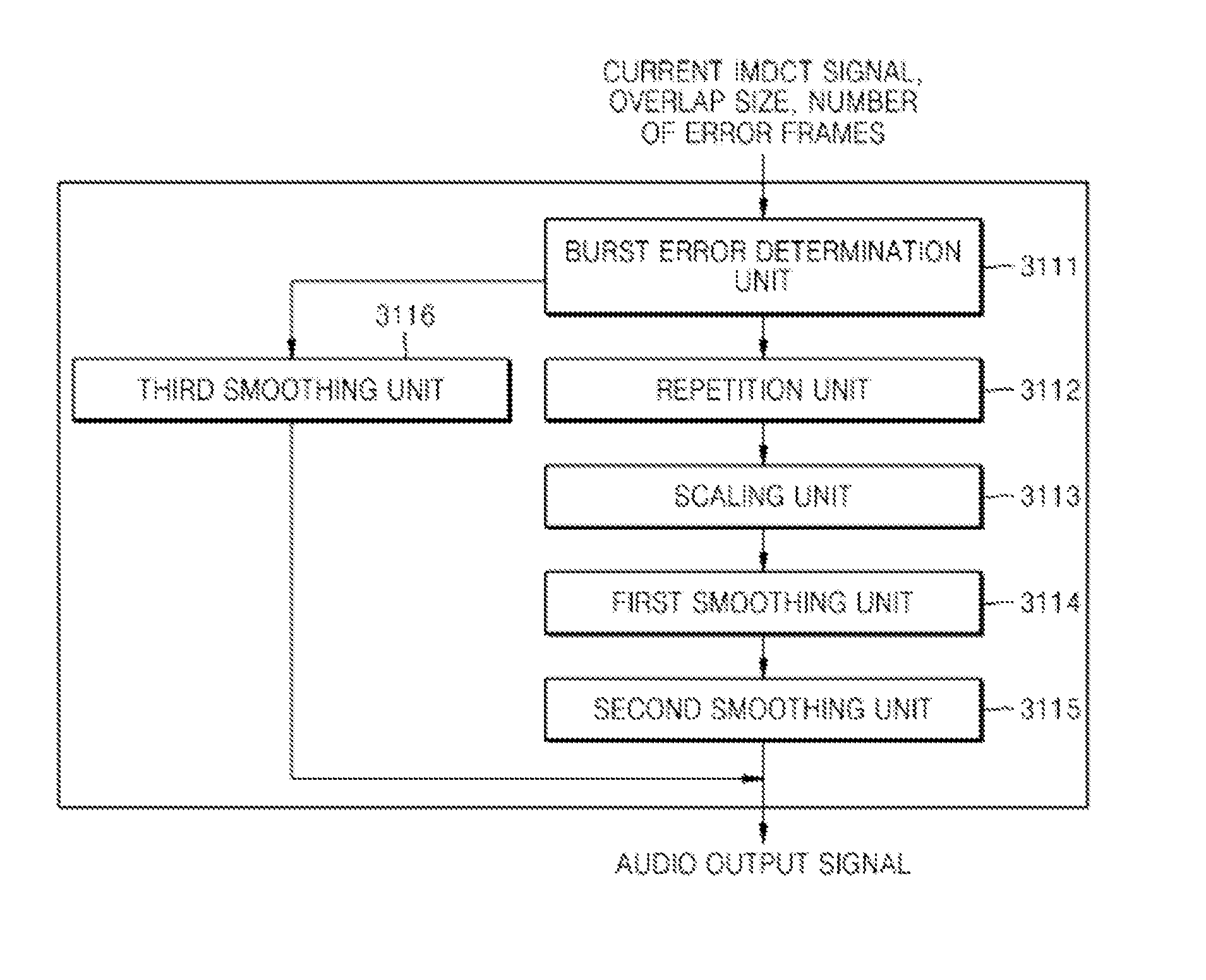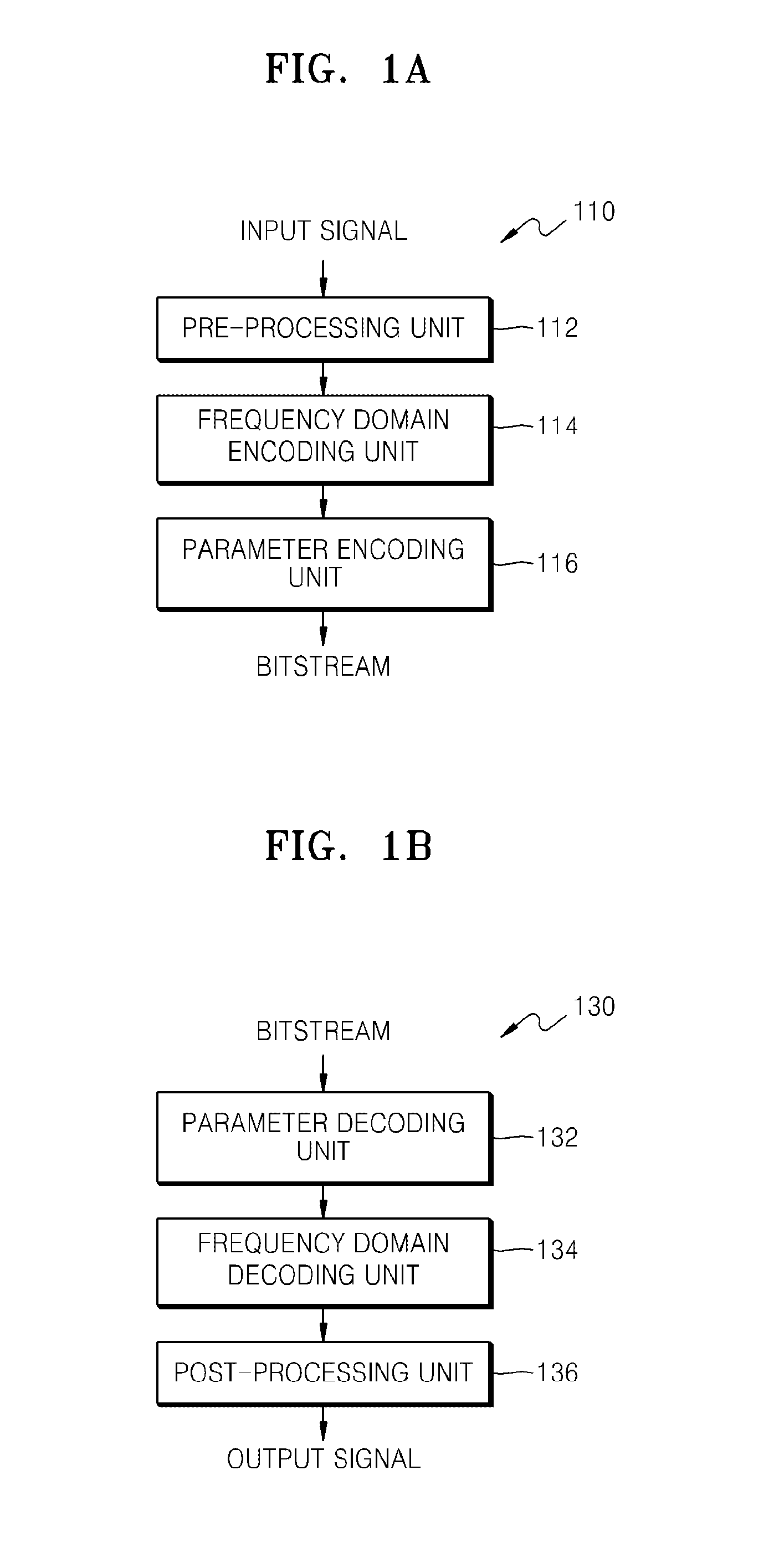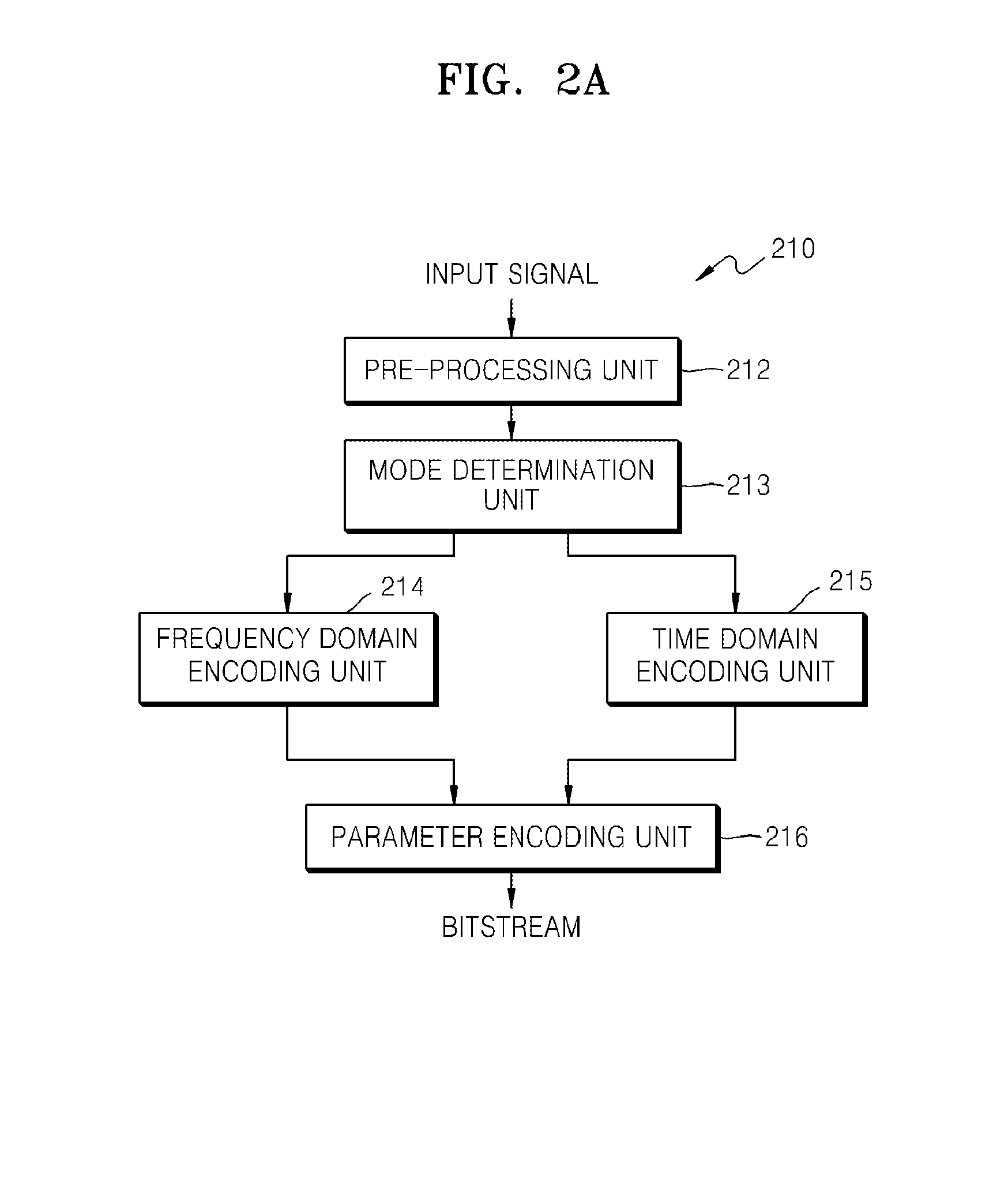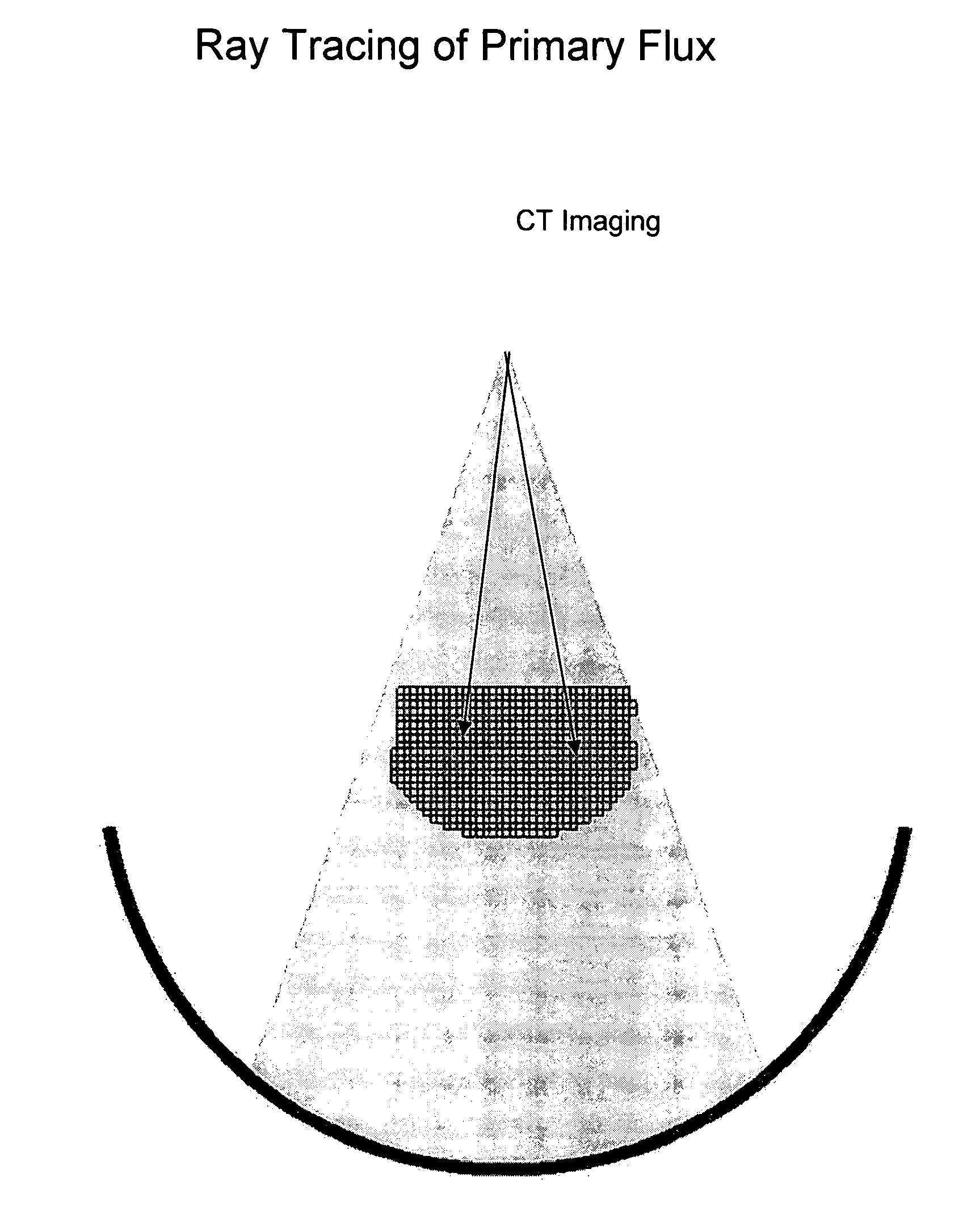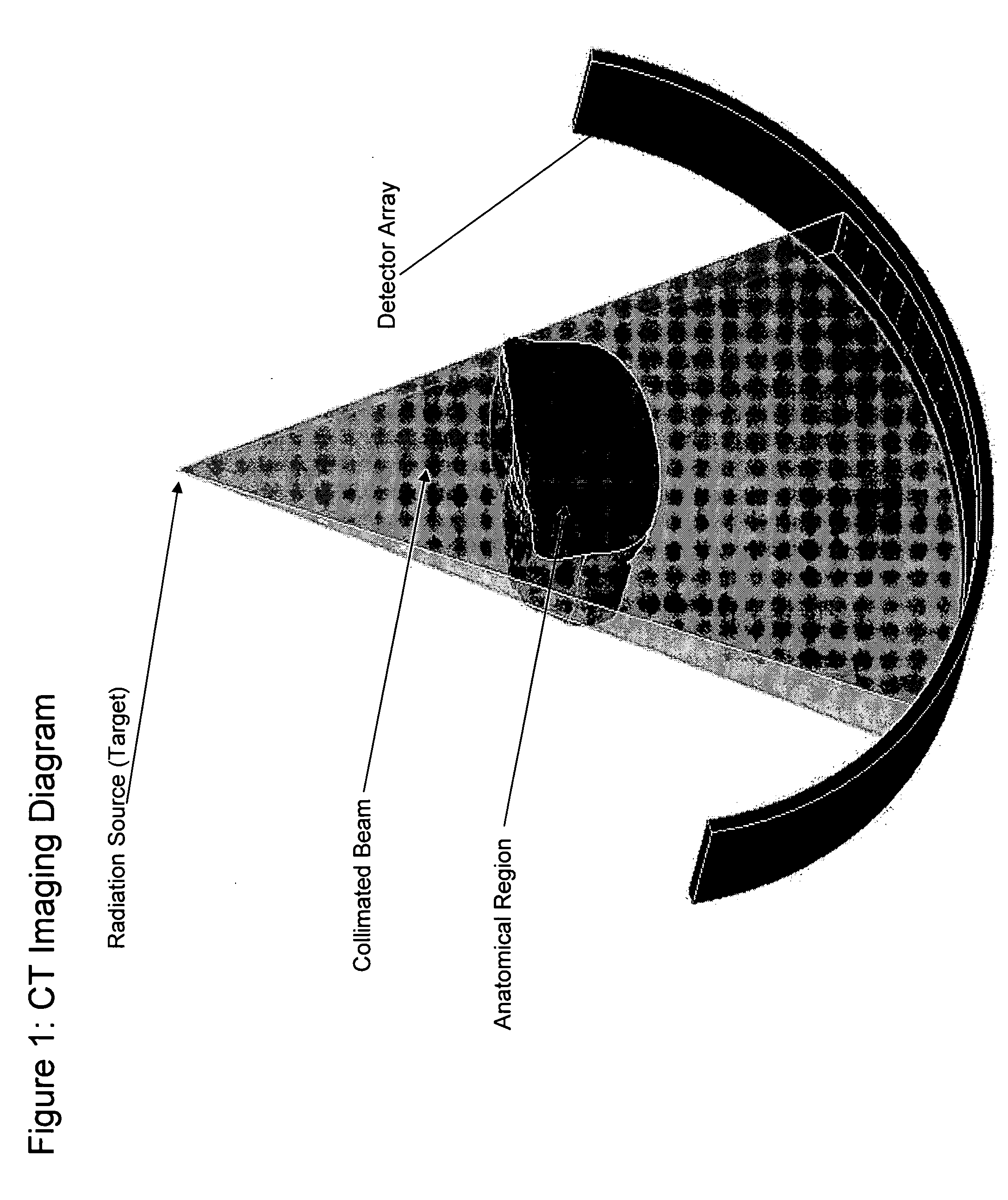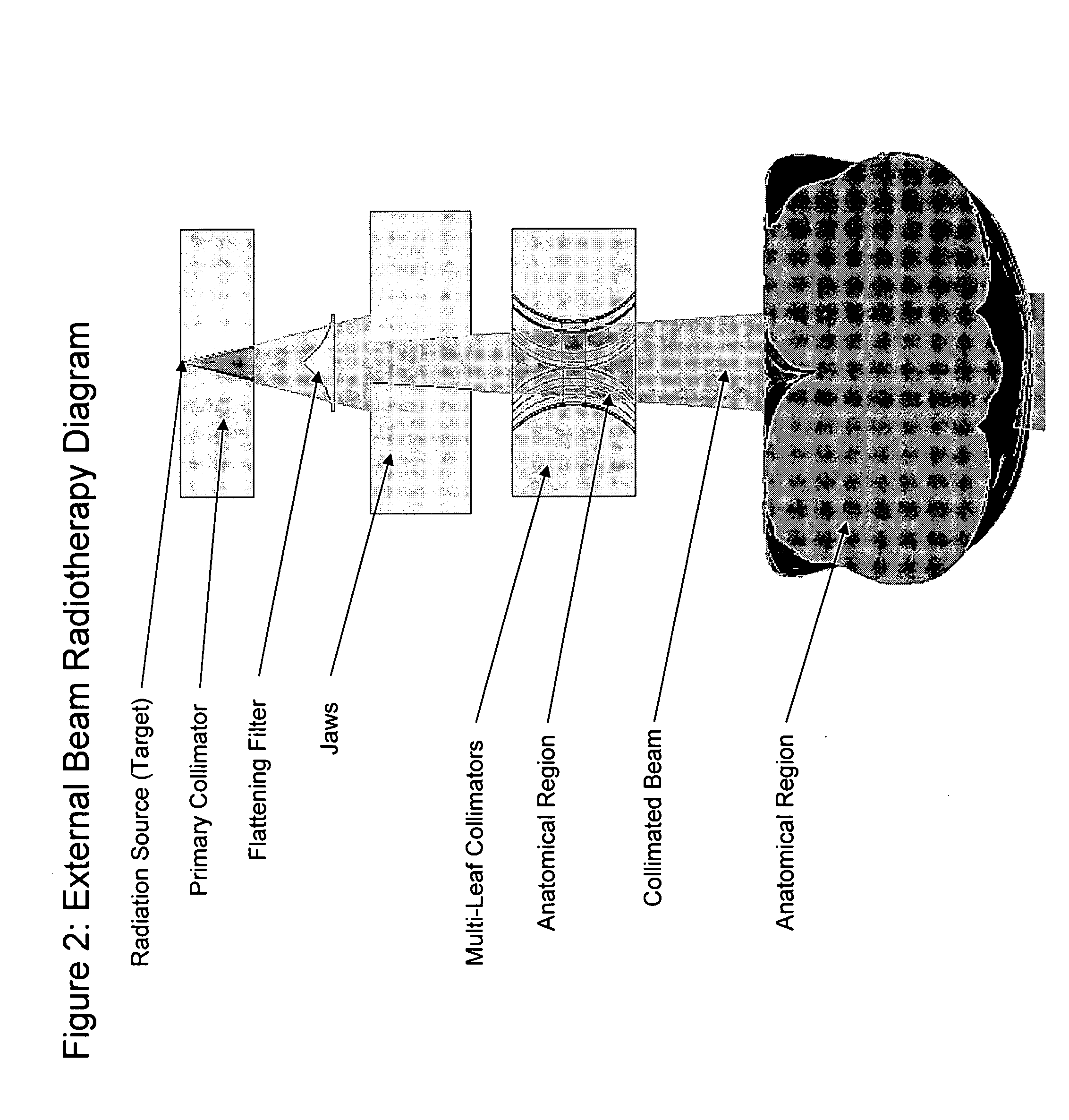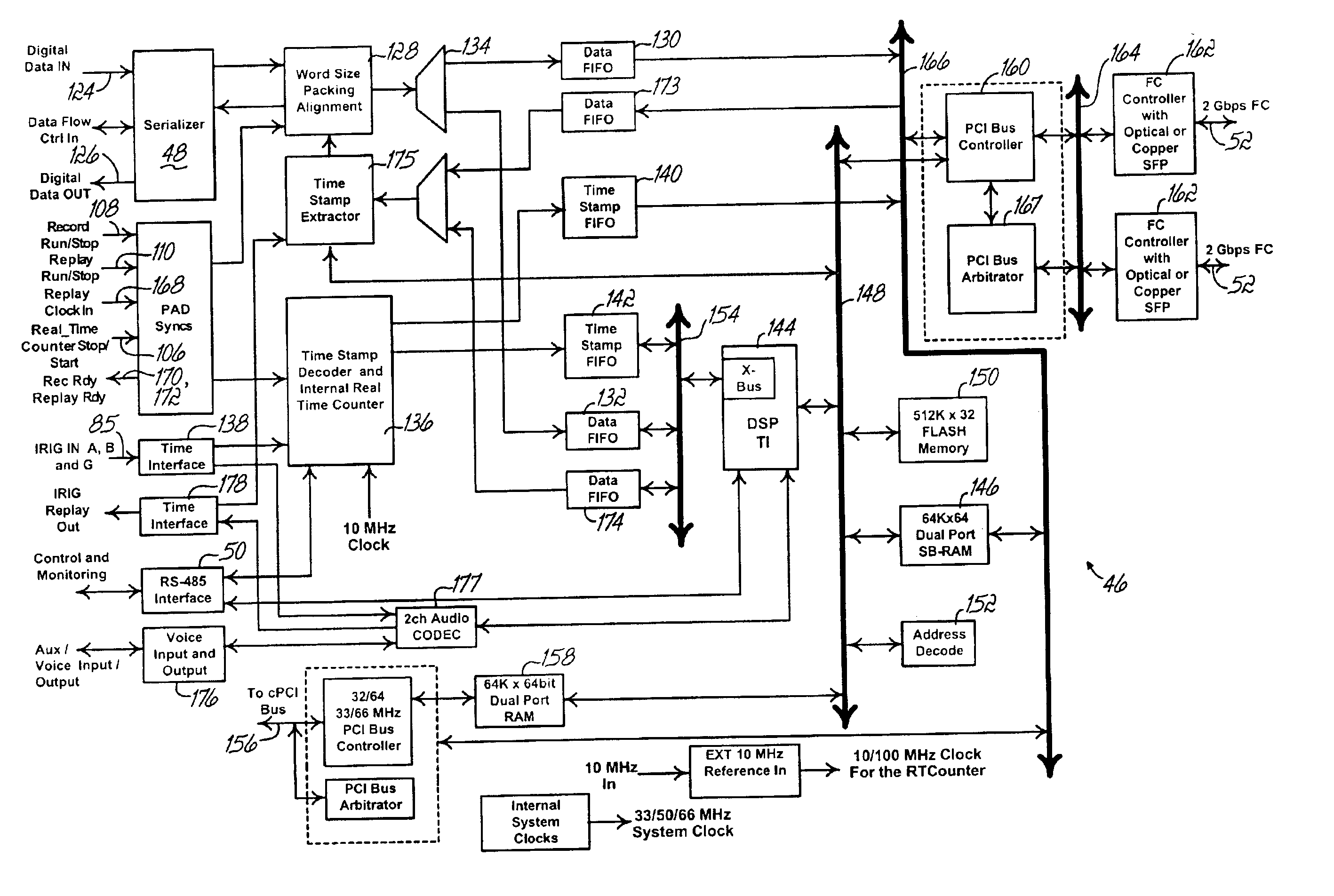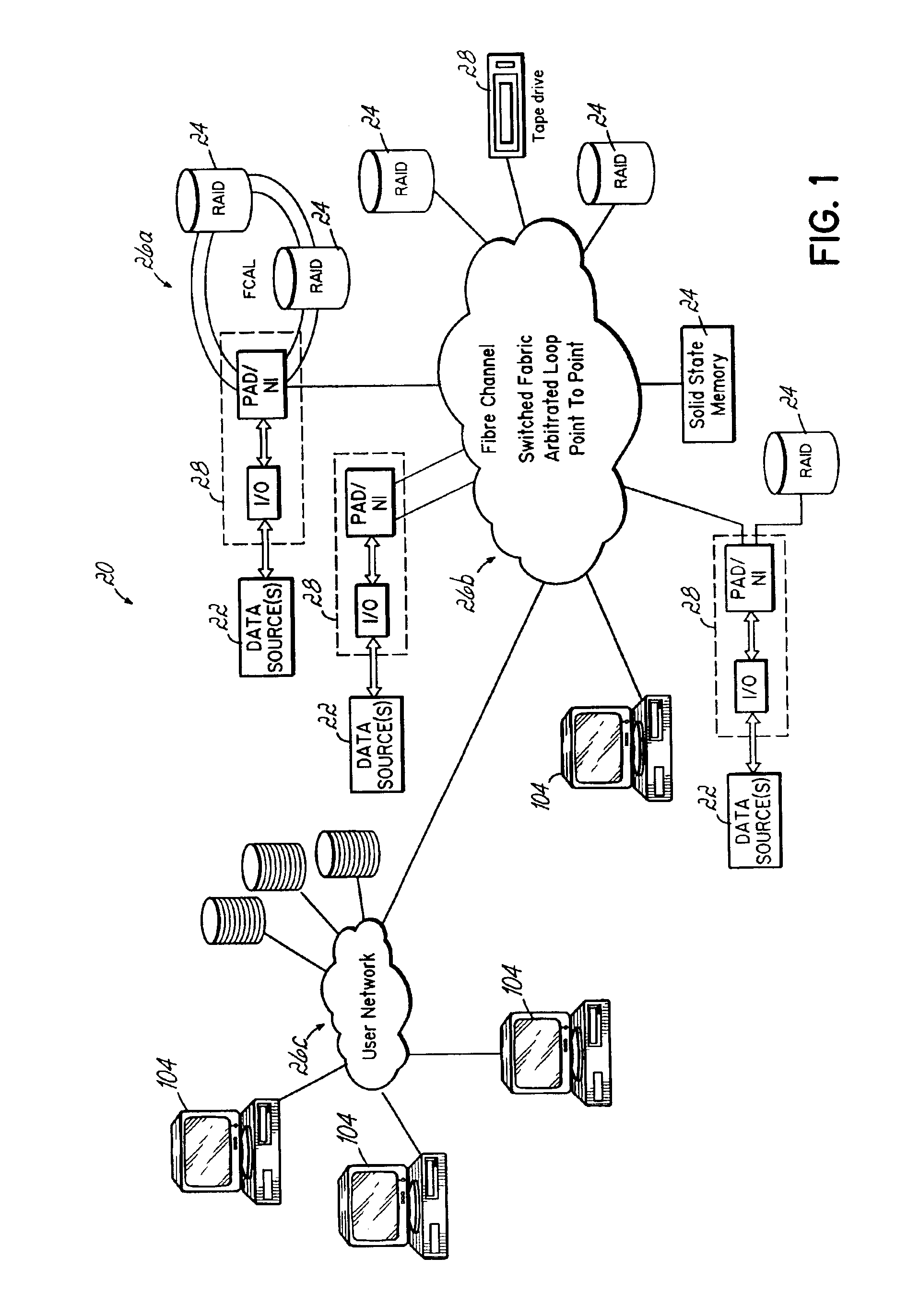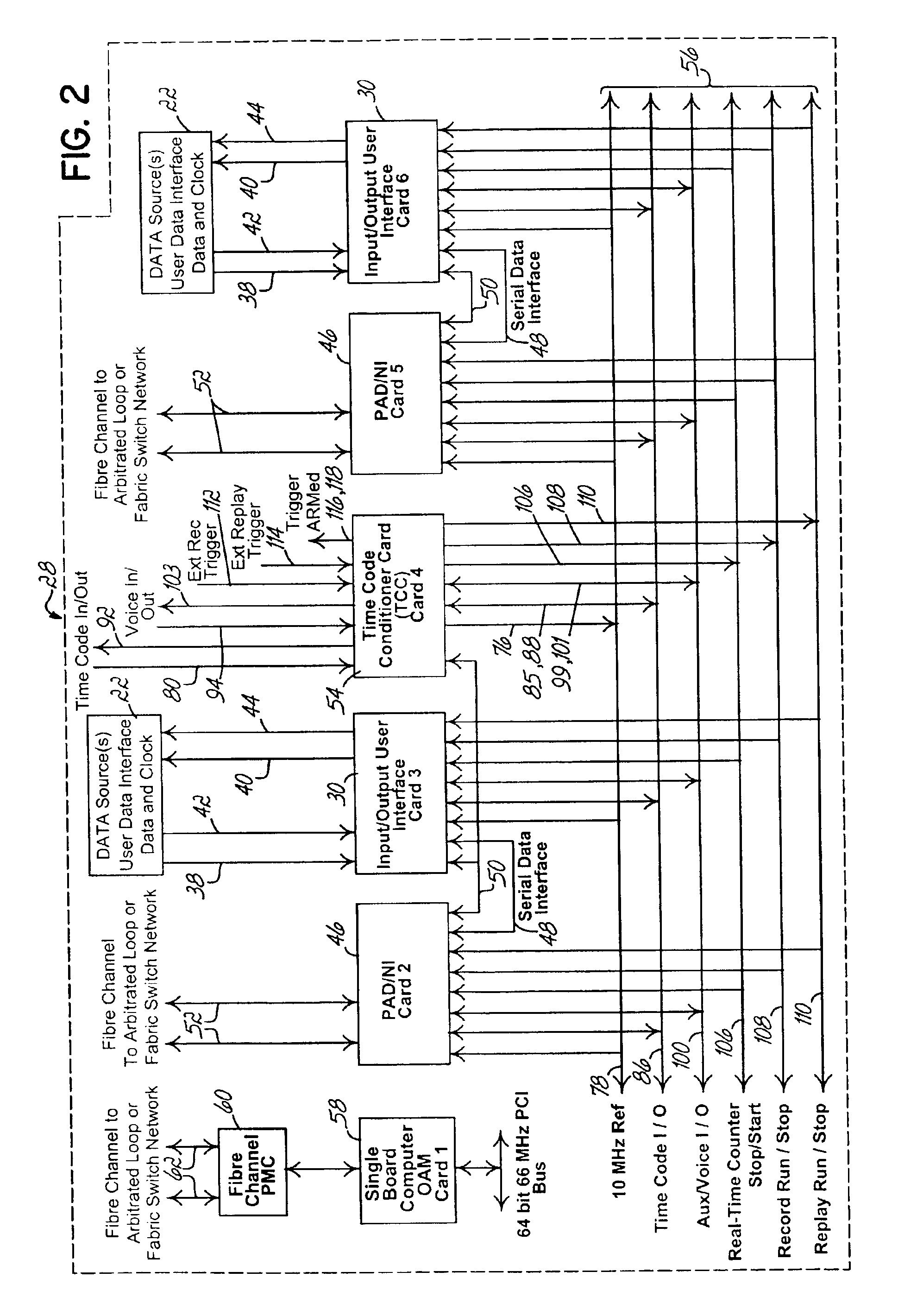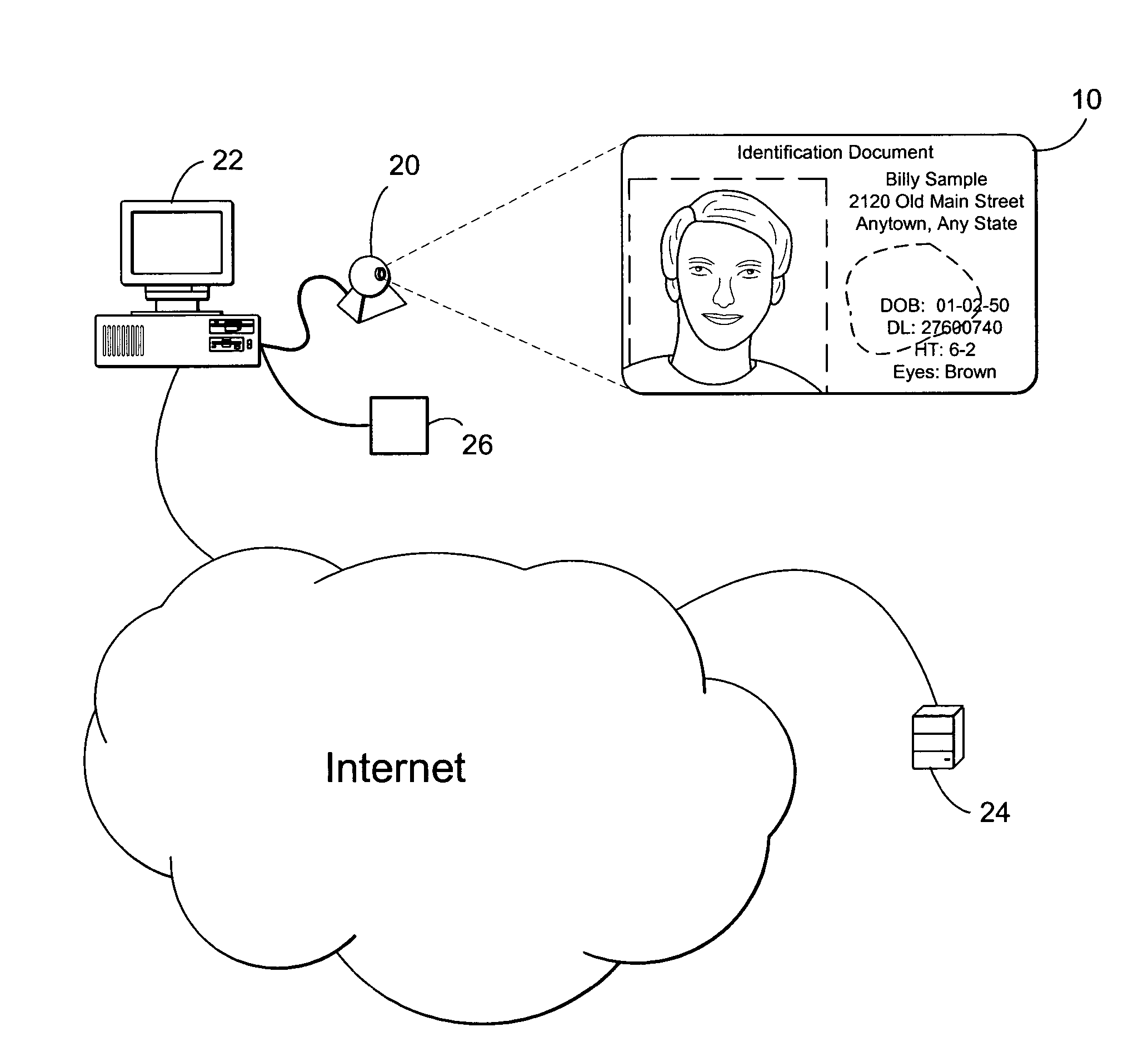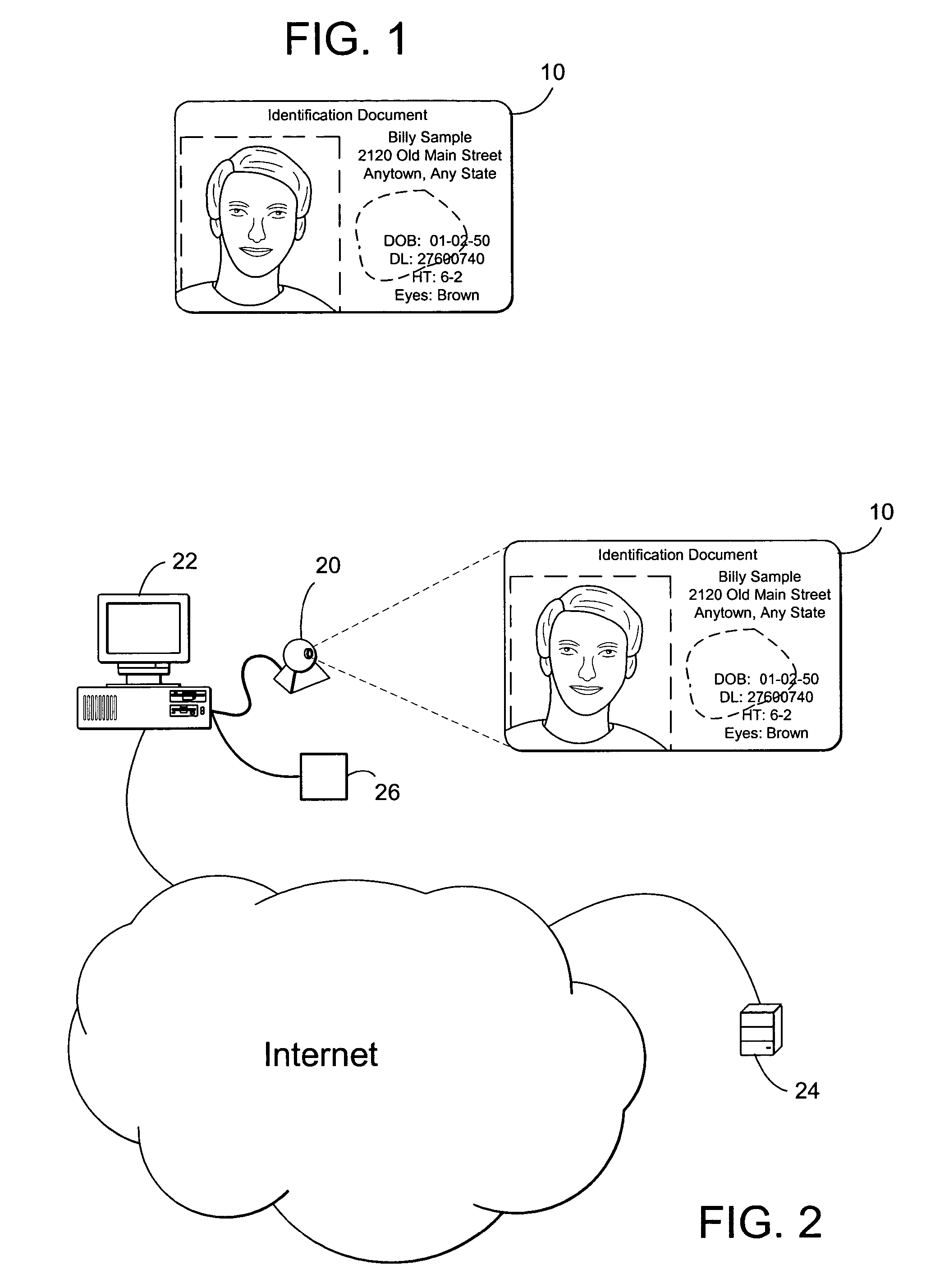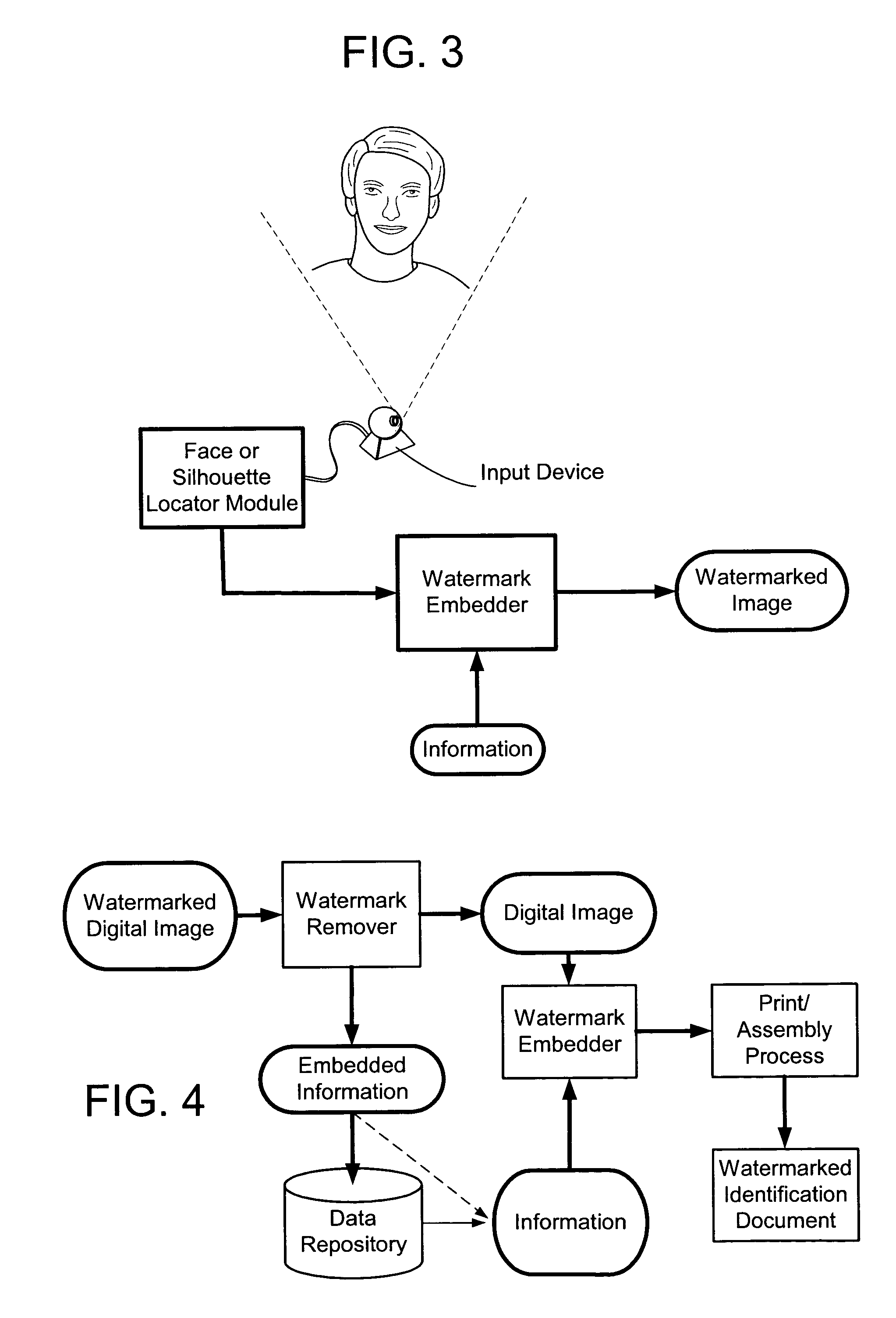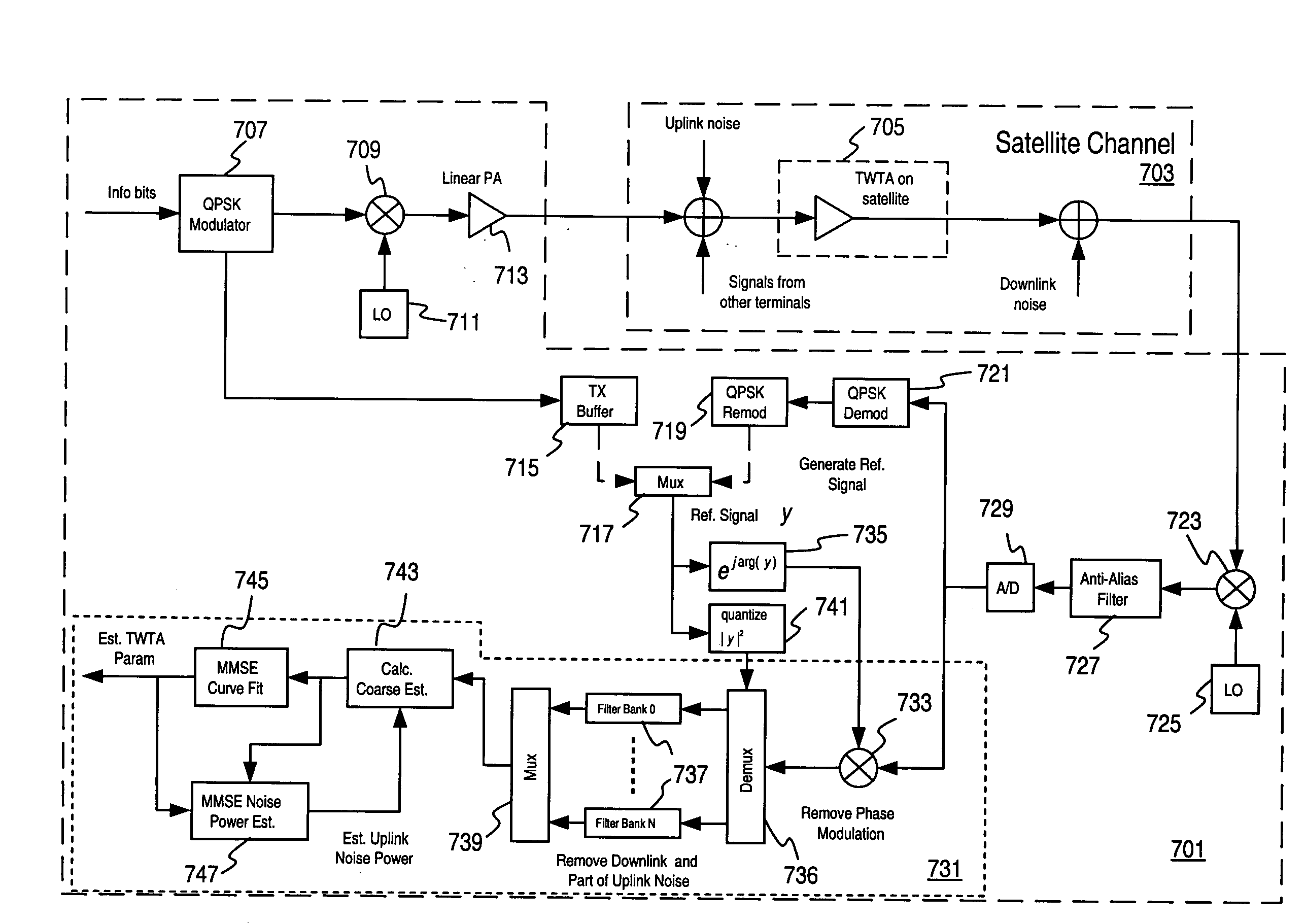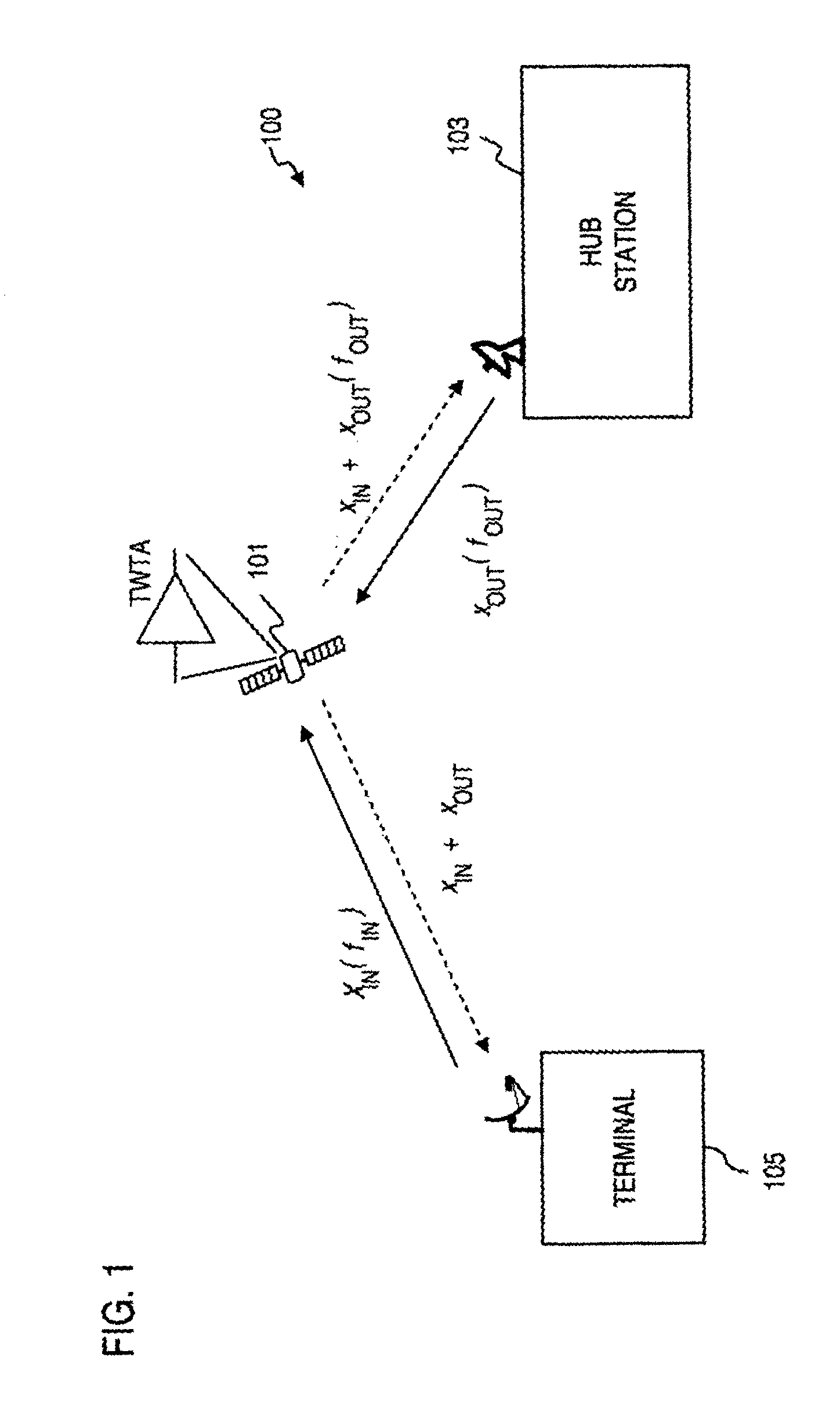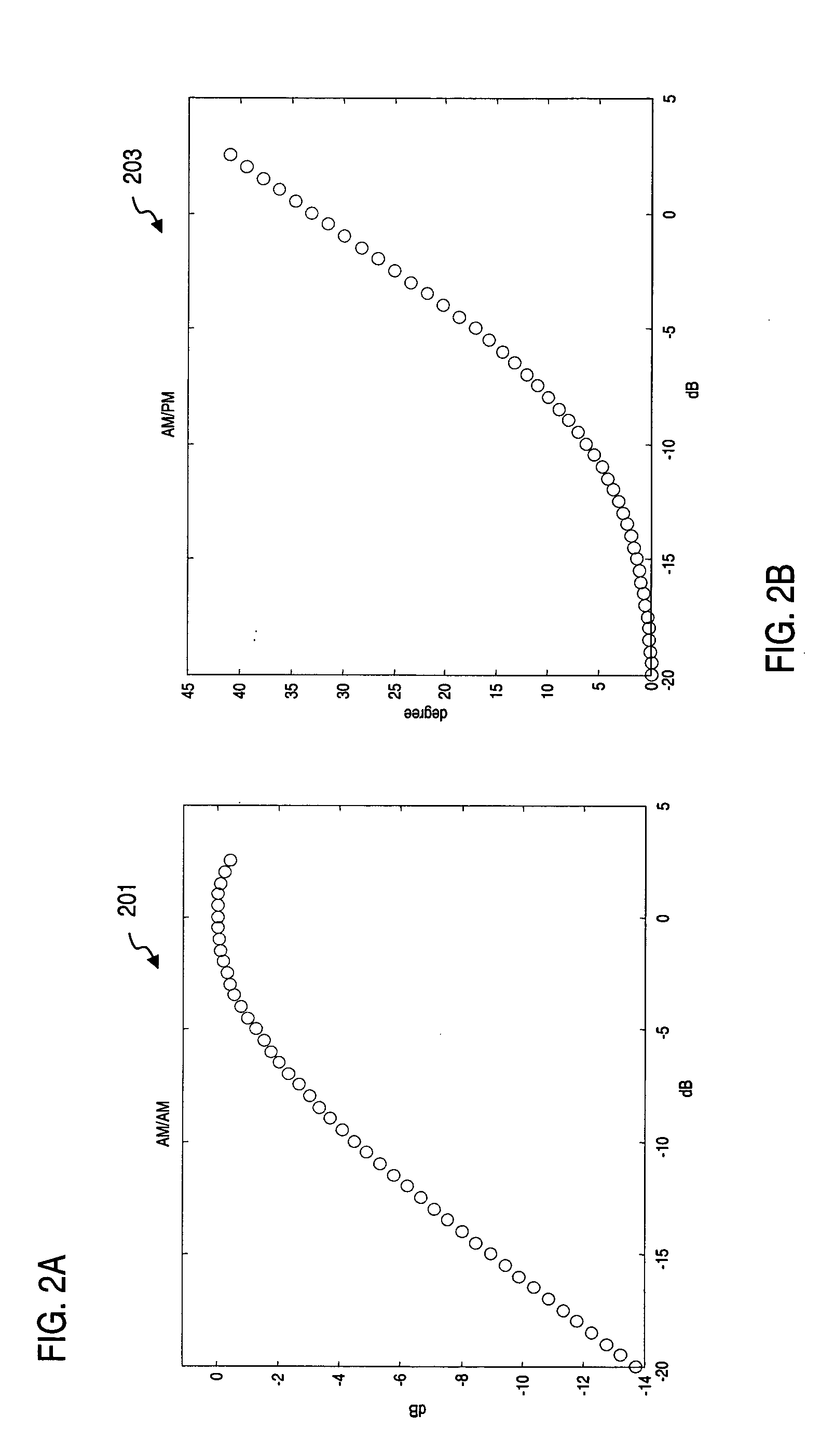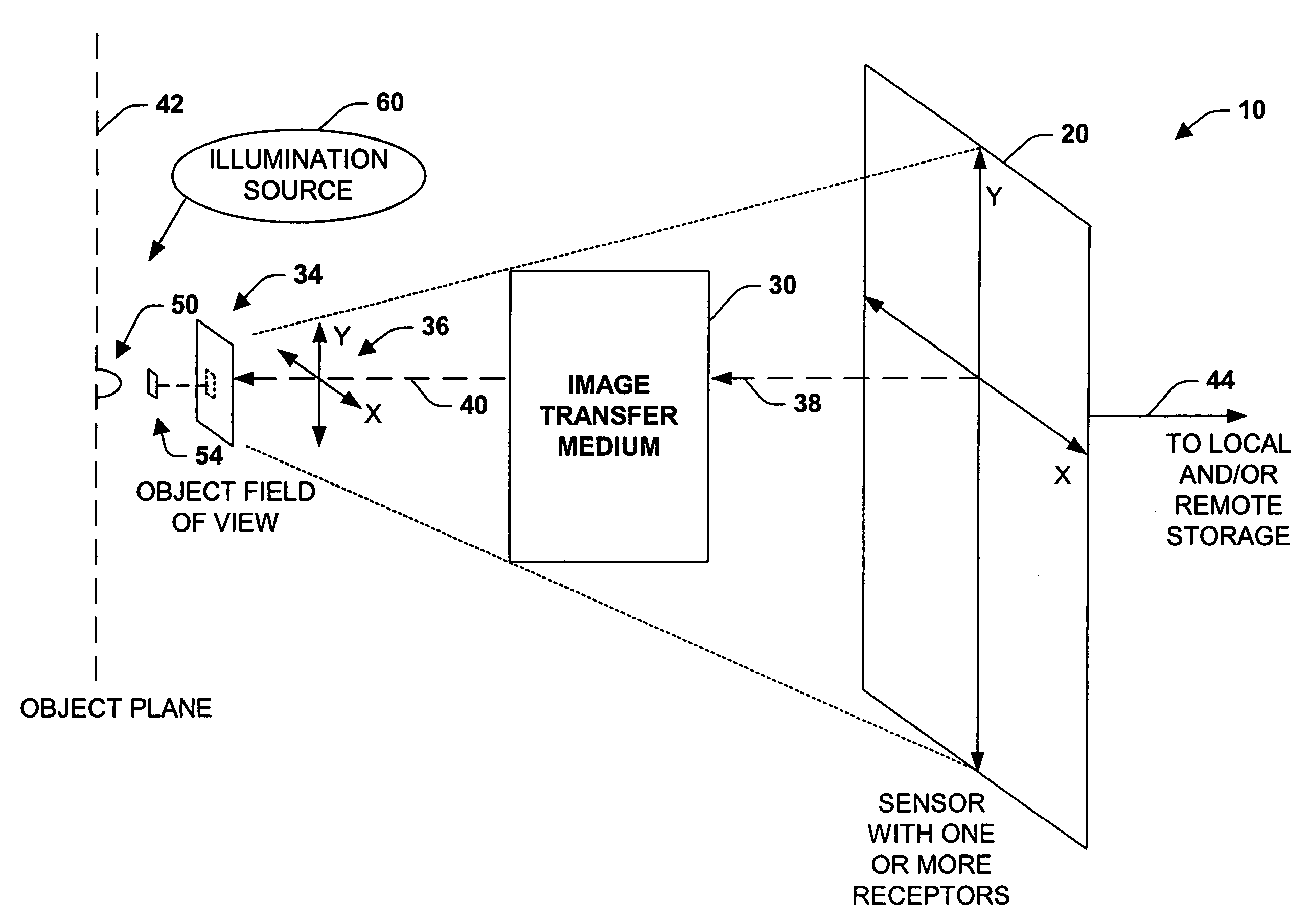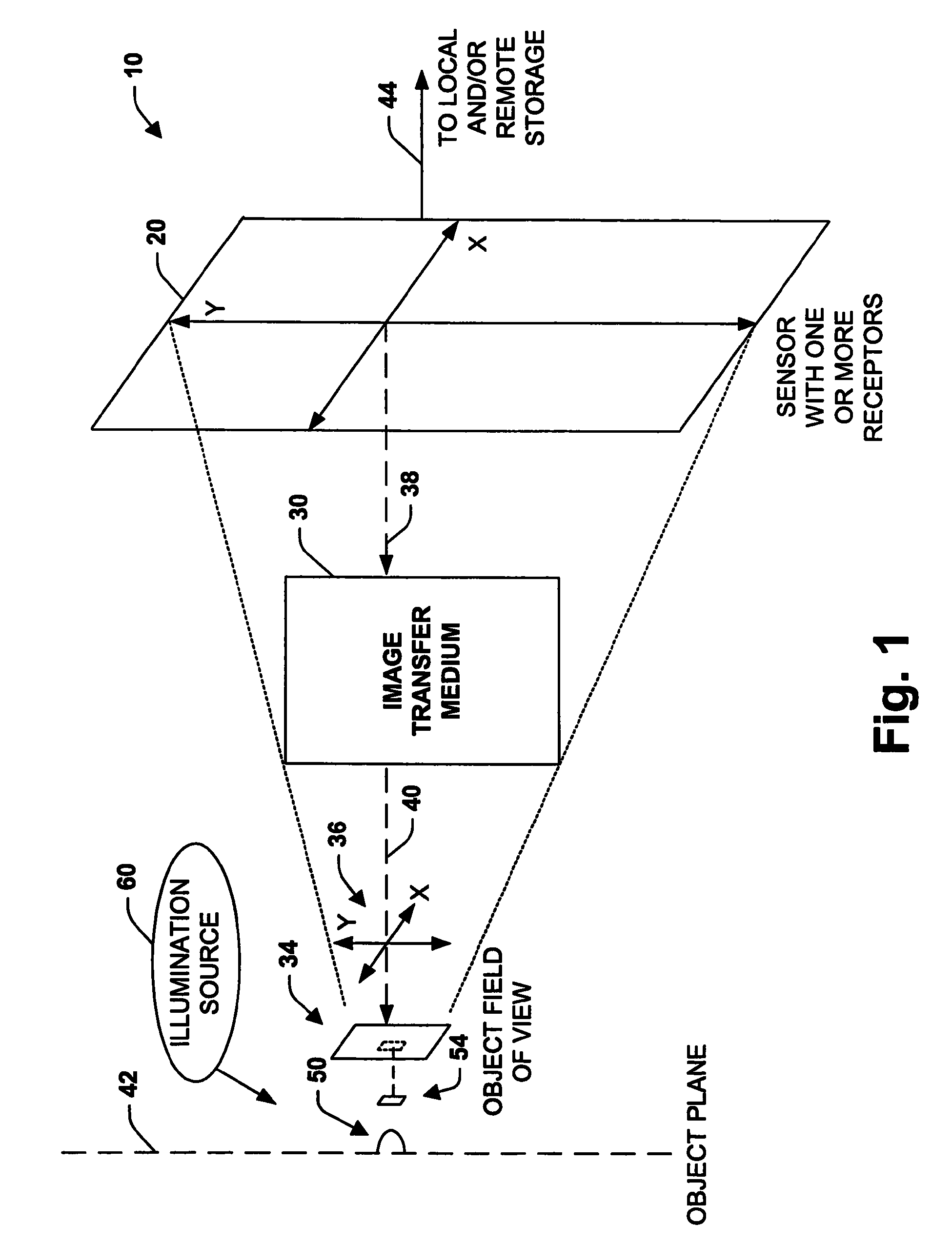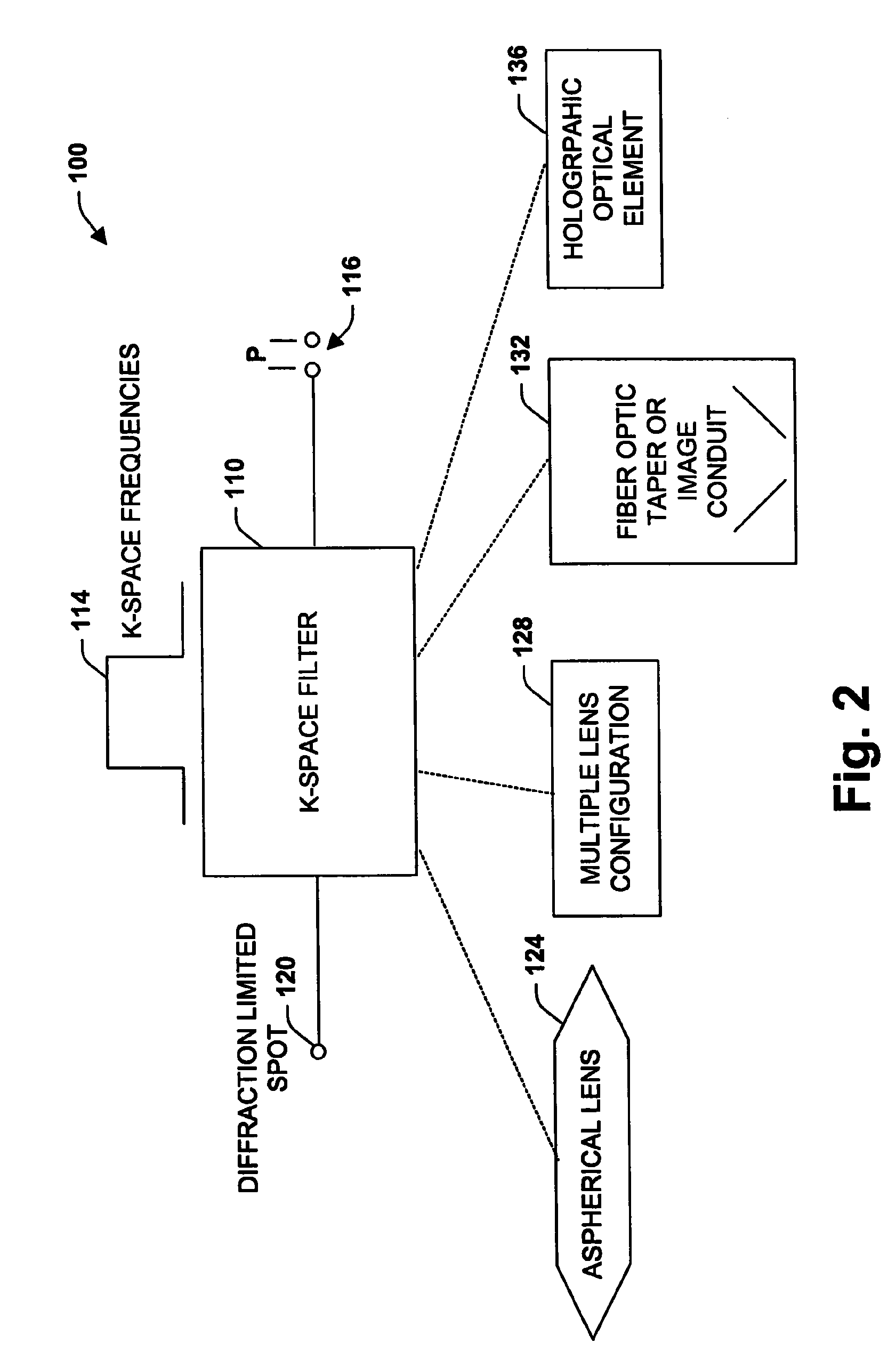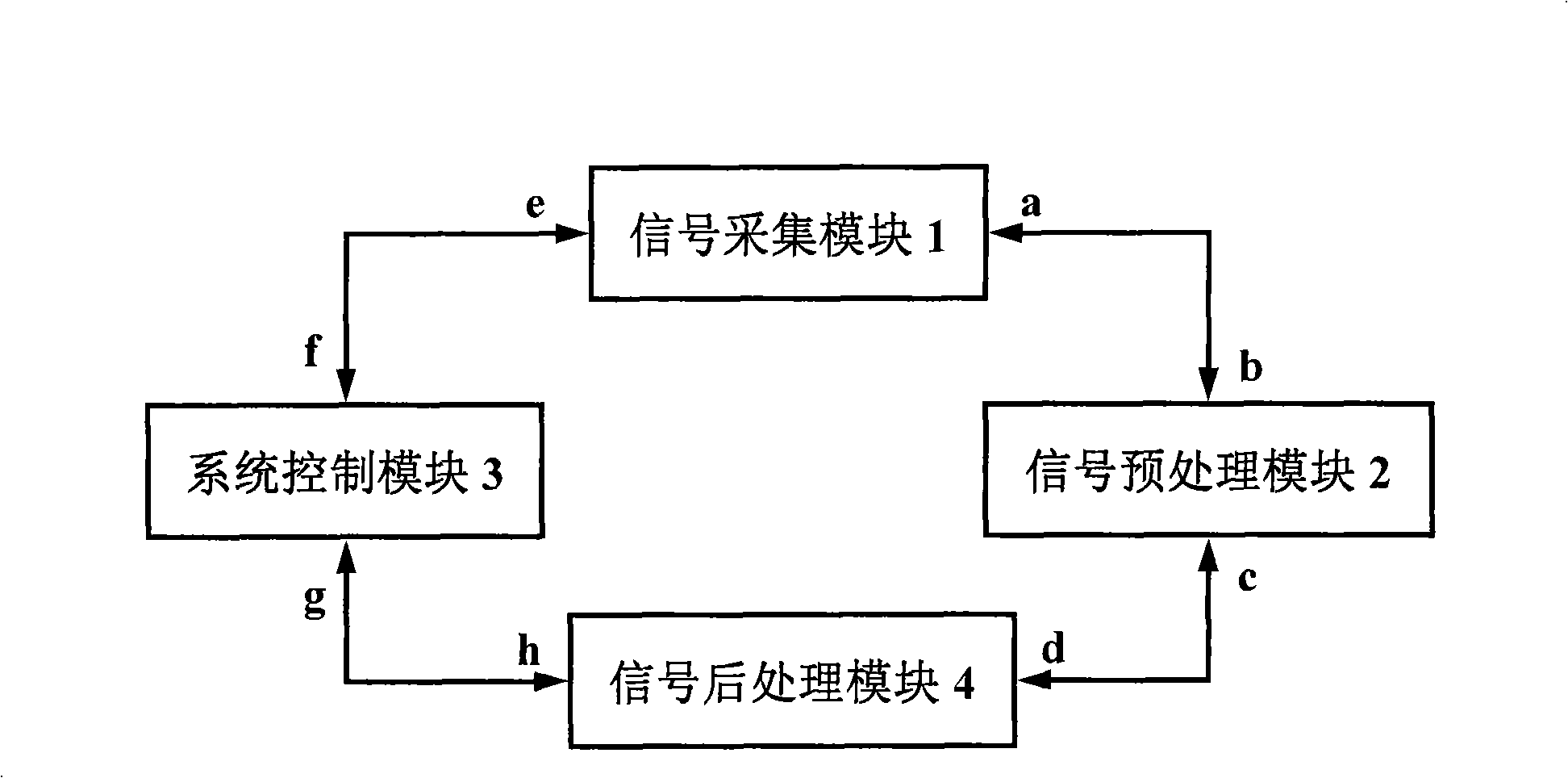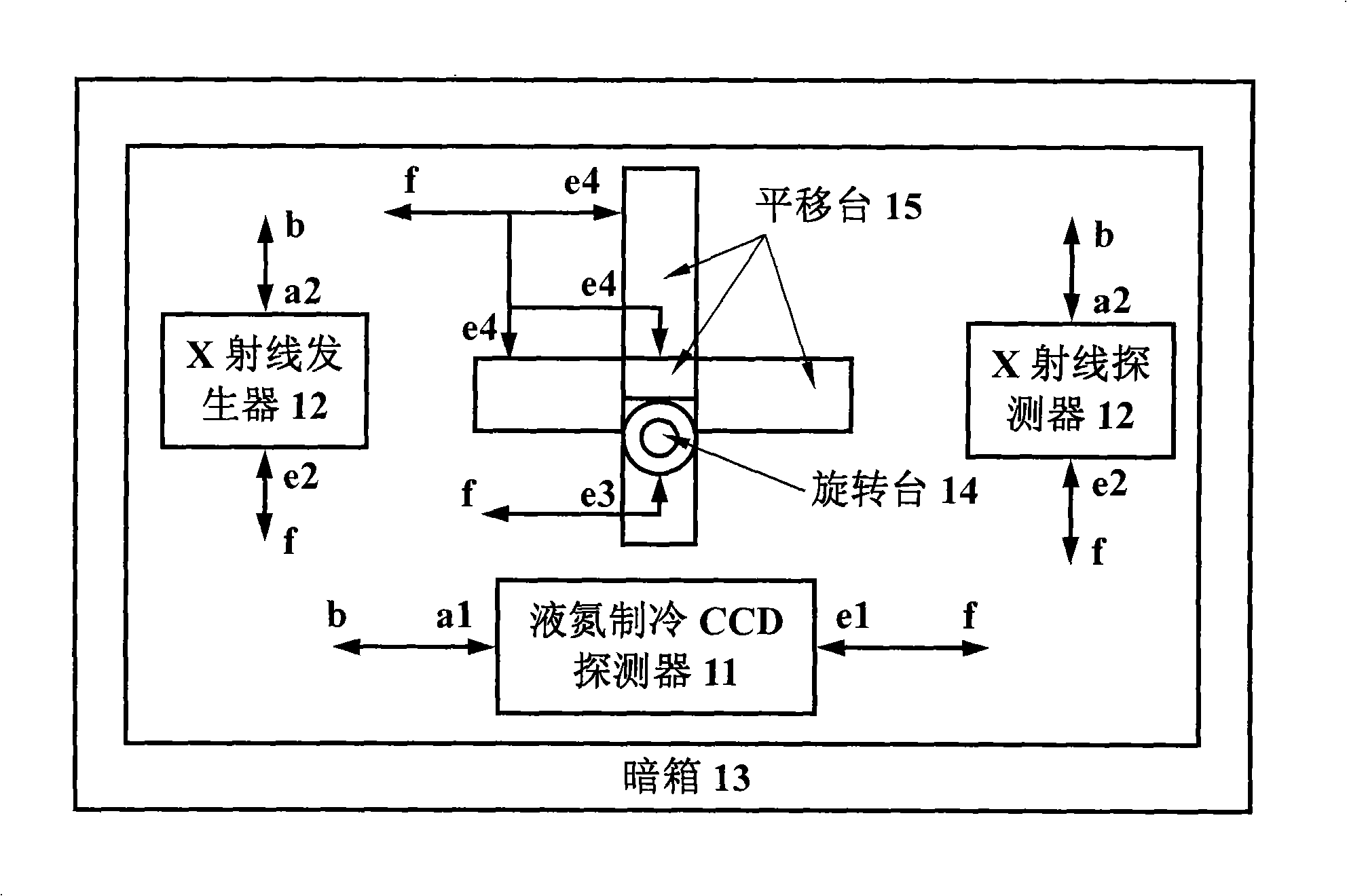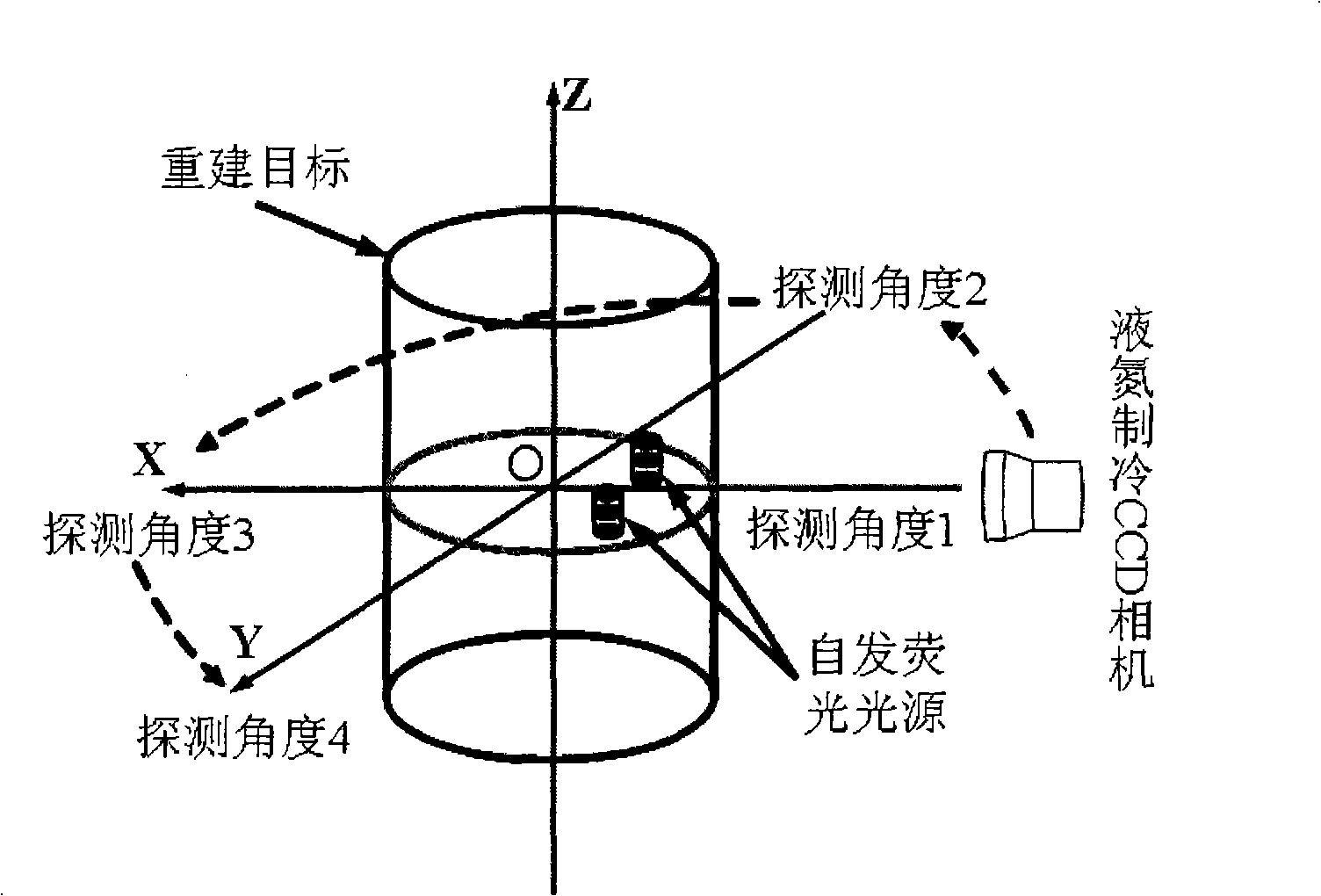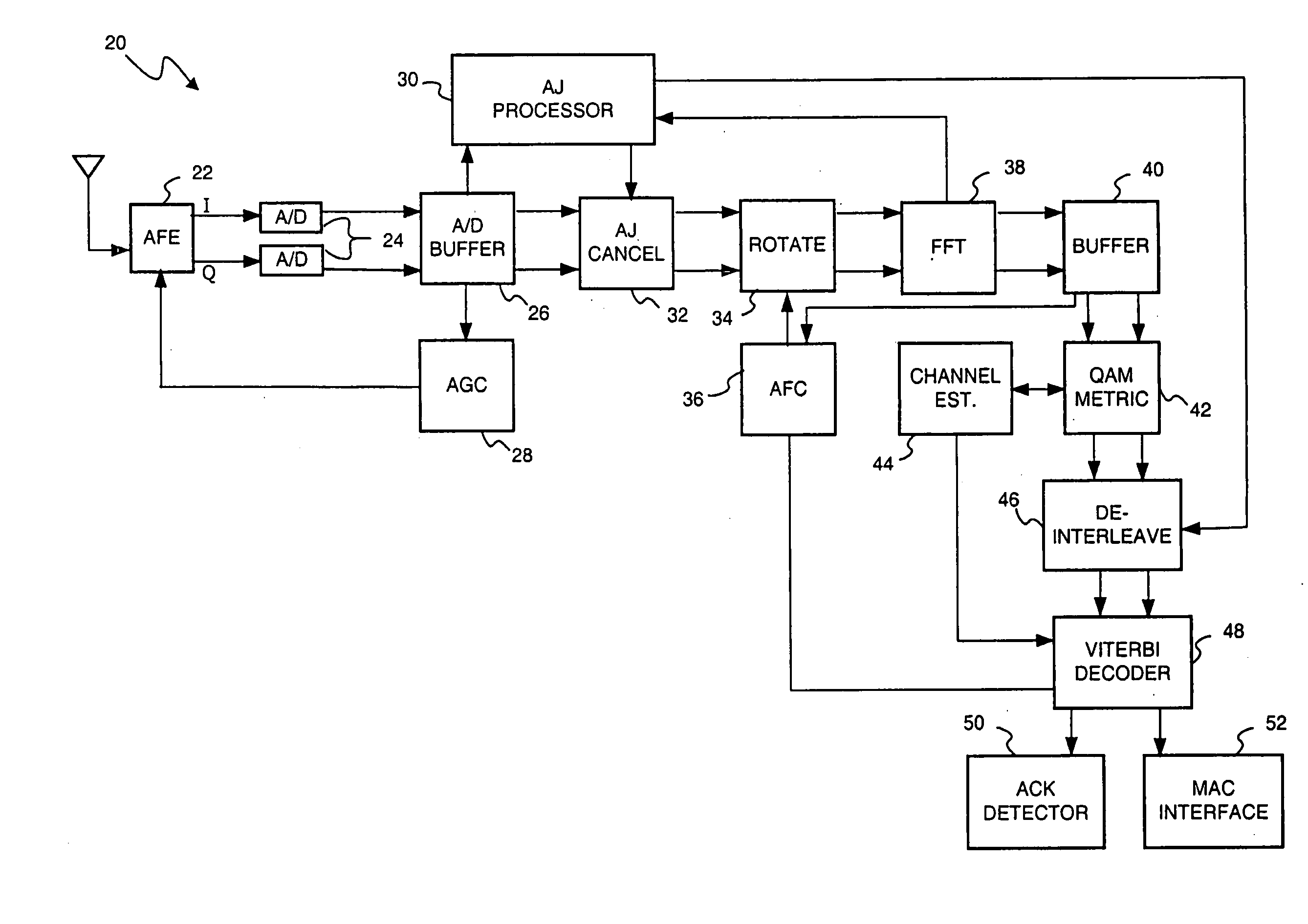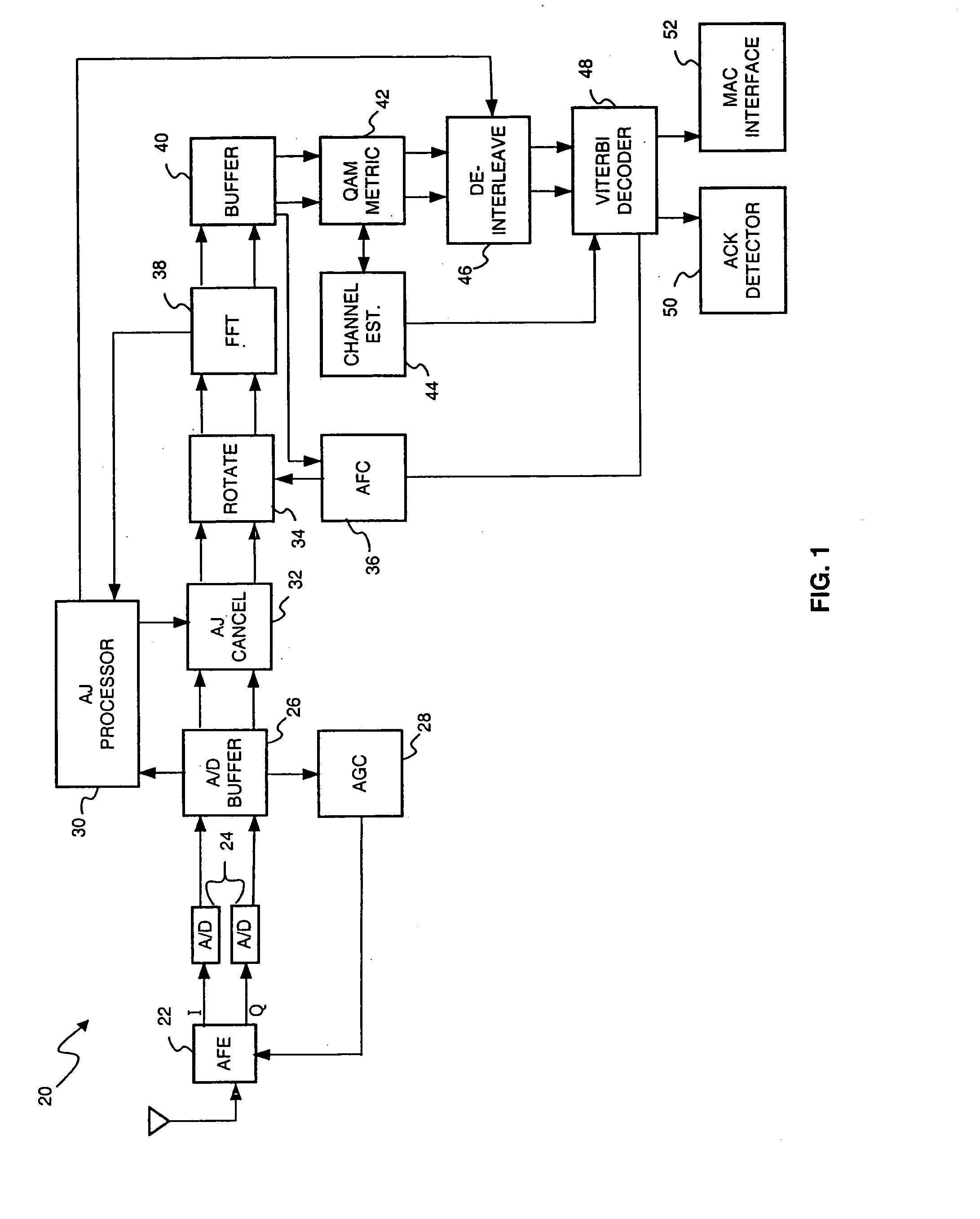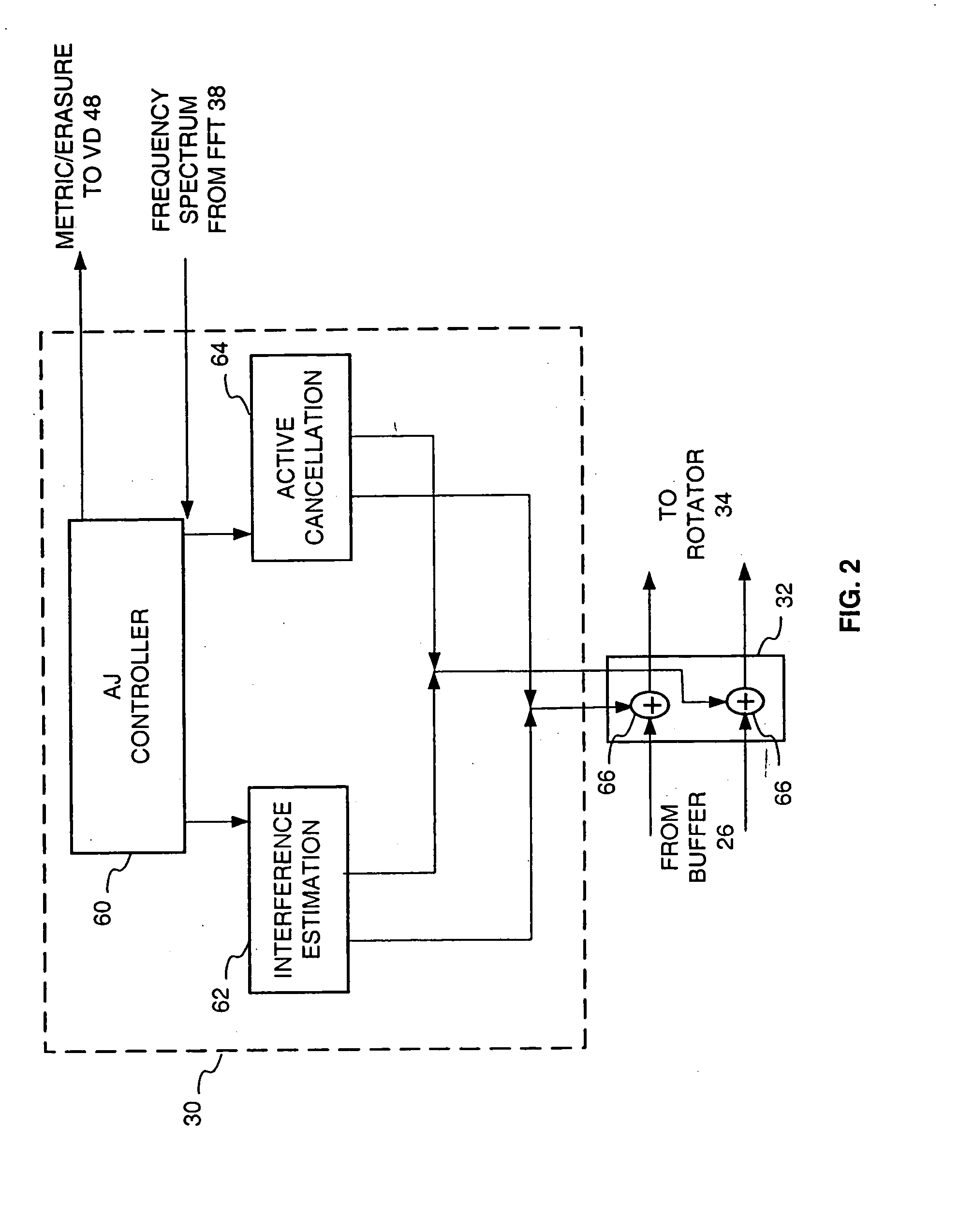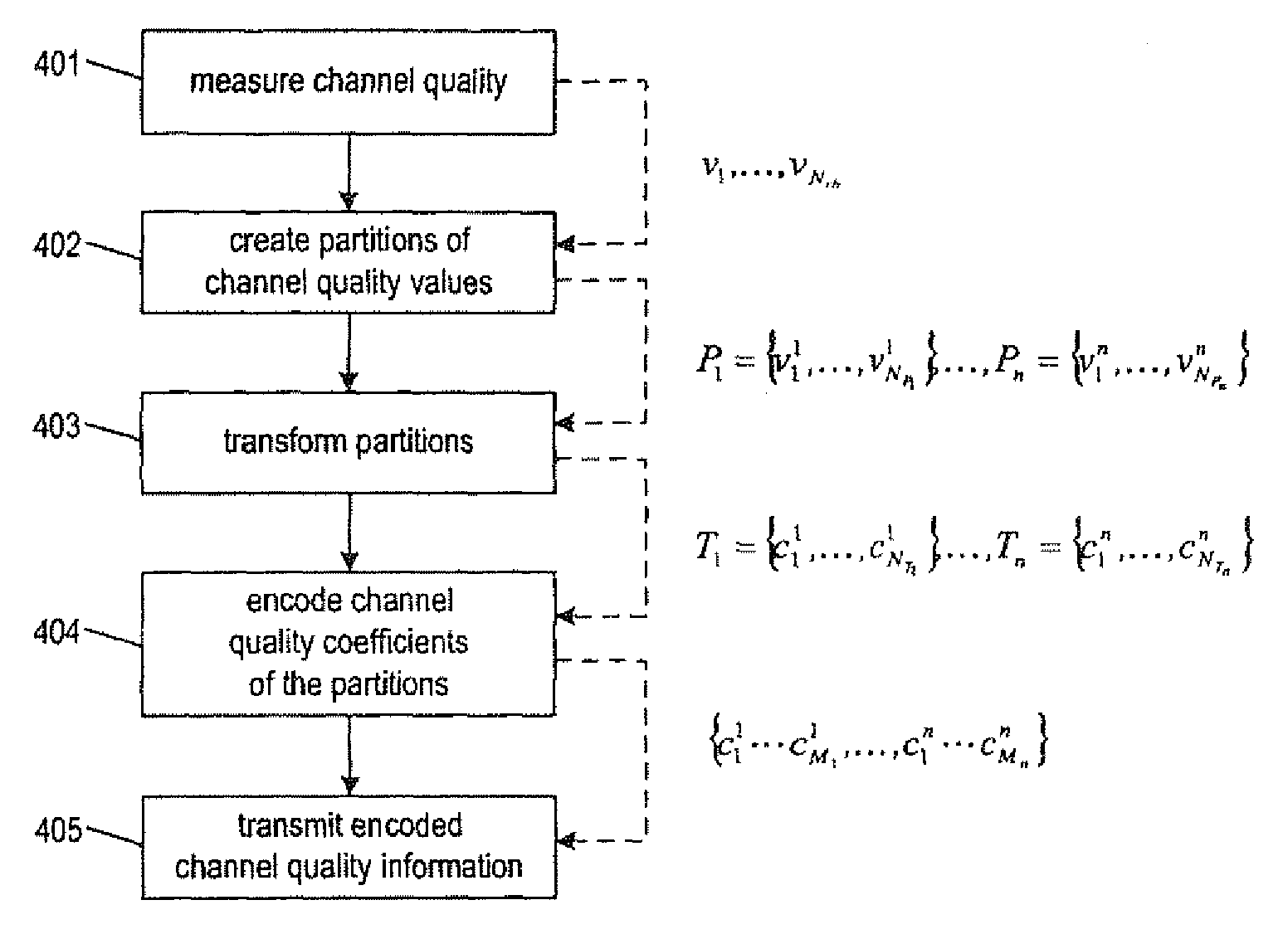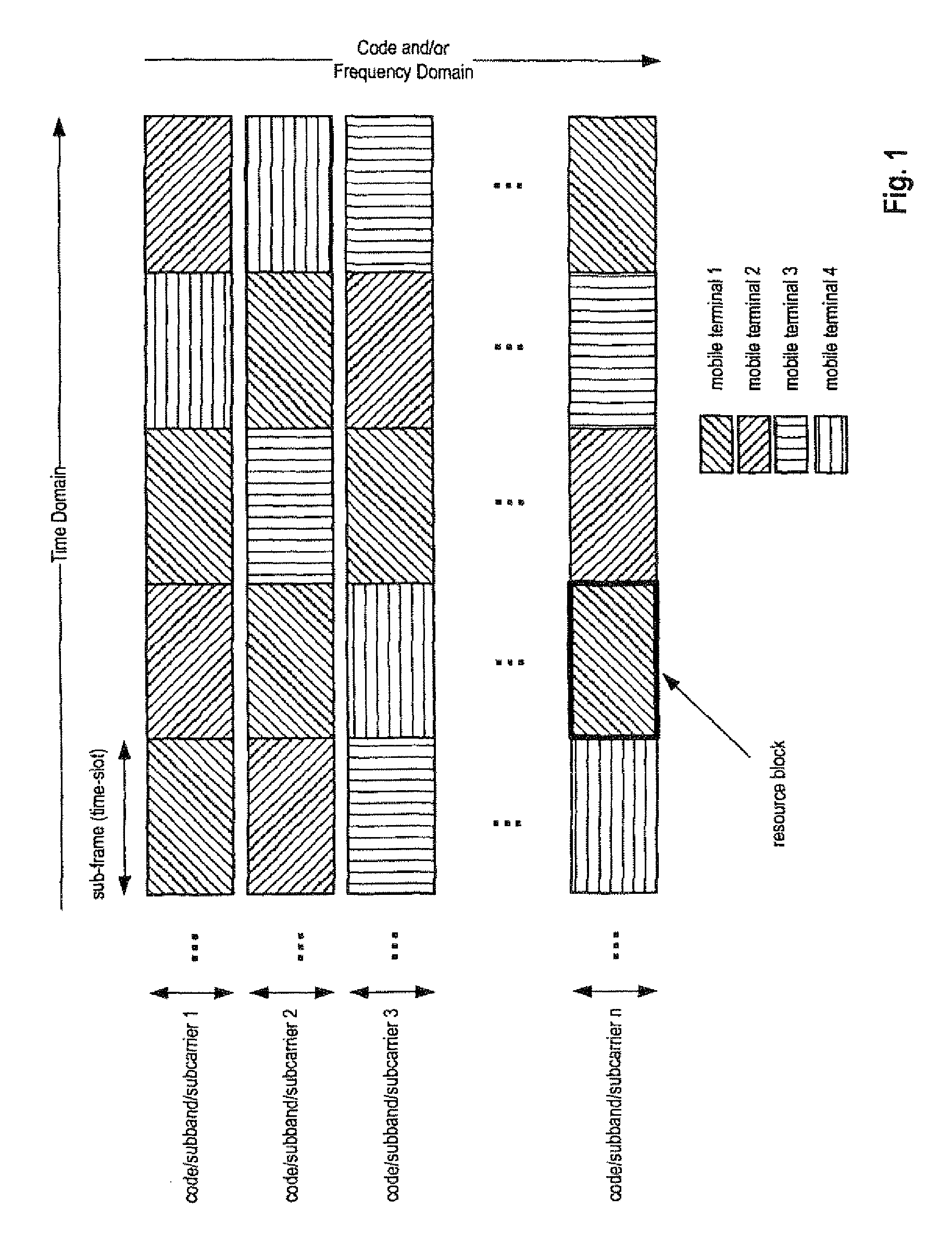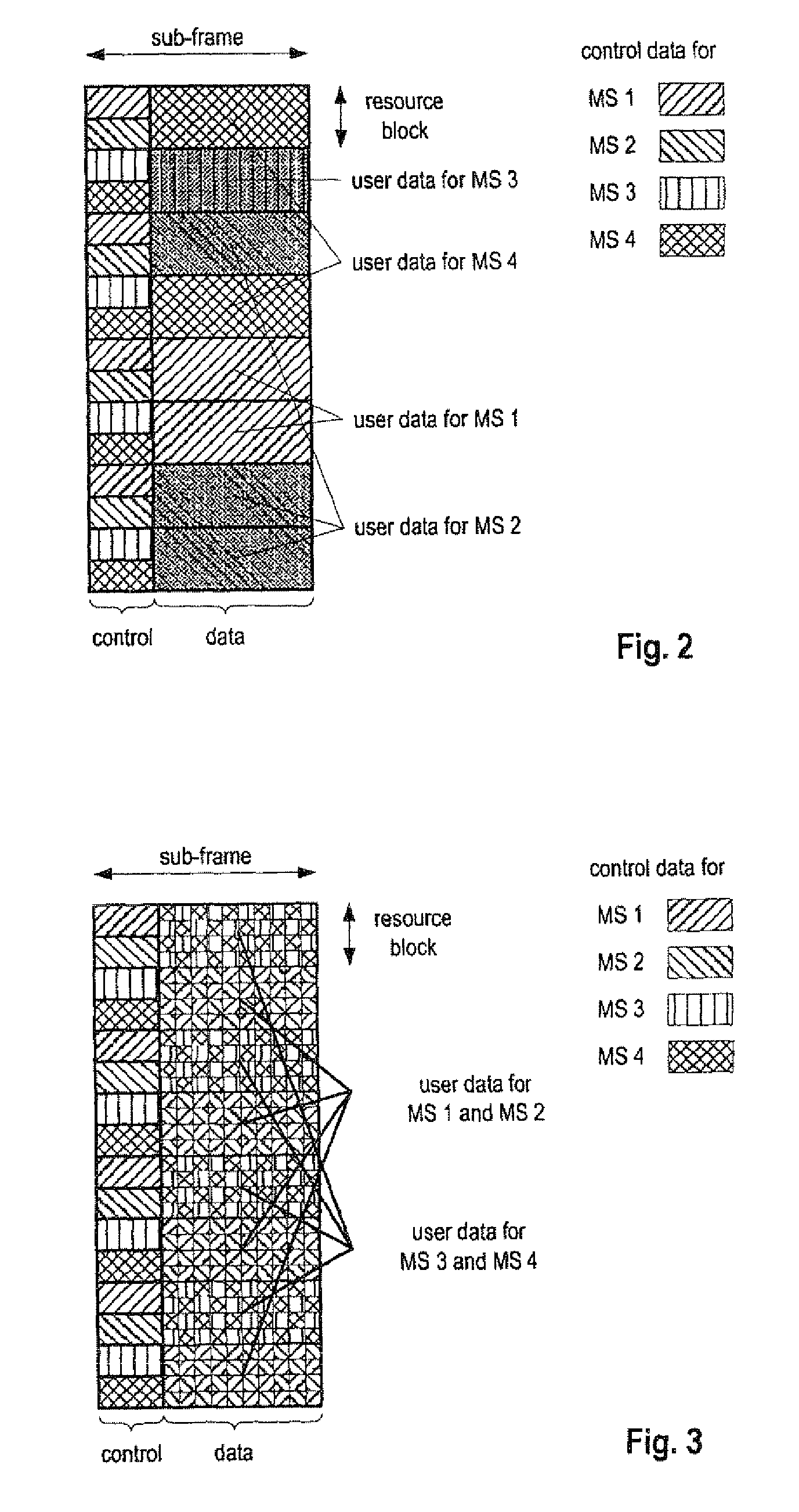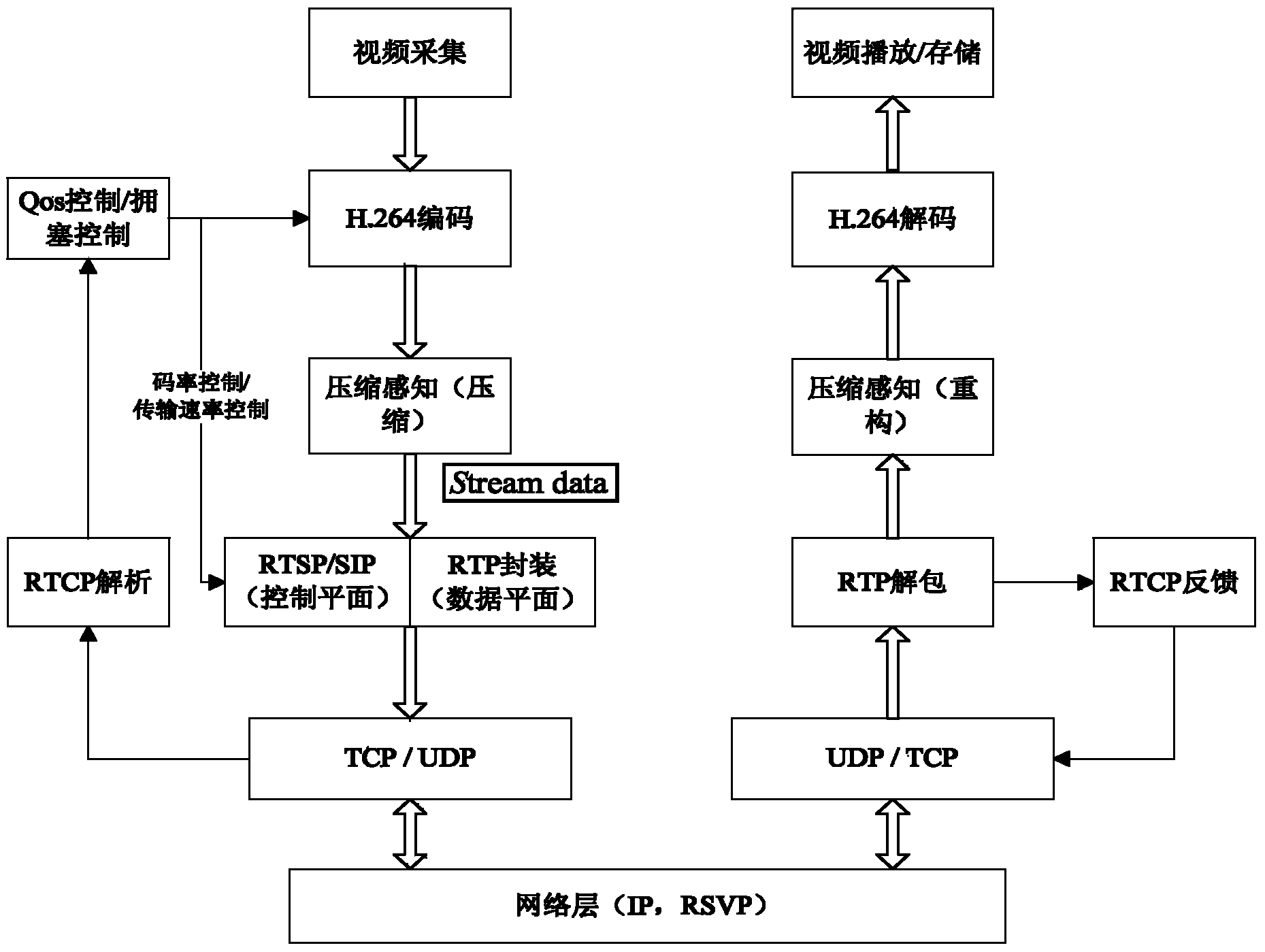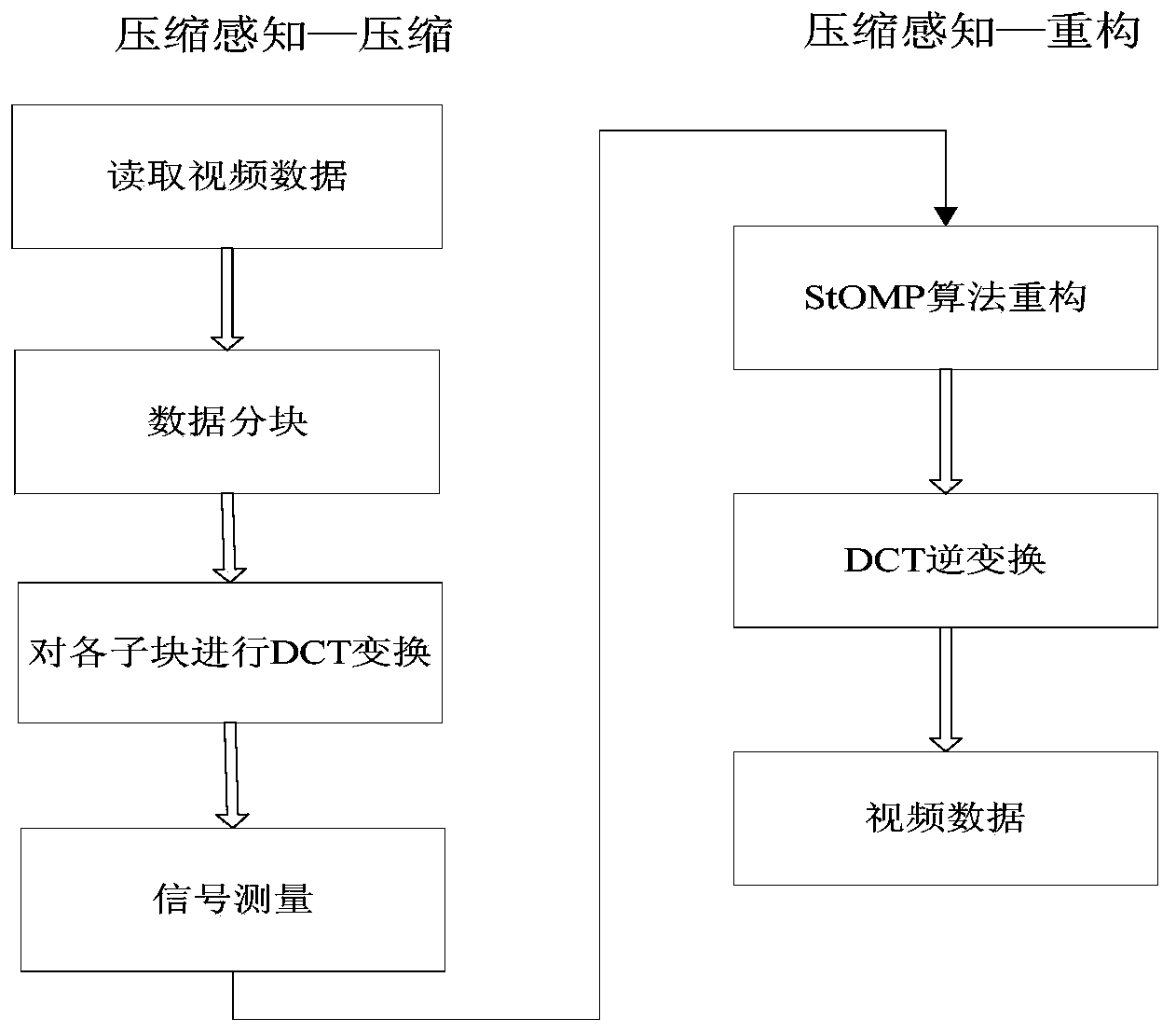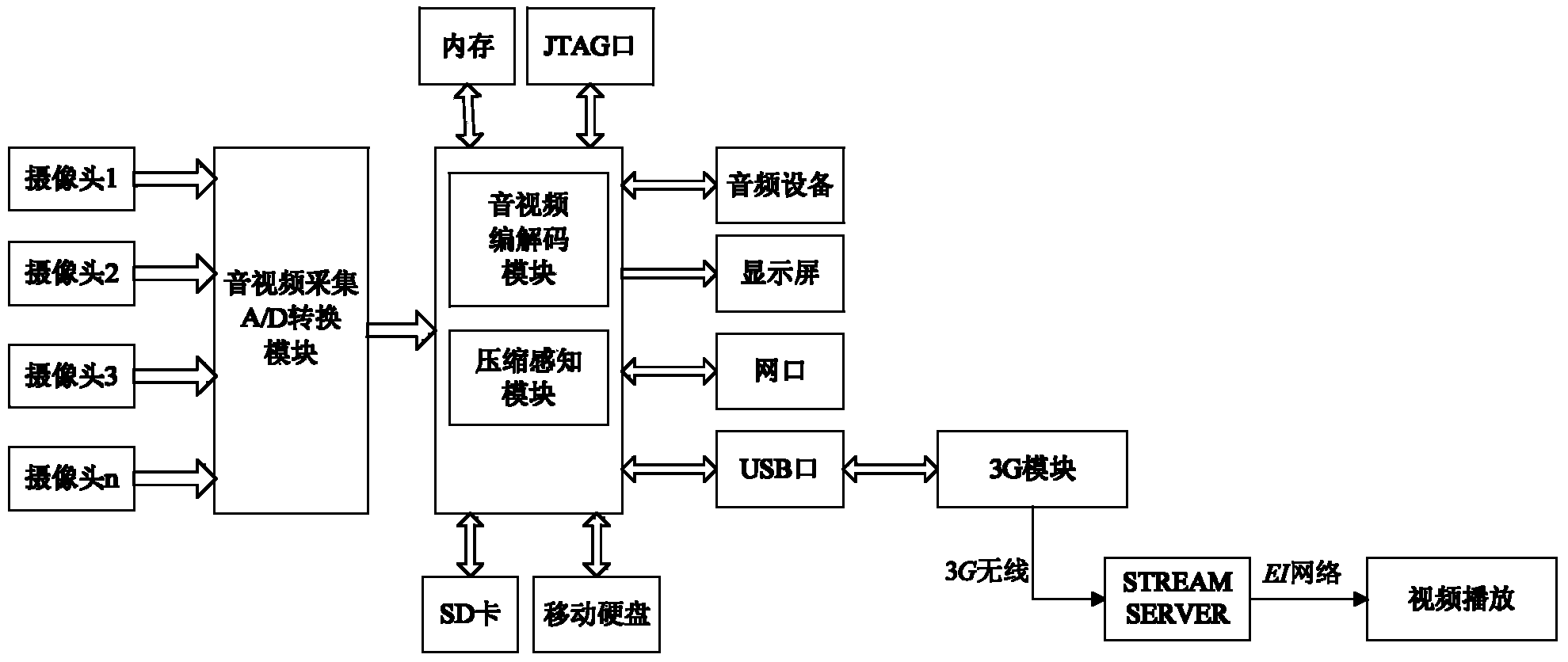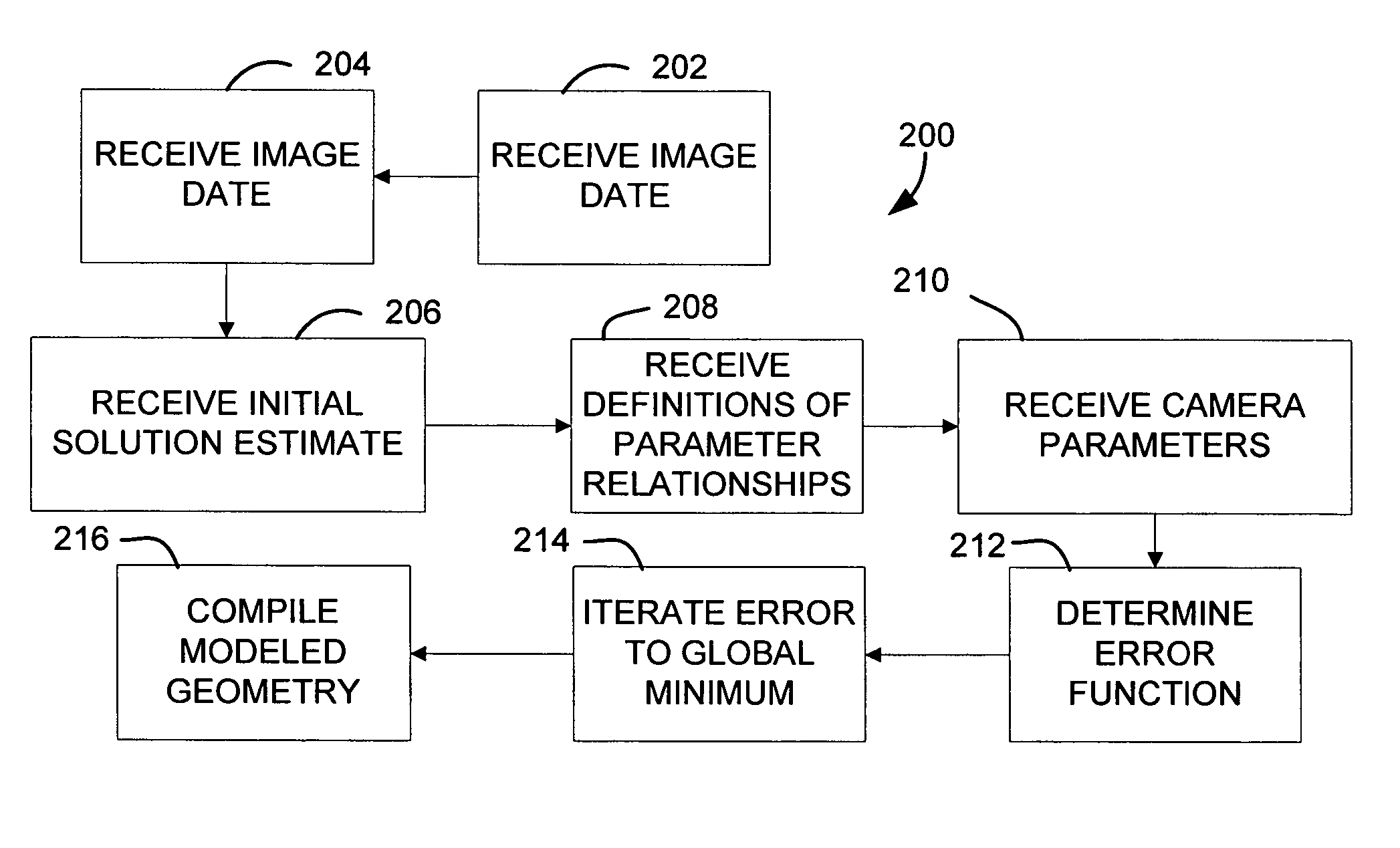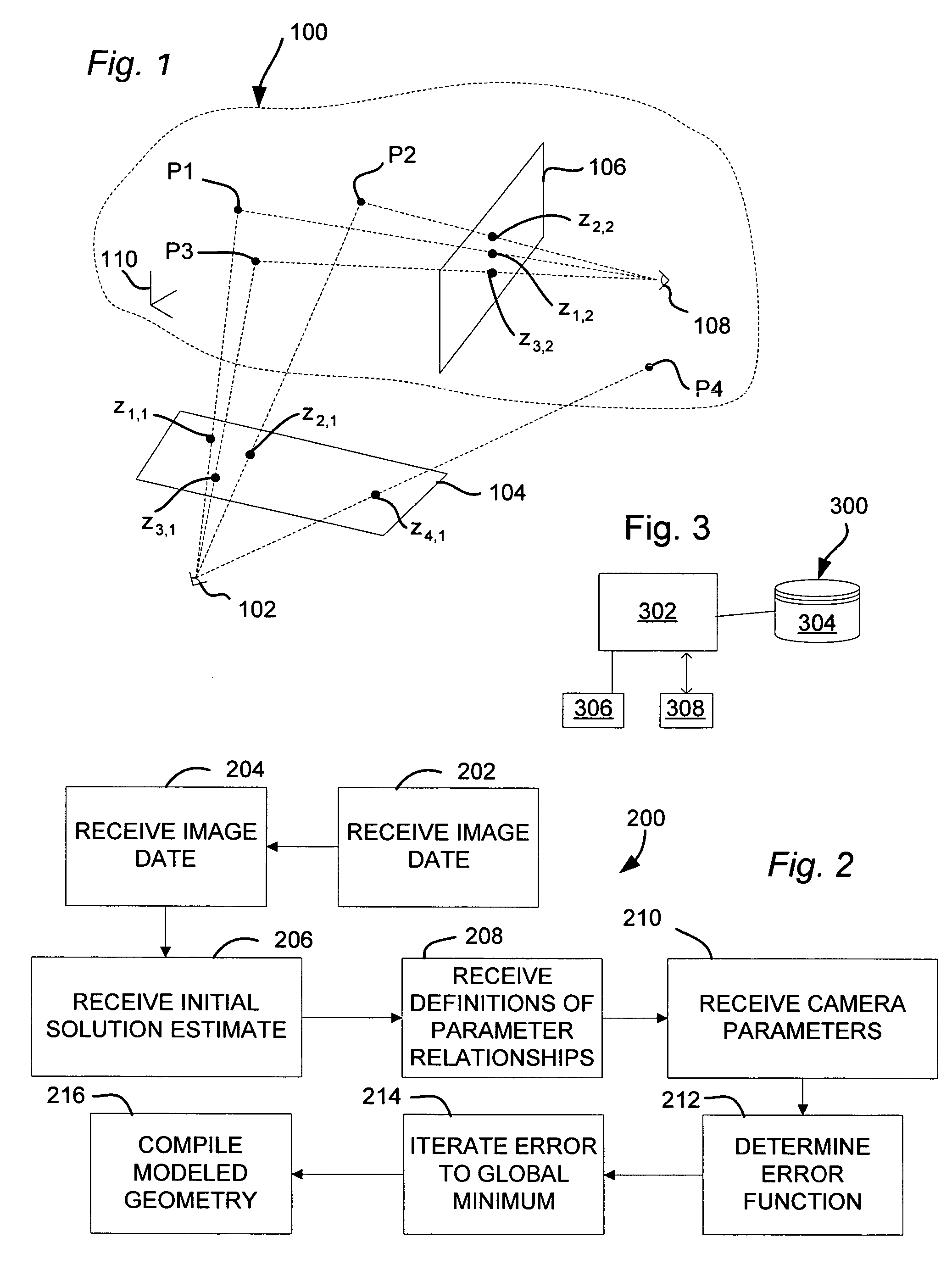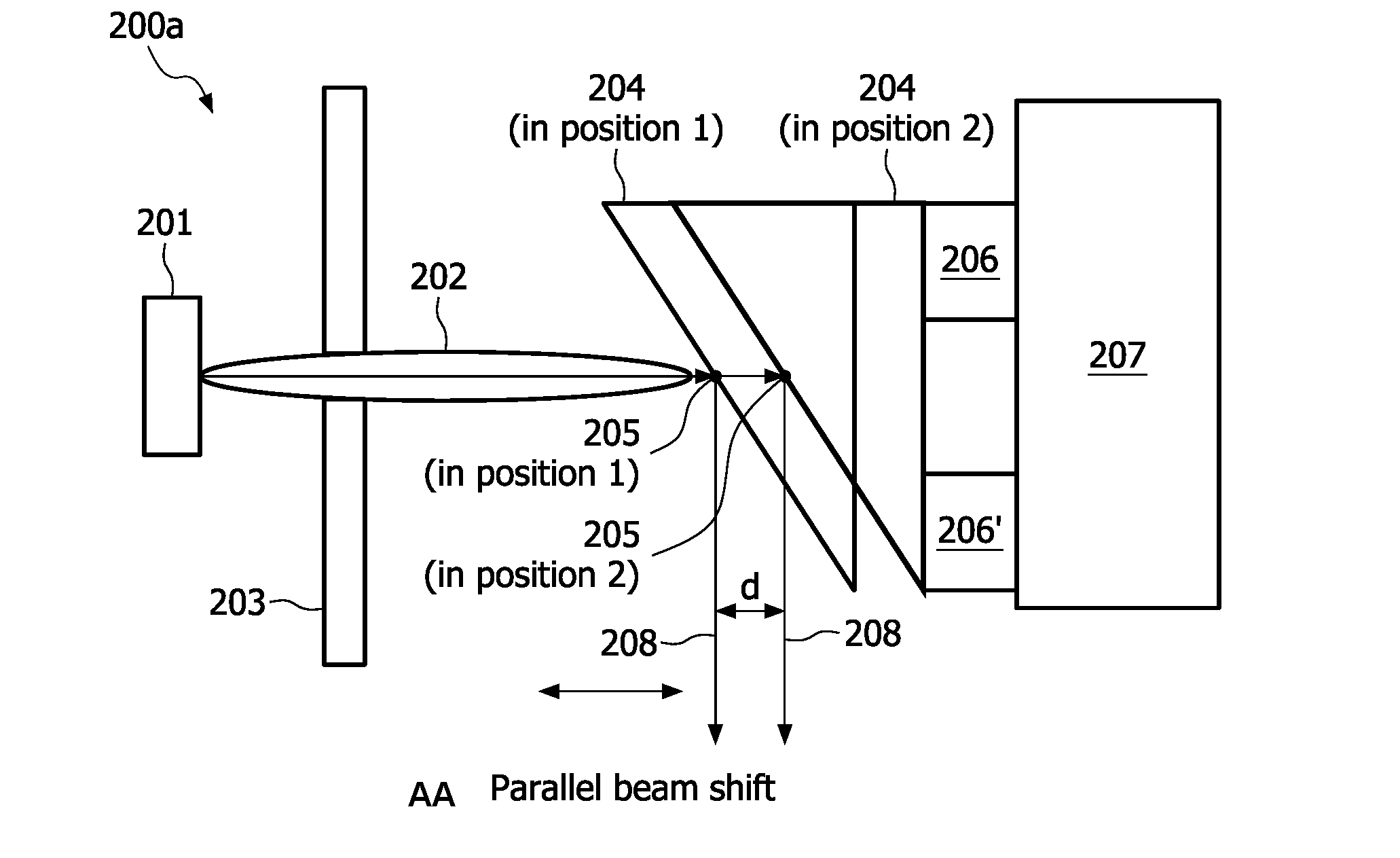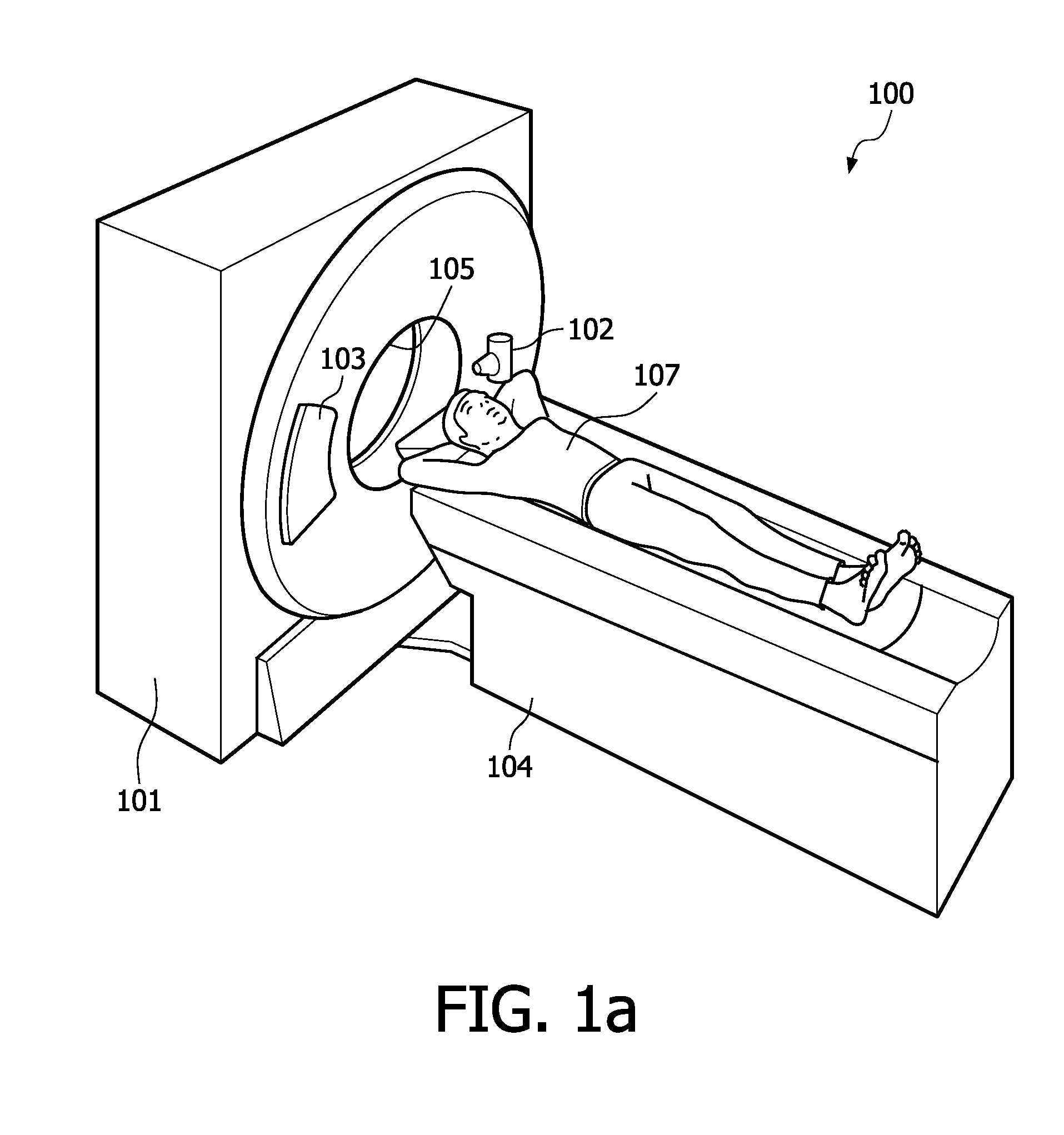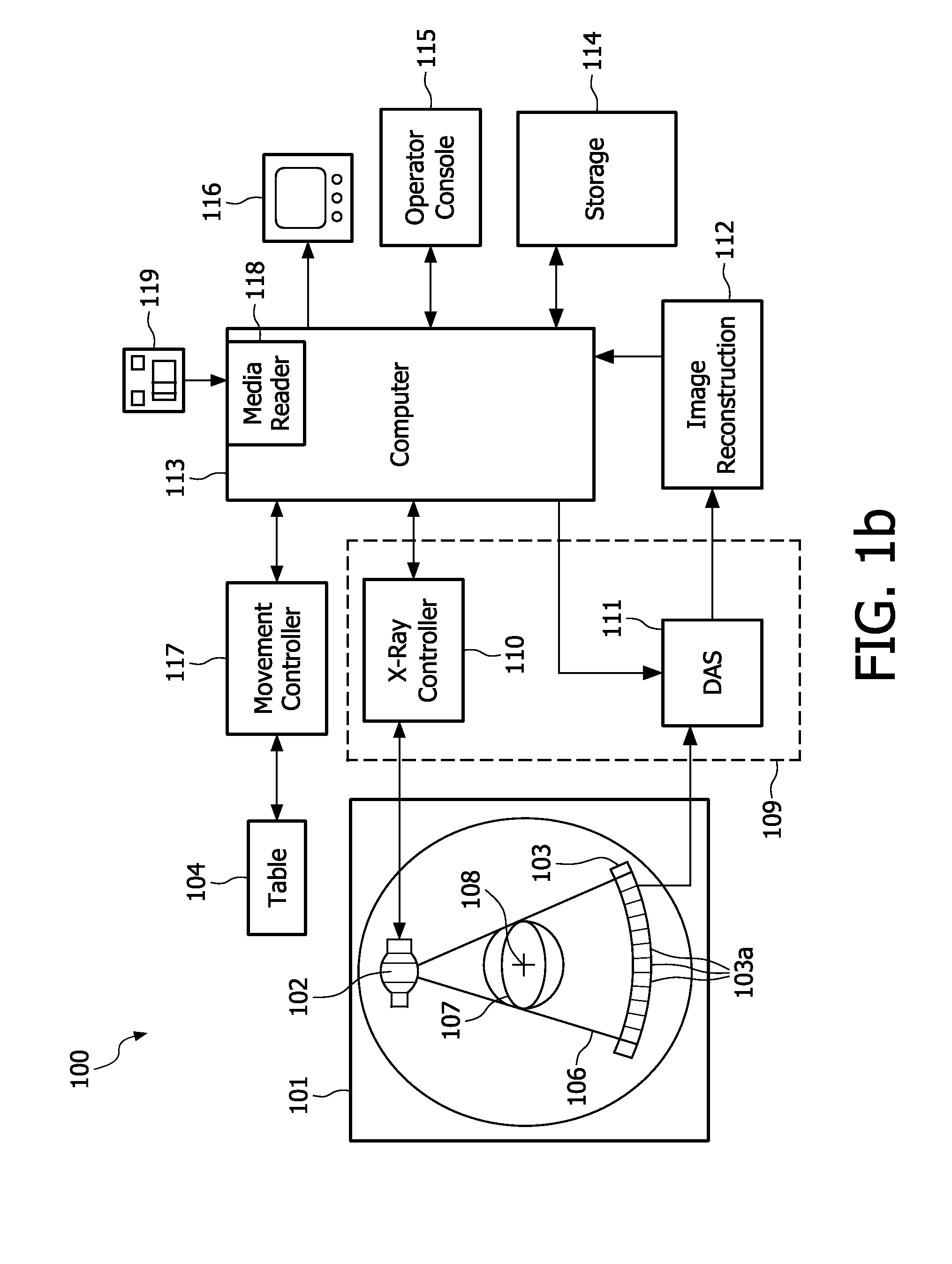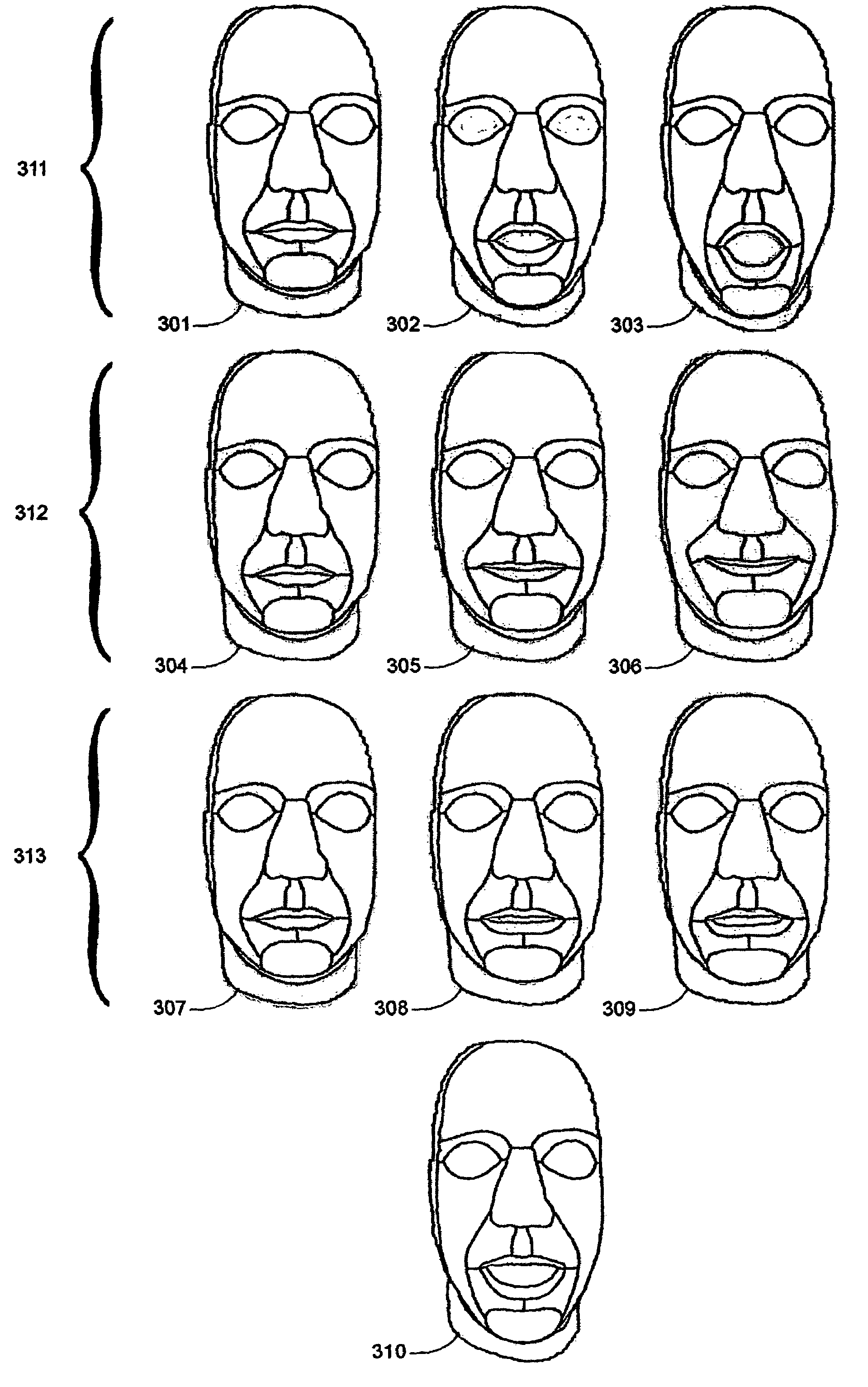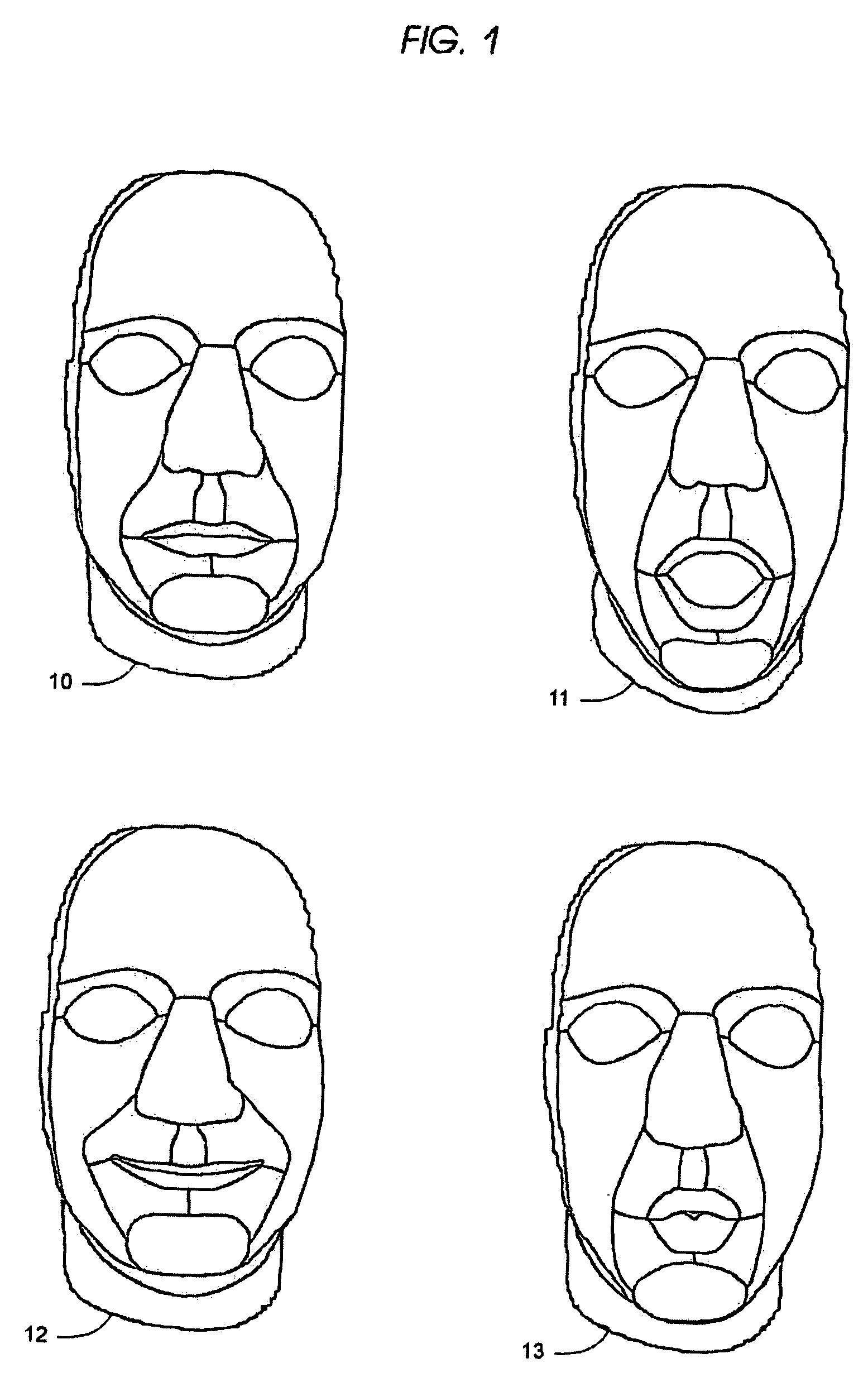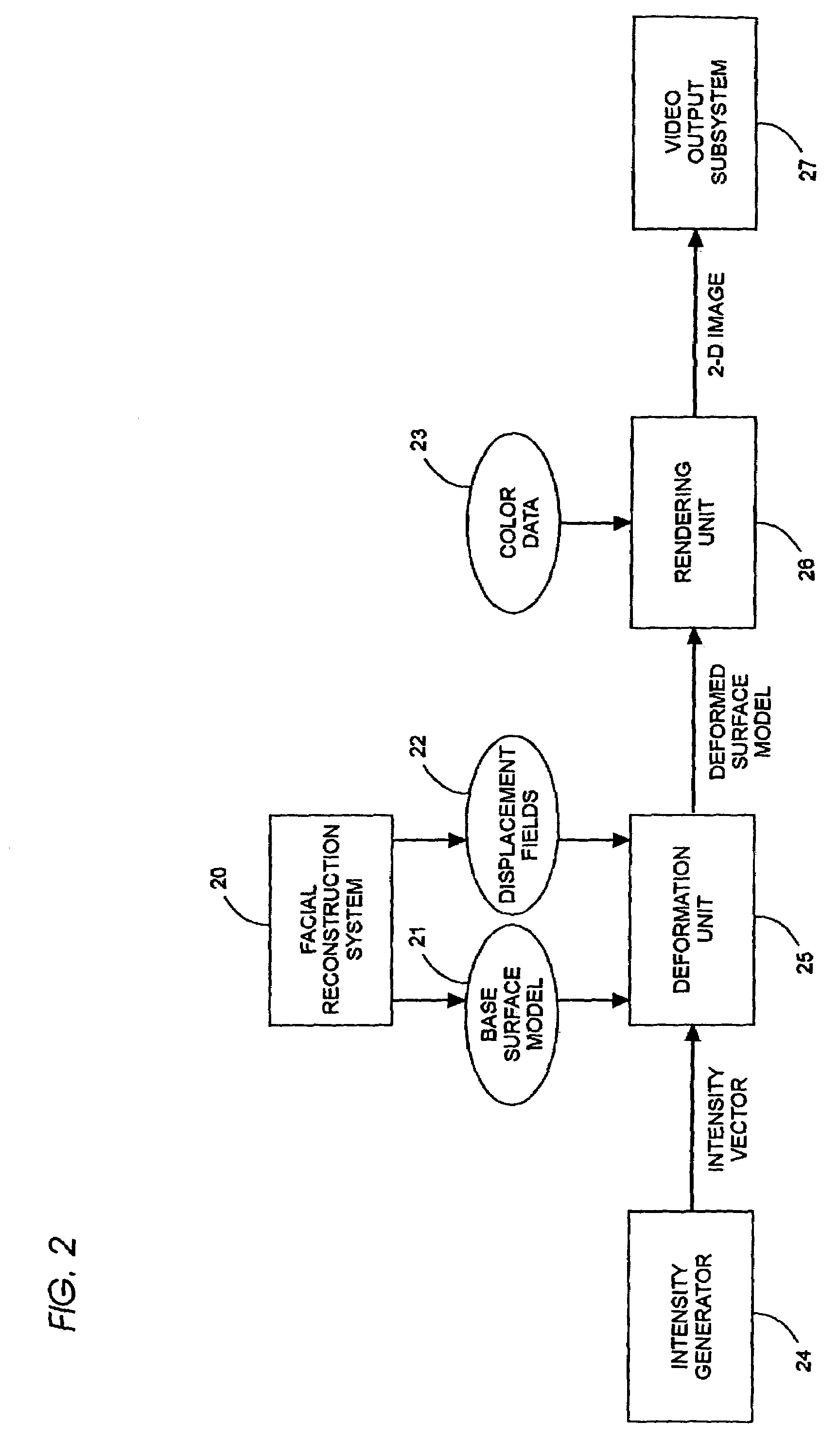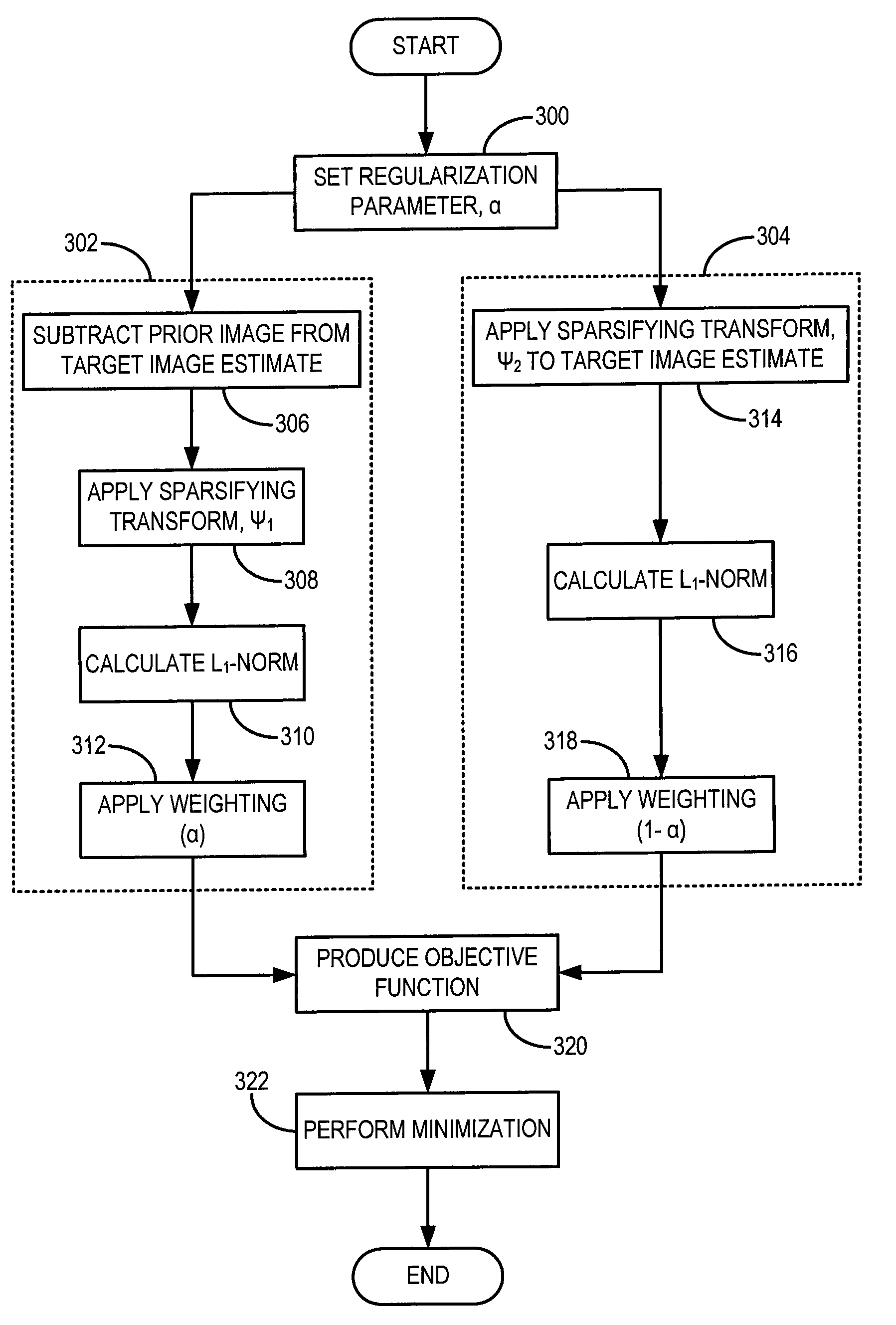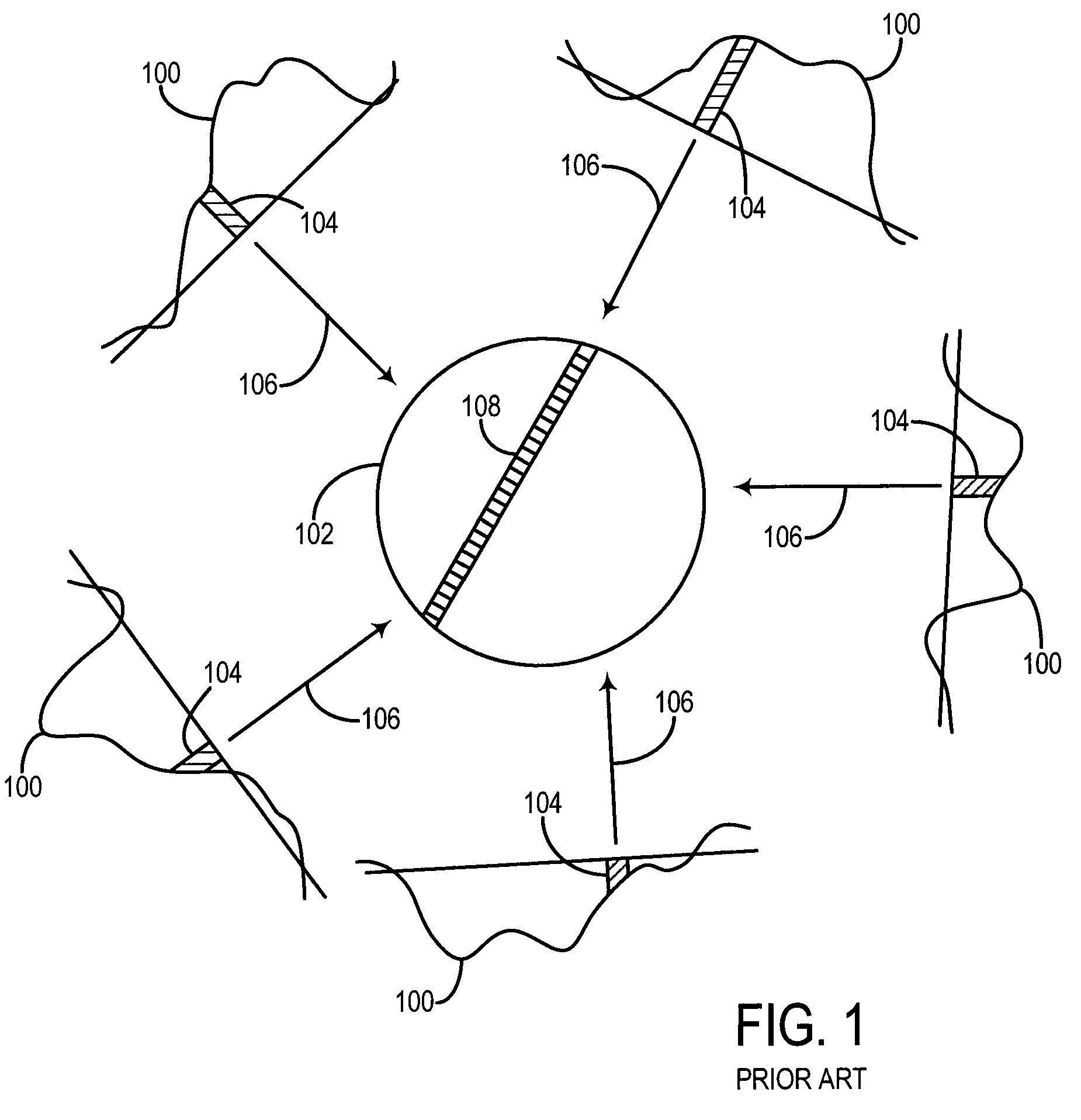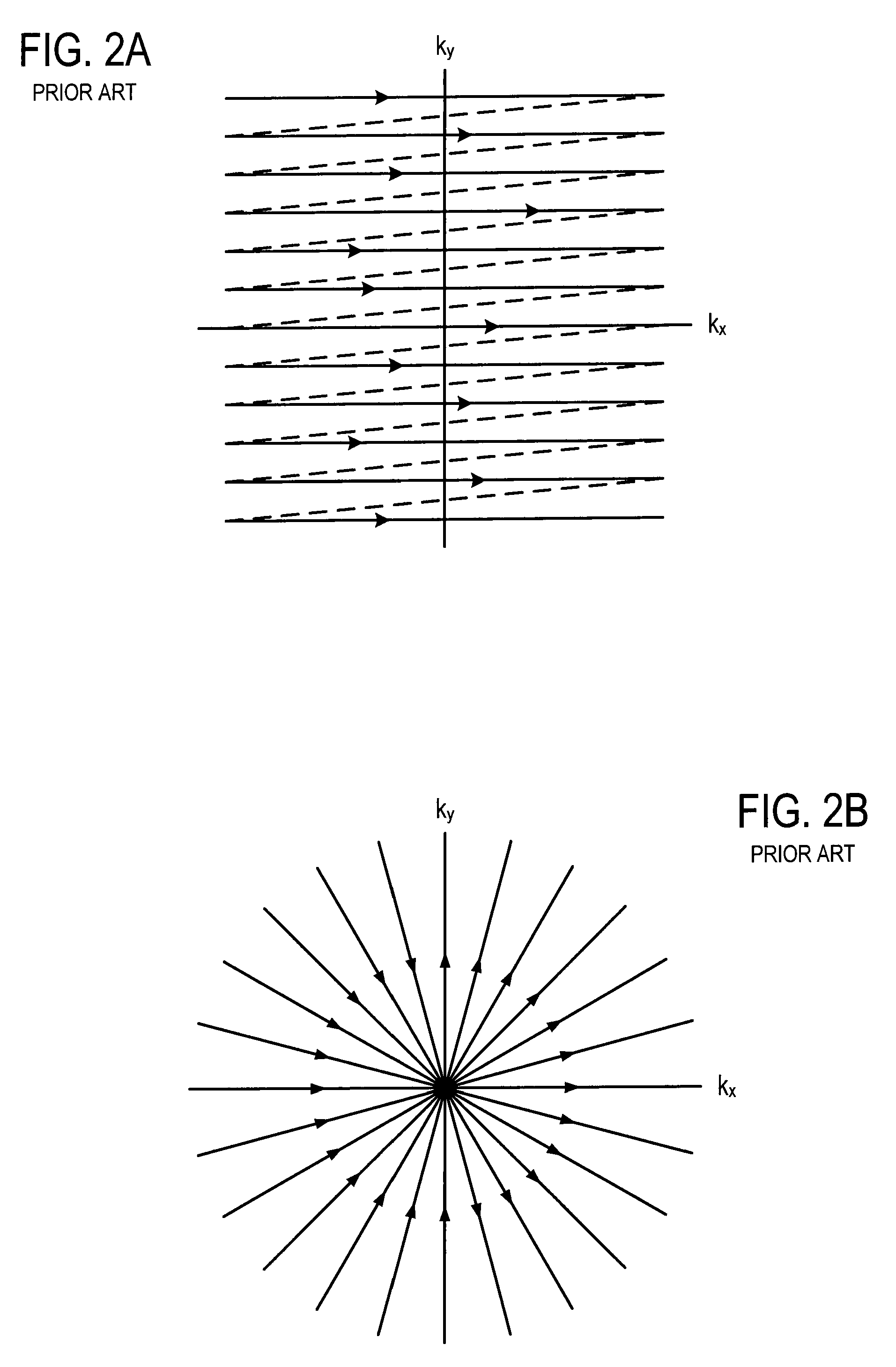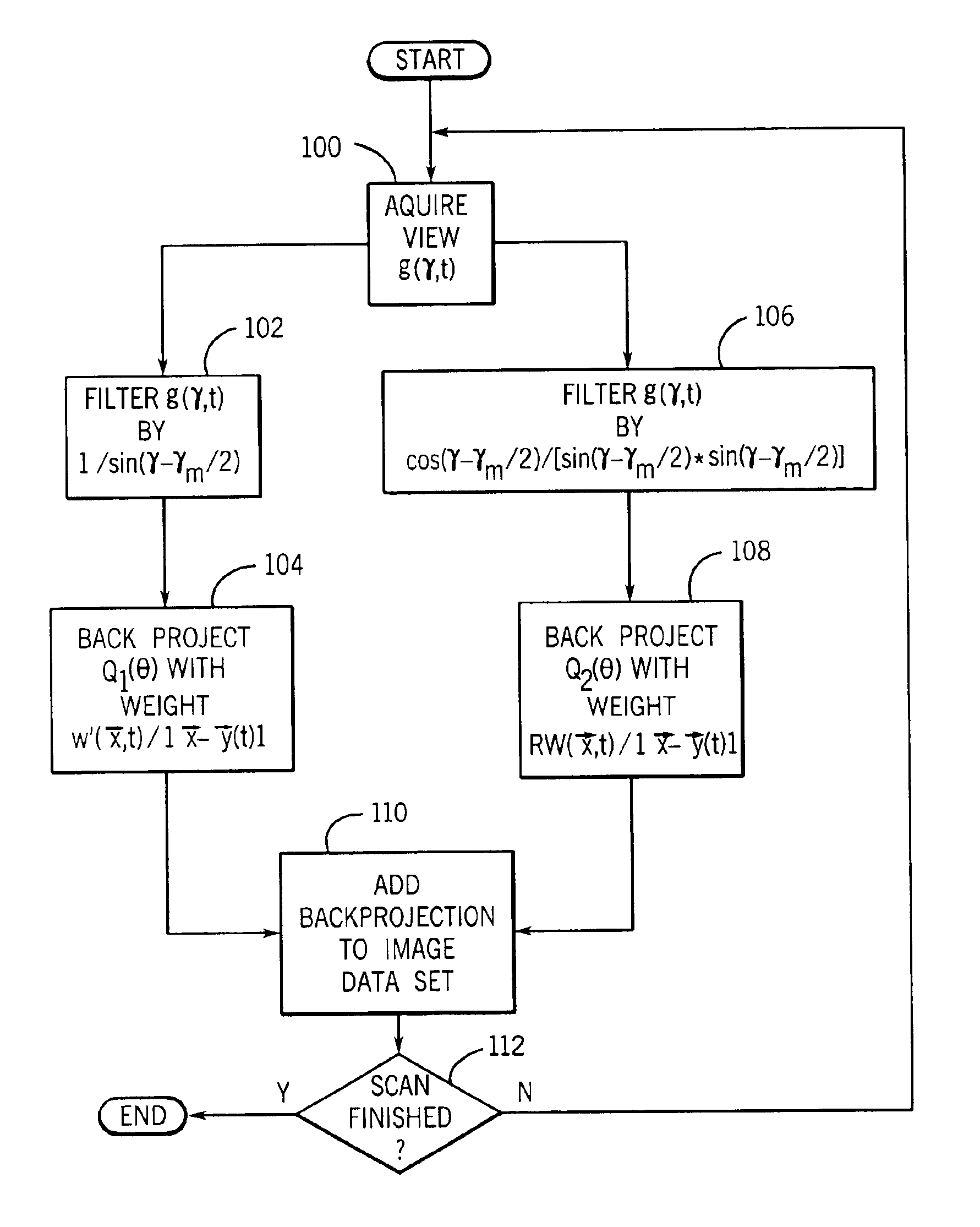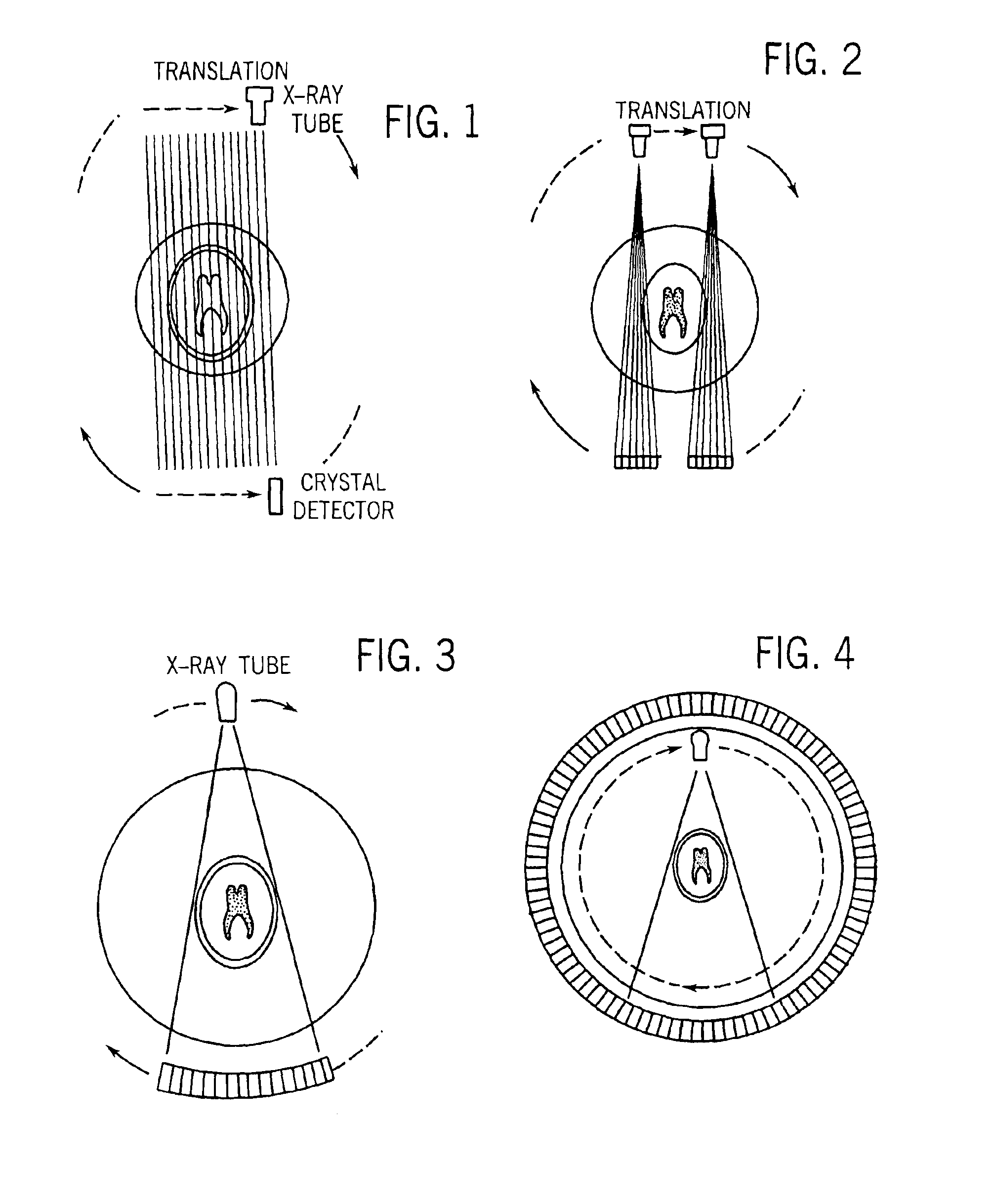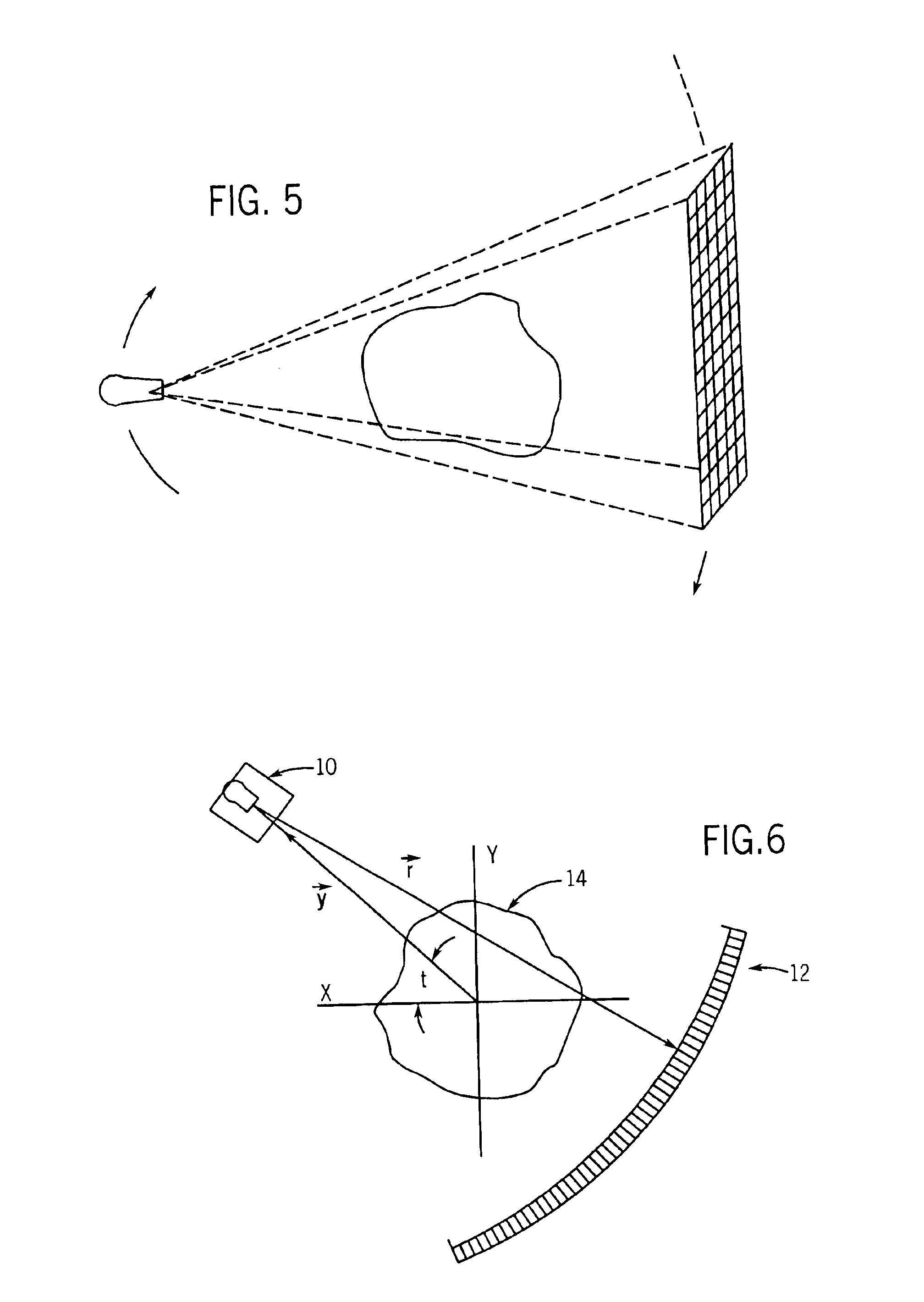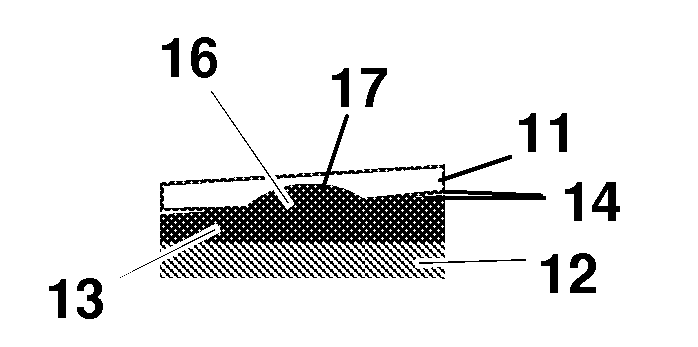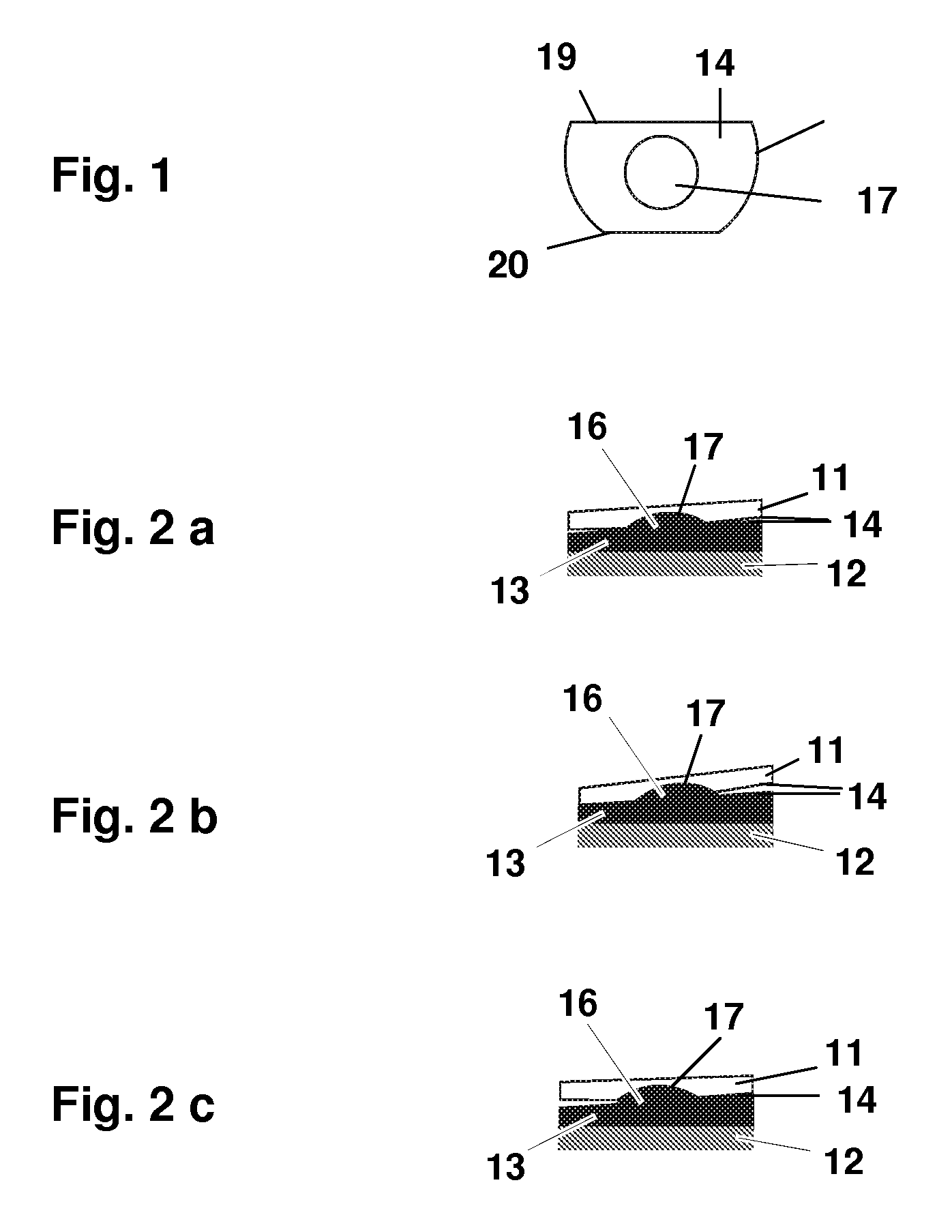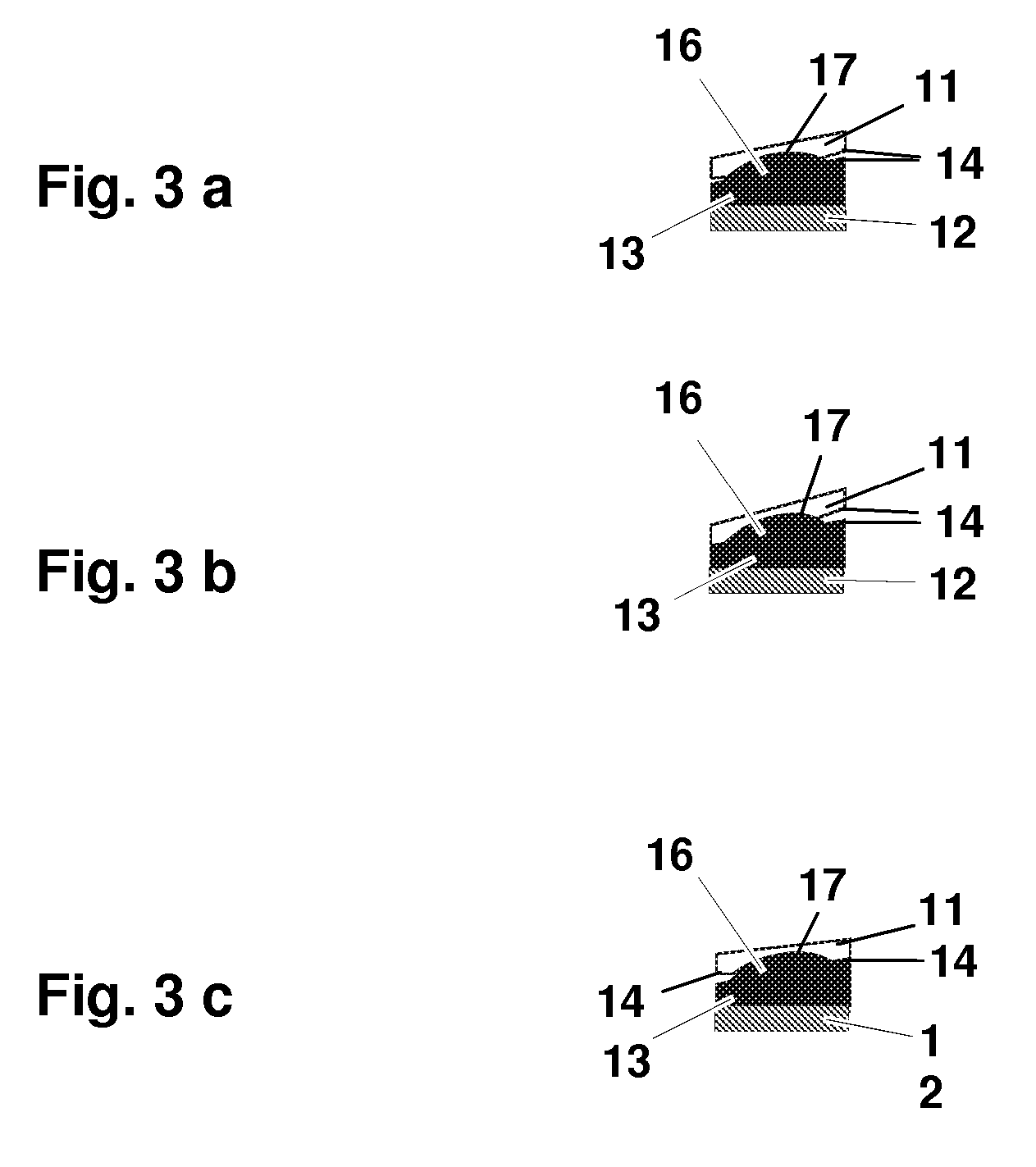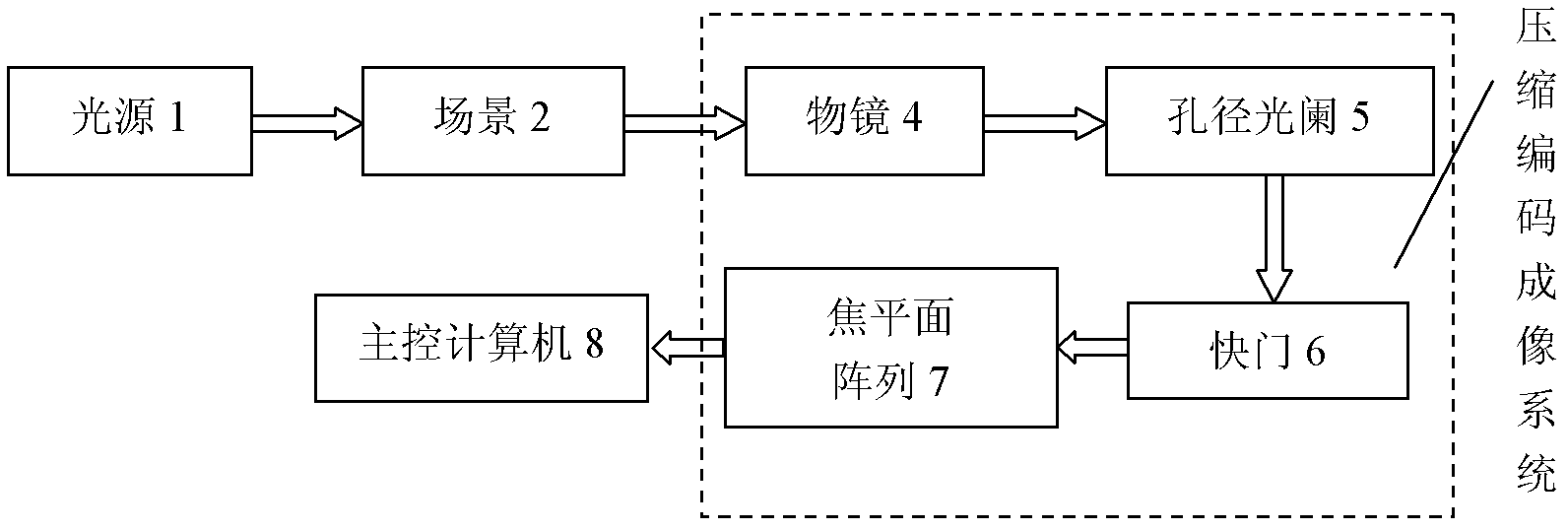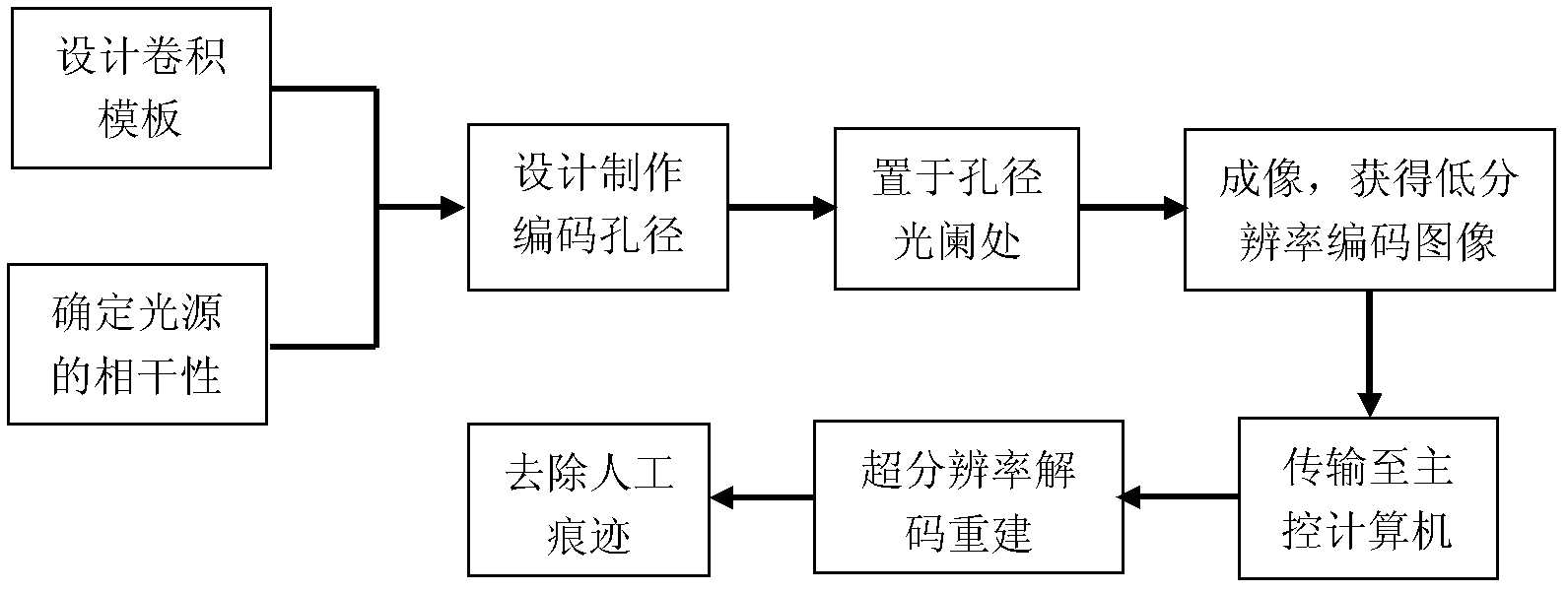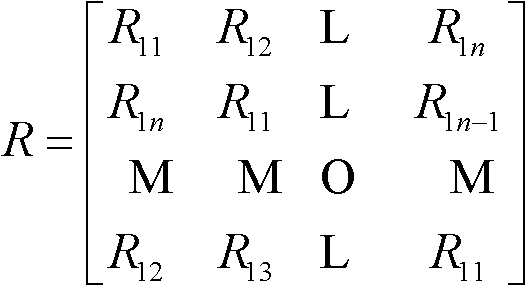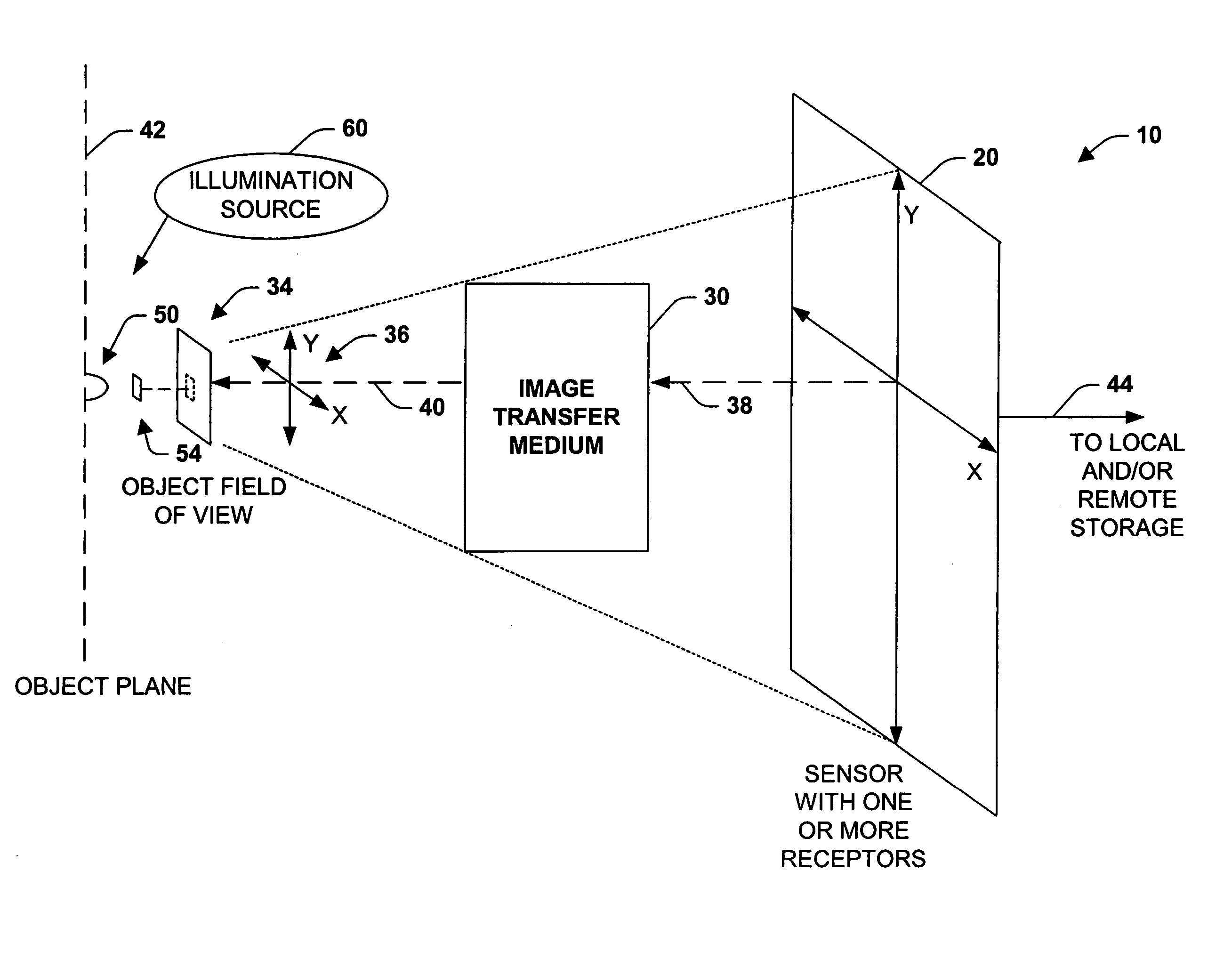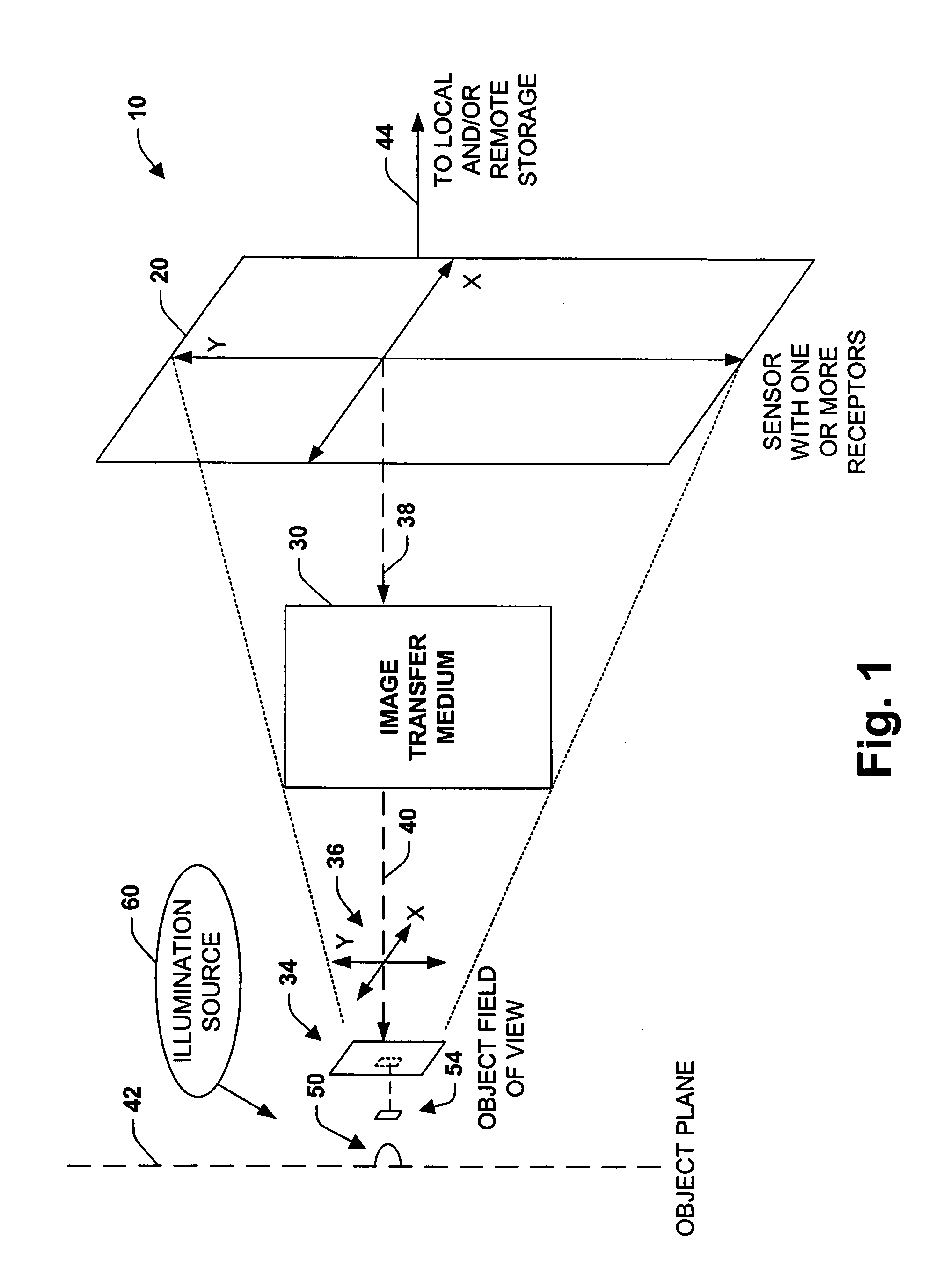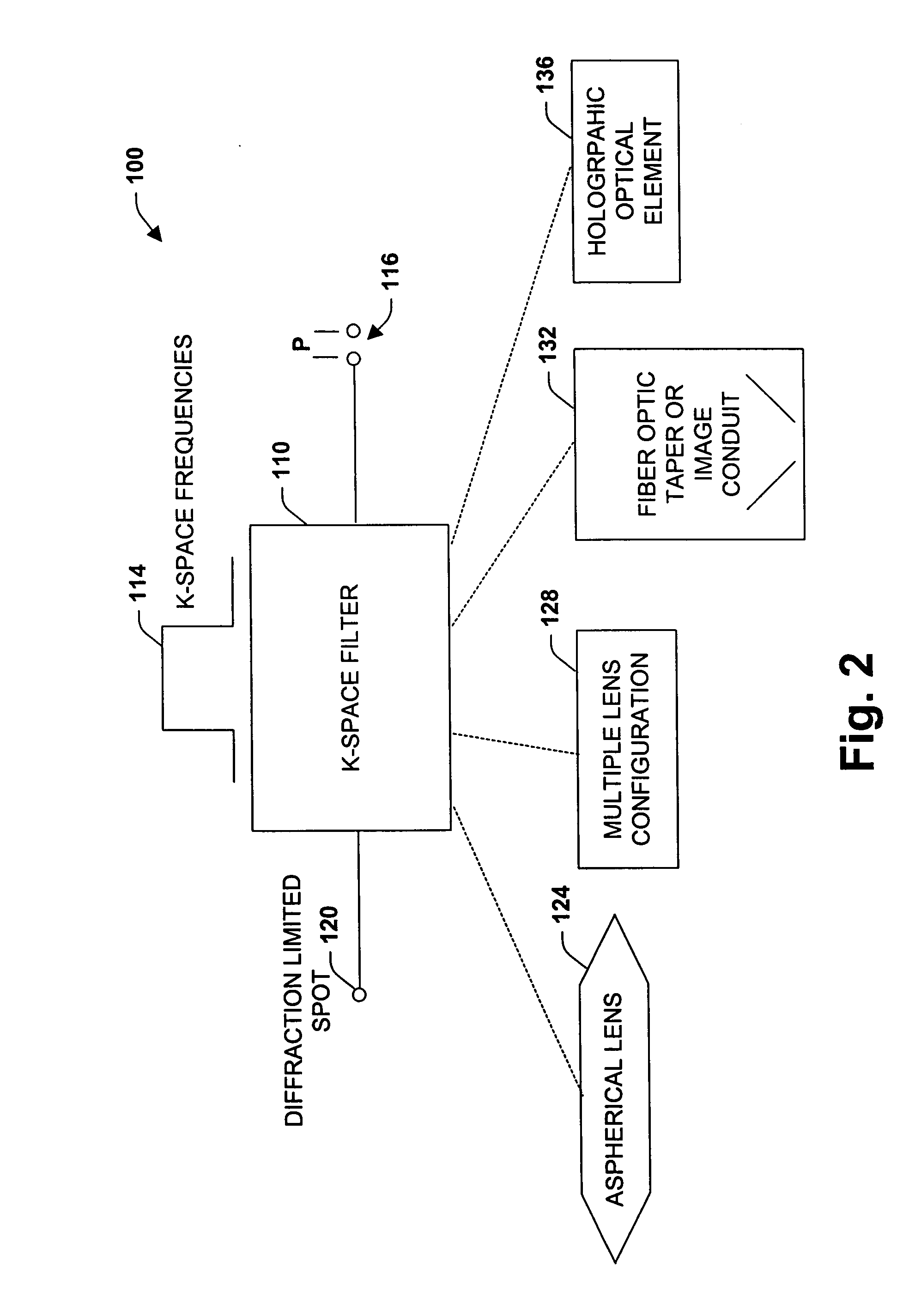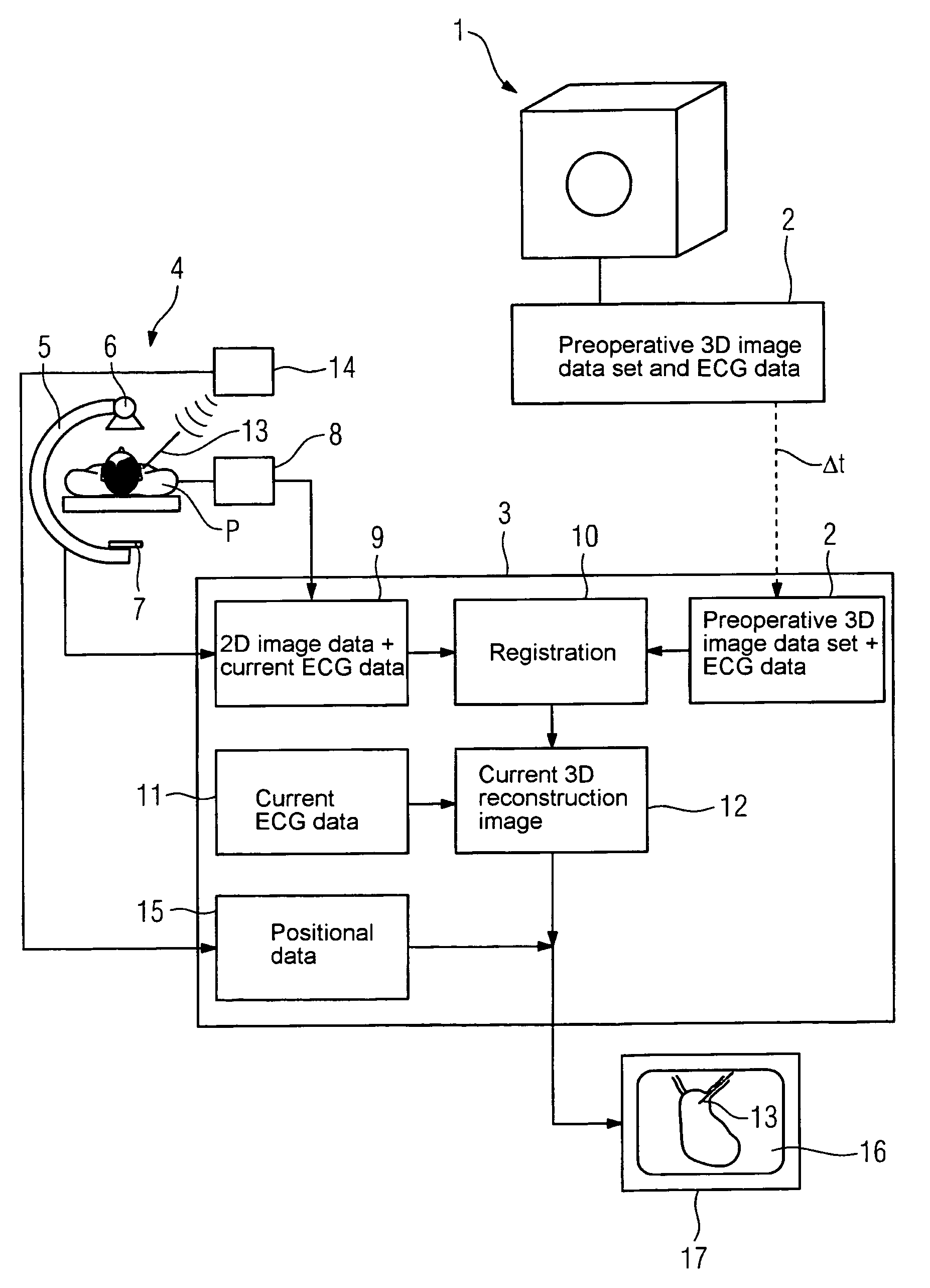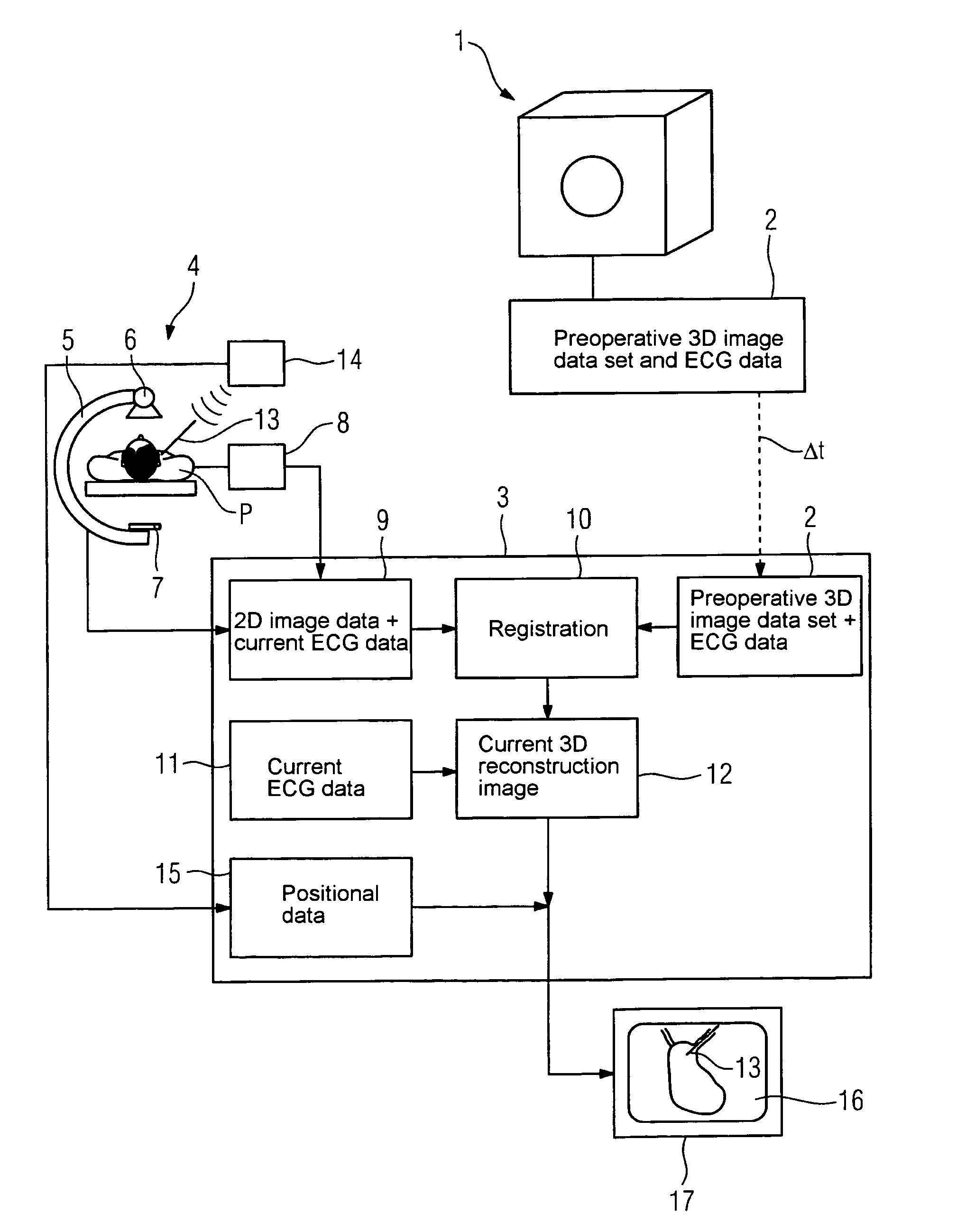Patents
Literature
Hiro is an intelligent assistant for R&D personnel, combined with Patent DNA, to facilitate innovative research.
584results about How to "Accurate reconstruction" patented technology
Efficacy Topic
Property
Owner
Technical Advancement
Application Domain
Technology Topic
Technology Field Word
Patent Country/Region
Patent Type
Patent Status
Application Year
Inventor
Method for representing real-time motion
InactiveUS6707487B1Accurate game reconstructionReduce data flowImage enhancementTelevision system detailsGraphicsContinuation
A system 100 for tracking the movement of multiple objects within a predefined area using a continuation of overhead X-Y tracking cameras 24 with attached frequency selective filter 24f. Also employed are perspective Z filming cameras sets 30. Objects to be tracked, such as player 17, have been marked to include some form of frequency selective reflective material such as an ink. Typical markers include patches 7r and 7l, sticker 9 and tape 4a as well as additional body joint markers 17af through 17l. System 100 radiates selected energy 23a throughout the predefined area of tracking that is specifically chosen to reflect off said reflective materials used to mark for instance player 17. The reflected energy is then received by tracking cameras 24 while all other ambient light is blocked by filter 24f. Local Computer System 60 continuously captures images from said tracking cameras 24 which include only the minimum information created by said reflected energy. System 60 efficiently locates said markings on said multiple objects and uses this location information to determine for each marking its angle of rotation, angle of azimuth and distance from a designated origin 17o local to player 17. Local origin 17o is then expressed as a three-dimensional coordinate with respect to the origin of the playing venue 2a. The continuous stream of tracked three-dimensional coordinates, defining the body joints on players such as 17, is then transmitted to a remote computer where it can be used to drive a graphic re-animation of the object movement. Along with this re-animation, additional performance measurements may be derived from the continuous stream and automatically made available in real-time.
Owner:MAXX HLDG
Systems and Methods for Source Signal Separation
ActiveUS20140079248A1Accurate reconstructionMulti-channel direction-finding systems using radio wavesMulti-channel direction findingTheoretical computer scienceSource separation
A method of processing a signal, including taking a signal formed from a plurality of source signal emitters and expressed in an original domain, decomposing the signal into a mathematical representation of a plurality of constituent elements in an alternate domain, analyzing the plurality of constituent elements to associate at least a subset of the constituent elements with at least one of the plurality of source signal emitters, separating at least a subset of the constituent elements based on the association and reconstituting at least a subset of constituent elements to produce an output signal in at least one of the original domain, the alternate domain and another domain.
Owner:XMOS INC
Compression system for integrated sensor devices
ActiveUS20070127831A1Image compression can be improvedReduce variationCharacter and pattern recognitionTelevision systemsAdaptive compressionVariable length
An imaging system incorporating adaptive compression which includes determining linear predictive differential residuals from an imager array pixel row. The differential residuals are classified into categories, each category having a range of differential residuals associated with it. The categories are analyzed to produce an ordered list having categories with most to least frequent residuals falling within a respective residual range associated with a respective category. The ordered list is then used to select a variable length encoding table with a matching ordered list. Variable length encoded category and range position offset data is output to a serializer unit, where the range position offset refers to a position in a range associated with a particular category.
Owner:MICRON TECH INC
Method and apparatus for encoding and decoding
ActiveUS20070238415A1Reduce bit demandValid encodingSpeech analysisRadio transmissionMulti bandBandwidth extension
A novel bandwidth extension technique allows information to be encoded and decoded using a fractal self similarity model or an accurate spectral replacement model, or both. Also a multi-band temporal amplitude coding technique, useful as an enhancement to any coding / decoding technique, helps with accurate reconstruction of the temporal envelope and employs a utility filterbank. A perceptual coder using a comodulation masking release model, operating typically with more conventional perceptual coders, makes the perceptual model more accurate and hence increases the efficiency of the overall perceptual coder.
Owner:AUDIO TECH & CODECS
MIMO-adapted distributed antenna system
ActiveUS7483504B2Accurate reconstructionSite diversityModulated-carrier systemsCoaxial cableDistributed antenna system
Methods and systems for carrying different signals required for MIMO communication using a single coaxial cable between two endpoints of a distributed antenna system (DAS) network. Original MIMO signals having the same frequency are frequency-separated at a first endpoint of the network. The frequency-separated signals are propagated together over the single coaxial cable and then reconstructed to their original frequency at a second endpoint of the network.
Owner:CORNING OPTICAL COMM LLC
Electrical impedance tomography
InactiveUS6940286B2Improved imaging sensitivity distributionAccurate reconstructionMaterial analysis using wave/particle radiationRadiation/particle handlingElectrical resistance and conductanceElectricity
Methods and apparatus are provided for obtaining a representation of the distribution of electrical impedance within a multiphase flow with an electrically continuous or discontinuous principle flow contained within an electrically conductive solid ring electrode, including providing a plurality of mutually spaced electrical contacts mounted at the outside wall of the ring and electrically contacting with the ring, applying currents or voltages to the ring from the electrical contacts, generating a more homogeneous electric field distribution within the material, measuring voltage or current distribution alone the ring from other electrical contacts, relatively intensifying the imaging sensitivity at the central area of the sensing domain using a π / 2 angle sensing strategy and reconstructing the representation of the impedance distribution using CG method with an error processing strategy.
Owner:LEEDS THE UNIV OF
Apparatus and method for cordless recording and telecommunication transmission of three special ECG leads and their processing
ActiveUS7647093B2Improve accuracyAccurate reconstructionElectrocardiographySensorsEcg leadEngineering
The invention is related to a device and method for cordless recording, telecommunication transmission, and processing of three special ECG leads by the means of the mobile device (1) and diagnostic-calibration center (2) where the reconstruction of standard ECG leads is performed. Reconstruction parameters are determined previously by calibration for each patient. In urgent situation, a patient (3) performs recording of three special ECG leads with the mobile device (1), and sends the memorized data to the diagnostic-calibration device (2) via a cellular telephone (4). The patient can trace the process of recording and sending the data with the help of sound and light indicators. Diagnostic-calibration center (2) is equipped with a PC computer (6) connected to a receiving cellular telephone (7) and calibration ECG device (8) with 14 electrodes. Ten electrodes are grouped into a standard 12-channel ECG cable, while the remaining four are used for recording of three special ECG leads and are grouped into a separate box (9) with integrated electrodes arranged identically as the integrated electrodes on the mobile device (1).
Owner:HEARTORUM LLC +1
Systems and methods for source signal separation
ActiveUS8694306B1Accurate reconstructionMulti-channel direction-finding systems using radio wavesDigital computer detailsTheoretical computer scienceSource separation
A method of processing a signal, including taking a signal formed from a plurality of source signal emitters and expressed in an original domain, decomposing the signal into a mathematical representation of a plurality of constituent elements in an alternate domain, analyzing the plurality of constituent elements to associate at least a subset of the constituent elements with at least one of the plurality of source signal emitters, separating at least a subset of the constituent elements based on the association and reconstituting at least a subset of constituent elements to produce an output signal in at least one of the original domain, the alternate domain and another domain.
Owner:XMOS INC
Static and dynamic 3-D human face reconstruction
InactiveUS20050057569A1High level of realismImprove fidelitySpeech analysisCharacter and pattern recognitionAnimationComputer science
A system for three-dimensional (3-D) facial animation, including a base 3-D surface model representing a human face, and a set of displacement fields representing surface motion patterns associated with muscle movements. Each displacement field is a displacement vector varying over vertices of the base surface model and an intensity variable. Both the base surface model and displacement fields are acquired from a live subject by 3-D acquisition. The data are acquired using a surface acquisition system, capable of measuring the coordinates of a set of points on the subject's face and reconstructing the facial surface as a surface model. The base surface model is acquired by reconstructing the surface of the subject's face in the neutral pose. Each displacement field is acquired by reconstructing the surface of the subject's face in a series of poses of a muscle movement at increasing intensities. This results in a sequence of surface models exhibiting the changing shape of the face over the progress of the muscle movement. The displacement field is derived by calculating displacements at each selected intensity value and then interpolating over the known displacements.
Owner:SPEECH GRAPHICS
Methods of precisely forming bone tunnels in cruciate ligament reconstruction of the knee
InactiveUS6878150B1Precise positioningMinimal sizeJoint implantsLigamentsBone tunnelCruciate ligament
A femoral guide for precisely positioning a guide wire on a bone surface of the femur includes a body having a lumen for receiving a guide wire and a tongue protruding from the body for engaging an edge or reference point on the bone surface with the tongue being spaced a predetermined distance from a longitudinal axis of the lumen. The lumen includes an opening allowing a guide wire extending through the lumen to contact the bone surface at a location spaced from the edge substantially the predetermined distance with the tongue engaging the edge. A stylus on the body can be driven into the bone to secure and stabilize the femoral guide prior to driving the guide wire into the bone through the lumen. With the guide wire driven into the bone, a bone tunnel can be formed substantially concentrically or coaxially along the guide wire such that a longitudinal axis of the bone tunnel will be disposed from the edge substantially the predetermined distance. Methods of precisely forming bone tunnels include the steps of engaging an edge of a bone surface with a tongue of the femoral guide, inserting a guide wire through a lumen of the femoral guide, driving the guide wire into the bone through the lumen and forming a bone tunnel in the bone along the guide wire such that a longitudinal axis of the bone tunnel will be disposed from the edge engaged by the tongue a distance substantially equal to the distance that the tongue is disposed from a longitudinal axis of the lumen.
Owner:MCGUIRE DAVID A +1
Method for medical imaging
ActiveUS20050288578A1Accurate reconstructionEasy to set upCharacter and pattern recognitionCatheter3d imageMedical imaging
A method for medical imaging is provided, wherein a current position of a medical instrument inserted into a moving examination area of a patient is displayed. The medical instrument is displayed within a reconstructed three-dimensional image of the moving examination area based on position data of the instrument registered with a coordinate system of the reconstructed three-dimensional image. The reconstructed three-dimensional image is a simulation of the moving examination area using a pre-insertion 3D image of the examination area correlated with pre-insertion ECG data of the patient. A display of the reconstructed three-dimensional image is triggered by current ECG data of the patient.
Owner:SIEMENS HEALTHCARE GMBH
Frame error concealment method and apparatus, and audio decoding method and apparatus
Disclosed are a frame error concealment method and apparatus and an audio decoding method and apparatus. The frame error concealment (FEC) method includes: selecting an FEC mode based on at least one of a state of at least one frame and a phase matching flag, with regard to a time domain signal generated after time-frequency inverse transform processing; and performing corresponding time domain error concealment processing on the current frame based on the selected FEC mode, wherein the current frame is an error frame or the current frame is a normal frame when the previous frame is an error frame.
Owner:SAMSUNG ELECTRONICS CO LTD
Deterministic computation of radiation transport for radiotherapy dose calculations and scatter correction for image reconstruction
InactiveUS20060259282A1Accurately reconstructAccurate reconstructionReconstruction from projectionComputation using non-denominational number representationImage representationTherapy planning
One method embodiment of the present invention is a process for using deterministic methods to calculate dose distributions resulting from radiotherapy treatments, diagnostic imaging, or industrial sterilization, and for calculating scatter corrections used for image reconstruction. In one embodiment of the present invention, the method provides a means for constructing a deterministic computational grid from an acquired 3-D image representation, transport of an external radiation source through field shaping devices and into the computational grid, calculation of the radiation scatter and / or delivered dose in the computational grid, and subsequent transport of the scattered radiation to detectors external to the computational grid. In another embodiment of the present invention, the method includes a process, by solving the adjoint form of the transport equation, which can enable patient dose responses to be calculated independently of treatment parameters and prior to treatment planning, enabling patient dose fields to be accurately reconstructed during treatment planning and verification.
Owner:FAILLA GREGORY A +3
Real-time data acquisition and storage network
InactiveUS6892167B2Accurate reconstructionAccurate dataTime indicationInput/output to record carriersDigital dataStorage area network
A real-time data acquisition and storage network for real-time acquisition and storage of analog and digital data from one or multiple network-connected data sources to one or multiple network-connected storage devices during a data recording session, and precise reconstruction of the acquired data from one or multiple of the network-connected storage devices during a playback session. The data source are connected to the network through one or multiple real-time data acquisition network (“R-T DAN”) modules which form one or multiple network-connected data acquisition nodes on the network. Each storage device forms a network-connected storage node on the network so that data acquired at any data acquisition node may be applied to the network and stored at any storage node during a data recording session. The stored data may be retrieved from the storage nodes through the network and routed to the data acquisition nodes for reconstruction of the data during a playback session.
Owner:ANALOG DEVICES INC
Digital watermarking for identification documents
ActiveUS8543823B2Less perceptibleNumerous manipulationUser identity/authority verificationDigital data authenticationVerification systemDigital watermarking
A watermark-based age verification system is provided in one implementation. The verification system may also verify a biometric template against a biometric sample. Shelf-life identification documents are provided in another implementation. Another aspect of the present invention analyzes image data to identify a face region or silhouette associated with a human subject depicted in the image data. The image data is adjusted, e.g., to center or align a face region within an image frame. A digital watermark is embedded after realignment. Another aspect authenticates or handles digital images that are captured at a first location and transferred to a second location via watermarking. In another implementation, first machine-readable code on an identification document layer is cross-correlated with second machine-readable code on the identification document. The first and second machine-readable codes are preferably sensed though different means, but can be cross-correlated to determine authenticity of an identification document.
Owner:DIGIMARC CORP (FORMERLY DMRC CORP)
Method and apparatus of estimating non-linear amplifier response in an overlaid communication system
InactiveUS20050032472A1Eliminate biasAccurate reconstructionResonant long antennasRadio transmissionAudio power amplifierCommunications system
An approach is provided estimating non-linear characteristics of an amplifier (such as a Travelling Wave Tube Amplifier) used to amplify a composite signal in a radio communication system. The composite signal, which includes a plurality of inbound signals overlay on an outbound signal, is sampled. The outbound signal is utilized as a training signal. Coarse estimates of the response of the amplifier is generated based on the samples of the composite signal and the training signal. Further, the interference associated with the inbound signals are removed from the estimation of the response of the amplifier by curve-fitting and estimating interference characteristics of the composite signal. An estimated response of the amplifier is thus output, and can be utilized to provide accurate non-linearity compensation and cancellation.
Owner:HUGHES NETWORK SYST
Digital images and related methodologies
ActiveUS7863552B2Good removal effectIncrease brightnessTelevision system detailsBeam/ray focussing/reflecting arrangementsImage transferDigital image
An imaging system, methodology, and various applications are provided to facilitate optical imaging performance. The system contains a sensor having one or more receptors and an image transfer medium to scale the sensor and receptors in accordance with resolvable characteristics of the medium, and as defined with certain ratios. Also provided are digital images that contain a plurality of image pixels, each image pixel containing information from about one sensor pixel, each sensor pixel containing substantially all information from about one associated diffraction limited spot in an object plane. Methods of making digital images are provided.
Owner:PIXEL MATCHED HLDG
Multimode autofluorescence tomography molecule image instrument and rebuilding method
ActiveCN101301192AImprove signal-to-noise ratioIncrease the amount of information availableImage enhancementSurgeryDiagnostic Radiology ModalityLiquid nitrogen cooling
The invention discloses a multi-modality autofluorescence molecular tomographic imaging instrument, comprising a signal gathering module, a signal preprocessing module, a system control module, and a signal post-processing module. The method of the invention comprises determining the feasible region of light source through X-ray imaging and autofluorescence tomographic imaging based on multi-stage adaptive finite element combined with digital mouse, reconstruction target area optical characteristic parameter, and modality fusion, and adaptive optimized factorization for partial texture according to the posterior error estimation to obtain the fluorescence light source in reconstruction target area. The morbidity problem of autofluorescence molecular tomographic image can be efficiently solved, and the precise reconstruction of the autofluorescence light source can be carried out in the complicated reconstruction target area by the multi-modality fusion imaging mode of the autofluorescence molecular tomographic imaging. The precise reconstruction of the autofluorescence light source can be finished by the liquid nitrogen cooling CCD probe, multi-angle fluorescence probe technology, and multi-modality fusion technology, and the autofluorescence molecular tomographic imaging algorithm based on multi-stage adaptive finite element with the non-uniformity characteristics of the reconstruction target area.
Owner:INST OF AUTOMATION CHINESE ACAD OF SCI
Wireless receiver with anti-jamming
InactiveUS20060188033A1Easy to operateAccurate reconstructionSecret communicationCommunication jammingAnti jammingEngineering
Owner:INTEL CORP
Communication scheme for channel quality information
ActiveUS20100015923A1Reduce overheadAccurate reconstructionTransmission systemsFrequency-division multiplex detailsChannel state informationCommunications system
The invention relates to a method for transmitting and a method for reconstructing channel quality information in a communication system. Further, the invention also provides a transmitter and receiver performing these methods, respectively. The invention suggests a scheme for communicating channel quality measures that on the one hand allows for an accurate reconstruction of the channel quality measures at the receiver and on the other hand requires an acceptable transmission overhead. This is achieved by partitioning channel quality measures into at least two partitions and to compress the values partition-wise, for example by means of a discrete cosine transform and the transmission of only a subset of the resulting coefficients.
Owner:OPTIS WIRELESS TECH LLC
3G video transmission method and system based on compression sensing
InactiveCN103957389AReduce possessionEasy coding workClosed circuit television systemsDigital video signal modificationComputer hardwareVideo monitoring
The invention provides a 3G video transmission method and system based on compression sensing in a video monitoring scene, and belongs to the field of data compression and video transmission. After the format of video information collected by a camera is converted into the YUV format through color space conversion, H.264 coding is conducted, compression processing of compression sensing is conducted on coded data, video data streams obtained through compression are transmitted in a 3G network according to the RTSP protocol and the RTP / RTCP protocol, and reconstruction processing of compression sensing and the H.264 decoding process are conducted at a terminal so that restored video information can be obtained. Compression sensing is combined with the RTSP protocol and the RTP / RTCP protocol to be used in the 3G video transmission system, and therefore the system can meet the requirement for instantaneity of video transmission from the aspects of control and data, the system has the self-adaption video coding speed and network transmission speed regulation function, the size of the data transmitted through a network can be greatly reduced, broadband resources are saved, and the transmission efficiency of the system is improved.
Owner:CHONGQING UNIV
Reverse-rendering method for digital modeling
ActiveUS6990230B2Accurate reconstructionSimple calculationDetails involving processing stepsTelevision system detailsComputer graphics (images)Error function
A method for automatically or semi-automatically constructing a digital 3D model of a scene from photographic data and photogrammetry data includes defining an initial rough model as a solution estimate. A reverse rendering step includes a second-order solution method that employs automatic differentiation techniques to accurately compute derivatives of an error function. In an embodiment of the method, at least one camera is placed within the scene being constructed, and photographic data from this camera is used in the solution process.
Owner:WARNER BROS ENTERTAINMENT INC
X-ray system with efficient anode heat dissipation
InactiveUS20110051895A1Increase the heating areaIncrease powerX-ray tube electrodesCathode ray concentrating/focusing/directingHigh resolution imagingX-ray
X-ray systems for use in high-resolution imaging applications with an improved power rating are provided. An X-ray source comprises at least one integrated actuator unit (206, 206′, 206a or 206b) for performing at least one translational and / or rotational displacement by moving the position of the X-ray source's anode (204, 204′, 204a′ or 204b′) relative to a stationary reference position. This helps to overcome power limitations due to an overheating of the anode at its focal ̂spot position (205). In addition to that, a focusing unit (203) for allowing an adapted focusing of the anode's focal spot (205) which compensates deviations in the focal spot size resulting from said anode displacements and / or a deflection means (211, 21 Ia or 21 Ib) for generating an electric and / or magnetic field deflecting the electron beam (202, 202a or 202b) in a direction opposite to the direction of the rotary anode's displacement movement may be provided.
Owner:KONINKLIJKE PHILIPS ELECTRONICS NV
Static and dynamic 3-D human face reconstruction
InactiveUS7239321B2Simulating natural muscle movementsHigh level of realismSpeech analysisCharacter and pattern recognitionAnimationComputer science
A system for three-dimensional (3-D) facial animation, including a base 3-D surface model representing a human face, and a set of displacement fields representing surface motion patterns associated with muscle movements. Each displacement field is a displacement vector varying over vertices of the base surface model and an intensity variable. Both the base surface model and displacement fields are acquired from a live subject by 3-D acquisition. The data are acquired using a surface acquisition system, capable of measuring the coordinates of a set of points on the subject's face and reconstructing the facial surface as a surface model. The base surface model is acquired by reconstructing the surface of the subject's face in the neutral pose. Each displacement field is acquired by reconstructing the surface of the subject's face in a series of poses of a muscle movement at increasing intensities. This results in a sequence of surface models exhibiting the changing shape of the face over the progress of the muscle movement. The displacement field is derived by calculating displacements at each selected intensity value and then interpolating over the known displacements.
Owner:SPEECH GRAPHICS
Method for dynamic prior image constrained image reconstruction
ActiveUS8194937B2Improve signal-to-noise ratioHigh resolutionReconstruction from projectionCharacter and pattern recognitionDiagnostic Radiology ModalityTemporal resolution
A method for reconstructing a high quality image from undersampled image data is provided. The image reconstruction method is applicable to a number of different imaging modalities. Specifically, the present invention provides an image reconstruction method that incorporates an appropriate prior image into the image reconstruction process. Thus, one aspect of the present invention is to provide an image reconstruction method that requires less number of data samples to reconstruct an accurate reconstruction of a desired image than previous methods, such as, compressed sensing. Another aspect of the invention is to provide an image reconstruction method that produces a time series of desired images indicative of a higher temporal resolution than is ordinarily achievable with the imaging system. For example, cardiac phase images can be produced with high temporal resolution (e.g., 20 milliseconds) using a CT imaging system with a slow gantry rotation speed.
Owner:WISCONSIN ALUMNI RES FOUND
Image reconstruction method for divergent beam scanner
ActiveUS6990167B2Accurate reconstructionReduce in quantityReconstruction from projectionMaterial analysis using wave/particle radiationLight beamReconstruction method
A new image reconstruction method is described for CT systems. Reconstruction formulas for general application to any CT system geometry are derived and more specific formulas for two third generation CT system geometries are described. A preferred embodiment of a CT system which employs one of the specific formulas is described.
Owner:WISCONSIN ALUMNI RES FOUND
Angled sliding core, also as part of an intervertebral disc prosthesis, for the lumbar and cervical spine
InactiveUS20060235528A1Area maximizationEasy to useSpinal implantsCoatingsLamina terminalisLumbar vertebrae
The invention relates to a sliding core and an intervertebral disc prosthesis for the compensation of angles between vertebral endplates, for the preservation or improvement of function of a motion segment of the lumbar or cervical spine. A sliding core, according to the invention, for functional two- or three part intervertebral disc prostheses, is intended to ascertain a compensation, for the correction or preservation of angles within an intervertebral space. By this, it is possible not to have to remove implanted prosthetic plates from their assembly to vertebral bodies. According to the invention, functional two- and three part intervertebral disc prostheses with an asymmetrically angled sliding core are also planned. Concomitantly, upper and lower sliding partner of a three component prosthesis as well as the two sliding partners of a two part prosthesis function as endplates, which have means for a firm assembly to an upper and lower vertebral body.
Owner:BUETTNER JANZ KARIN
Super-resolution imaging system based on compression coding aperture and imaging method thereof
InactiveCN102438102ALow costReduce data volumeTelevision system detailsColor television detailsDenoising algorithmHigh resolution image
The invention discloses a super-resolution imaging system based on a compression coding aperture and an imaging method thereof, mainly solving a problem of expensive imaging cost in the prior art. The method comprises the following steps: designing a convolution template, and making a coding aperture according to coherence of a light source; placing the prepared coding aperture at a position of aperture diaphragm in an optical system and pressing a shutter for imaging, and obtaining a low resolution coding image; transmitting the coding image to a master control computer, decoding super-resolution to reconstruct a high-resolution image, and using a denoising algorithm to remove an artificial trace in the high-resolution image. The system and the method are characterized in that: restriction of a Nyquist criterion is broken through, low frequency sampling is carried out on a scene, the high-resolution image is obtained through super-resolution reconstruction, data waste caused by first sampling and second compression of a traditional imaging system is overcome, in sampling, data volume is compressed, imaging cost, compression cost and transmission cost are reduced, and the system and the method can be used for infrared imaging and remote sensing imaging technology.
Owner:XIDIAN UNIV
Digital images and related methodologies
ActiveUS20040227822A1Improve signal-to-noise ratioGood removal effectTelevision system detailsBeam/ray focussing/reflecting arrangementsImage transferComputer vision
An imaging system, methodology, and various applications are provided to facilitate optical imaging performance. The system contains a sensor having one or more receptors and an image transfer medium to scale the sensor and receptors in accordance with resolvable characteristics of the medium, and as defined with certain ratios. Also provided are digital images that contain a plurality of image pixels, each image pixel containing information from about one sensor pixel, each sensor pixel containing substantially all information from about one associated diffraction limited spot in an object plane. Methods of making digital images are provided.
Owner:PIXEL MATCHED HLDG
Method for medical imaging
ActiveUS7474913B2Accurate reconstructionEasy to set upCharacter and pattern recognitionCatheter3d imageMedical imaging
A method for medical imaging is provided, wherein a current position of a medical instrument inserted into a moving examination area of a patient is displayed. The medical instrument is displayed within a reconstructed three-dimensional image of the moving examination area based on position data of the instrument registered with a coordinate system of the reconstructed three-dimensional image. The reconstructed three-dimensional image is a simulation of the moving examination area using a pre-insertion 3D image of the examination area correlated with pre-insertion ECG data of the patient. A display of the reconstructed three-dimensional image is triggered by current ECG data of the patient.
Owner:SIEMENS HEALTHCARE GMBH
Features
- R&D
- Intellectual Property
- Life Sciences
- Materials
- Tech Scout
Why Patsnap Eureka
- Unparalleled Data Quality
- Higher Quality Content
- 60% Fewer Hallucinations
Social media
Patsnap Eureka Blog
Learn More Browse by: Latest US Patents, China's latest patents, Technical Efficacy Thesaurus, Application Domain, Technology Topic, Popular Technical Reports.
© 2025 PatSnap. All rights reserved.Legal|Privacy policy|Modern Slavery Act Transparency Statement|Sitemap|About US| Contact US: help@patsnap.com
